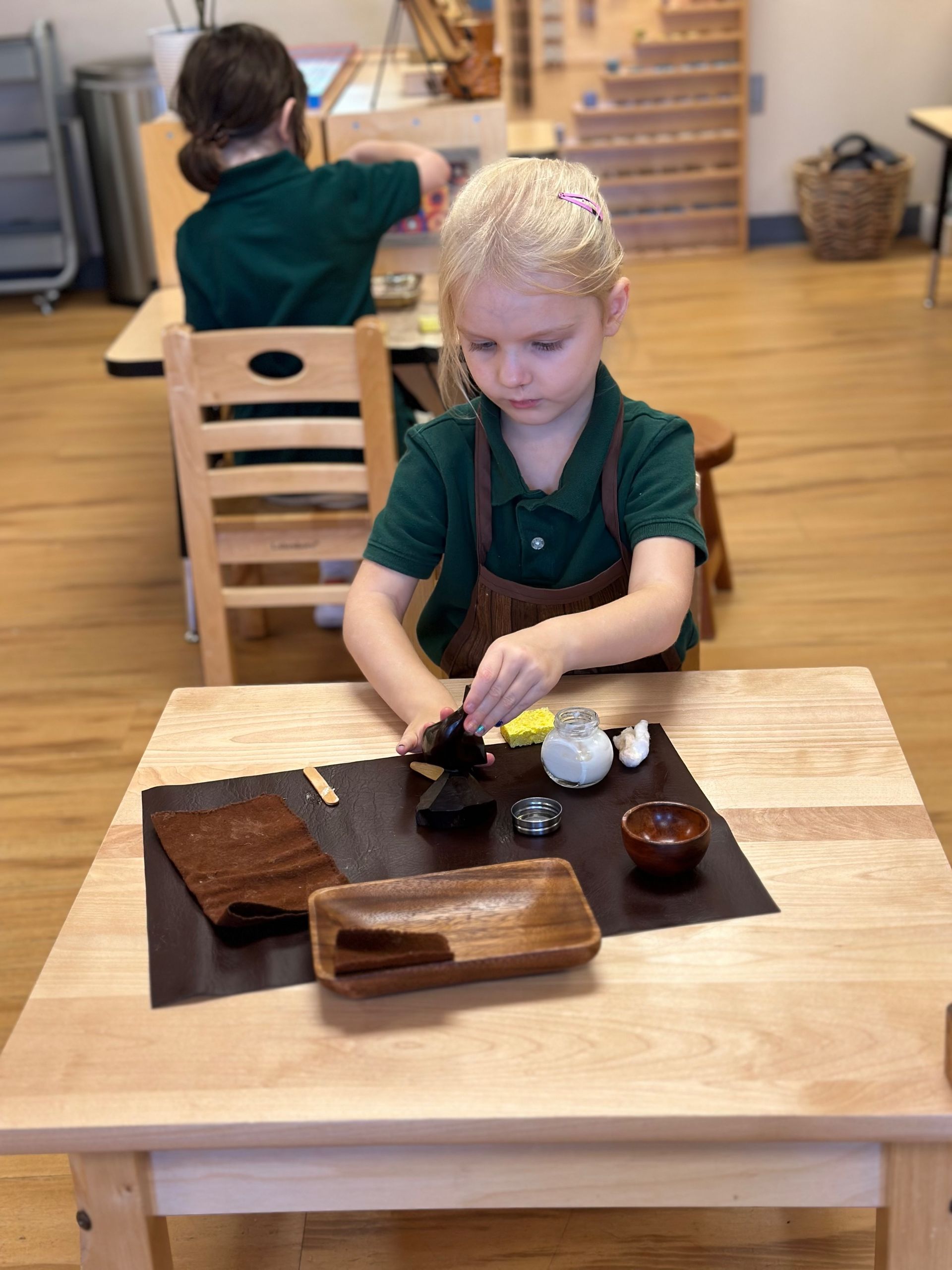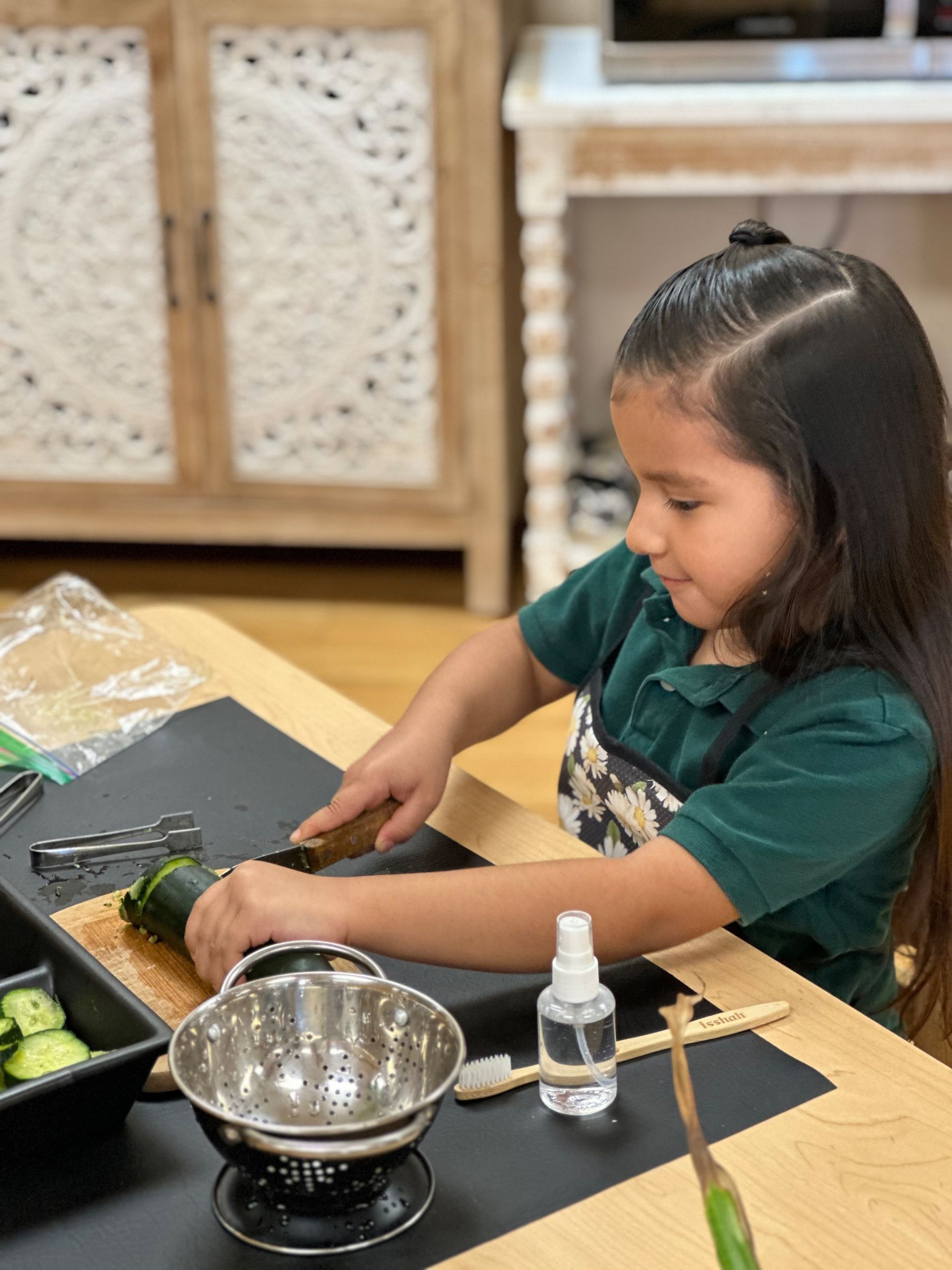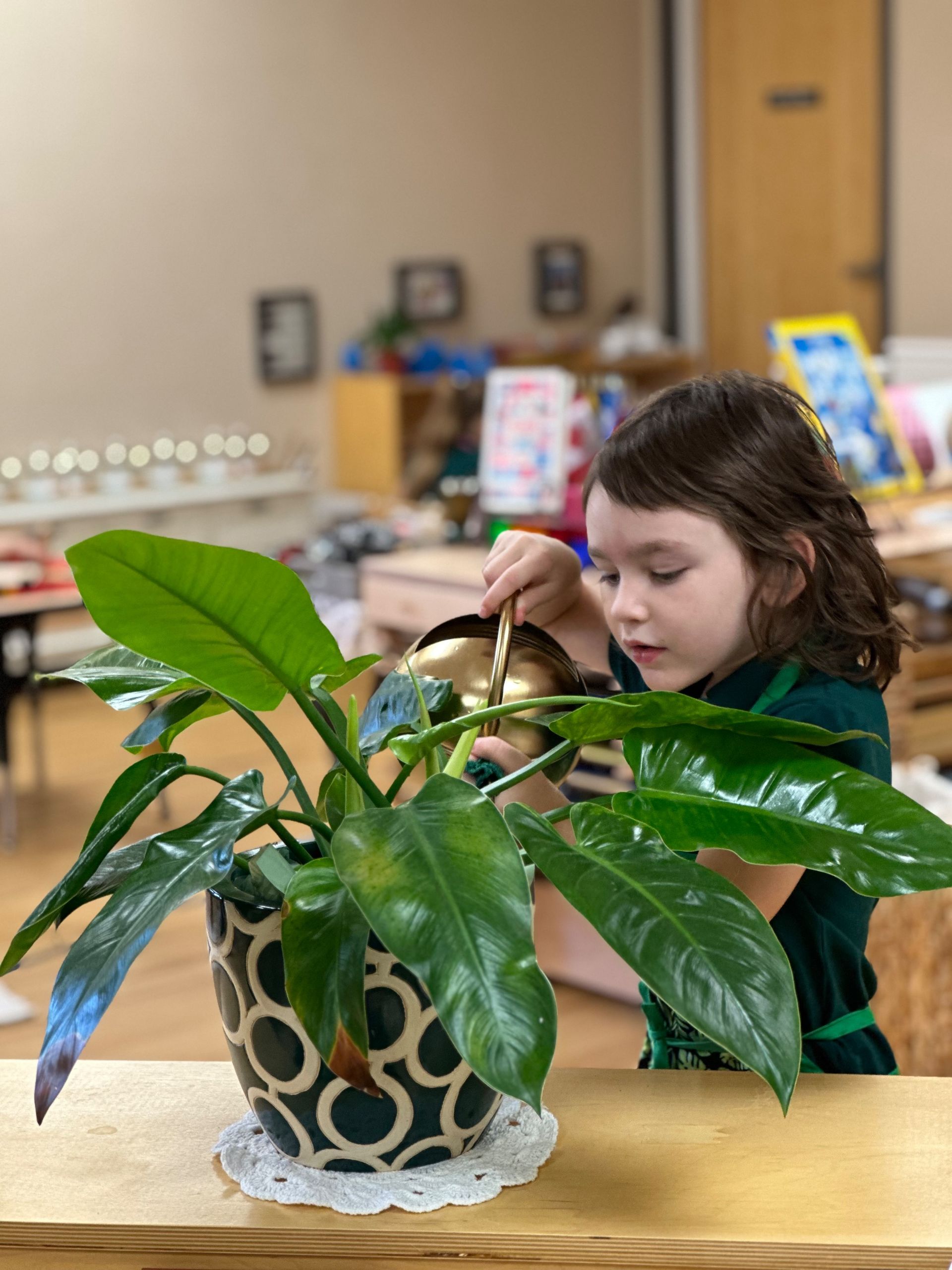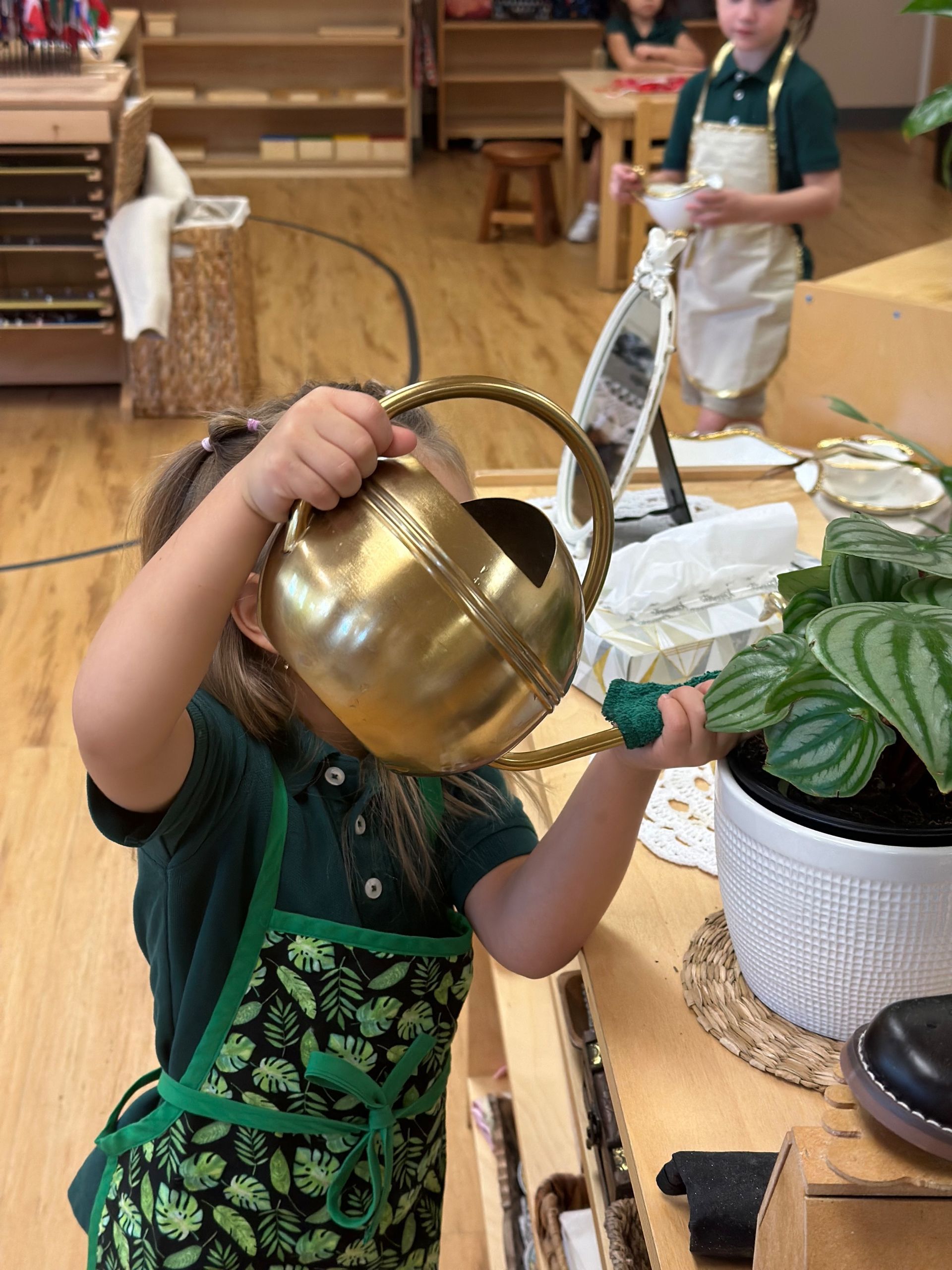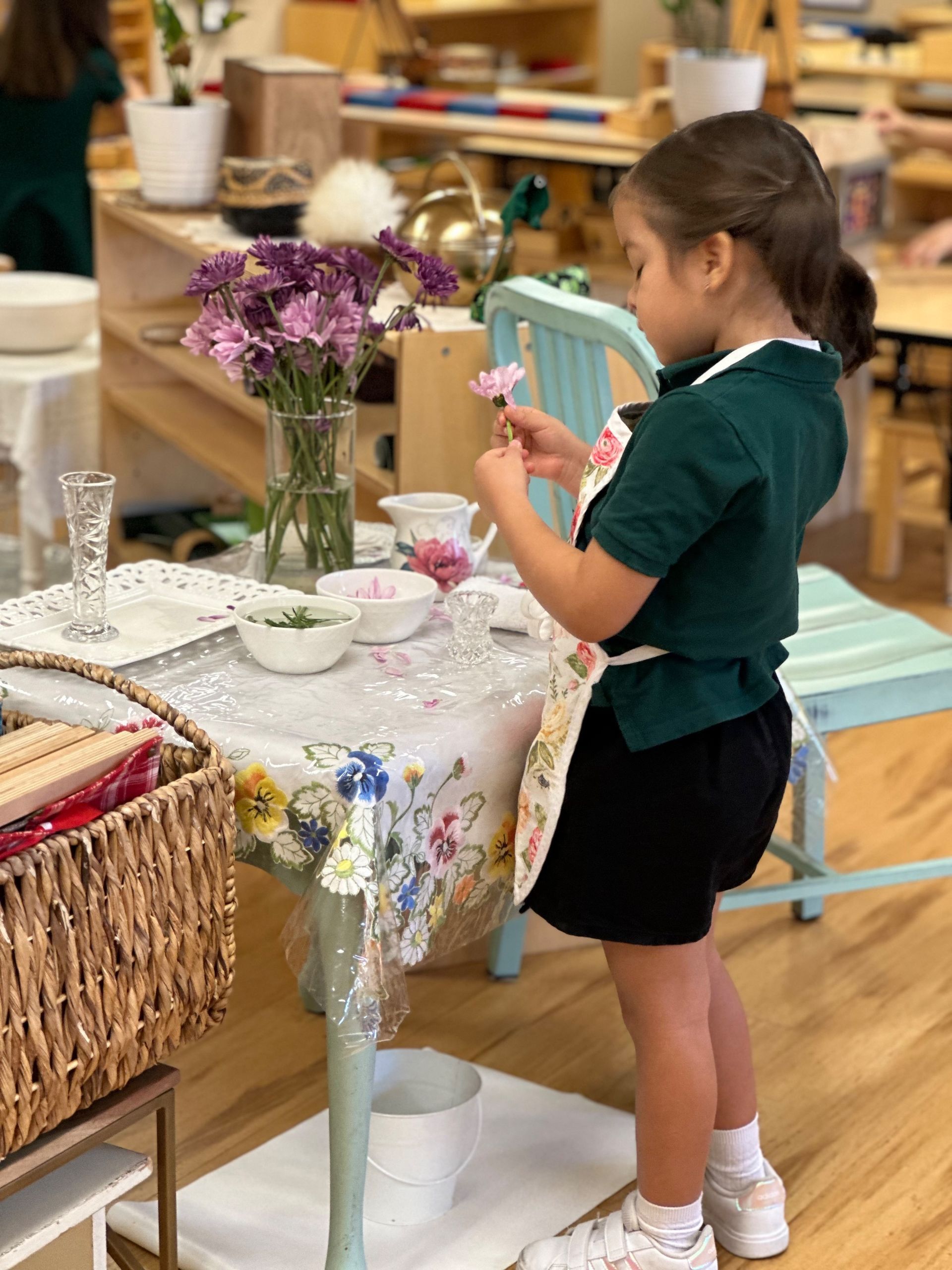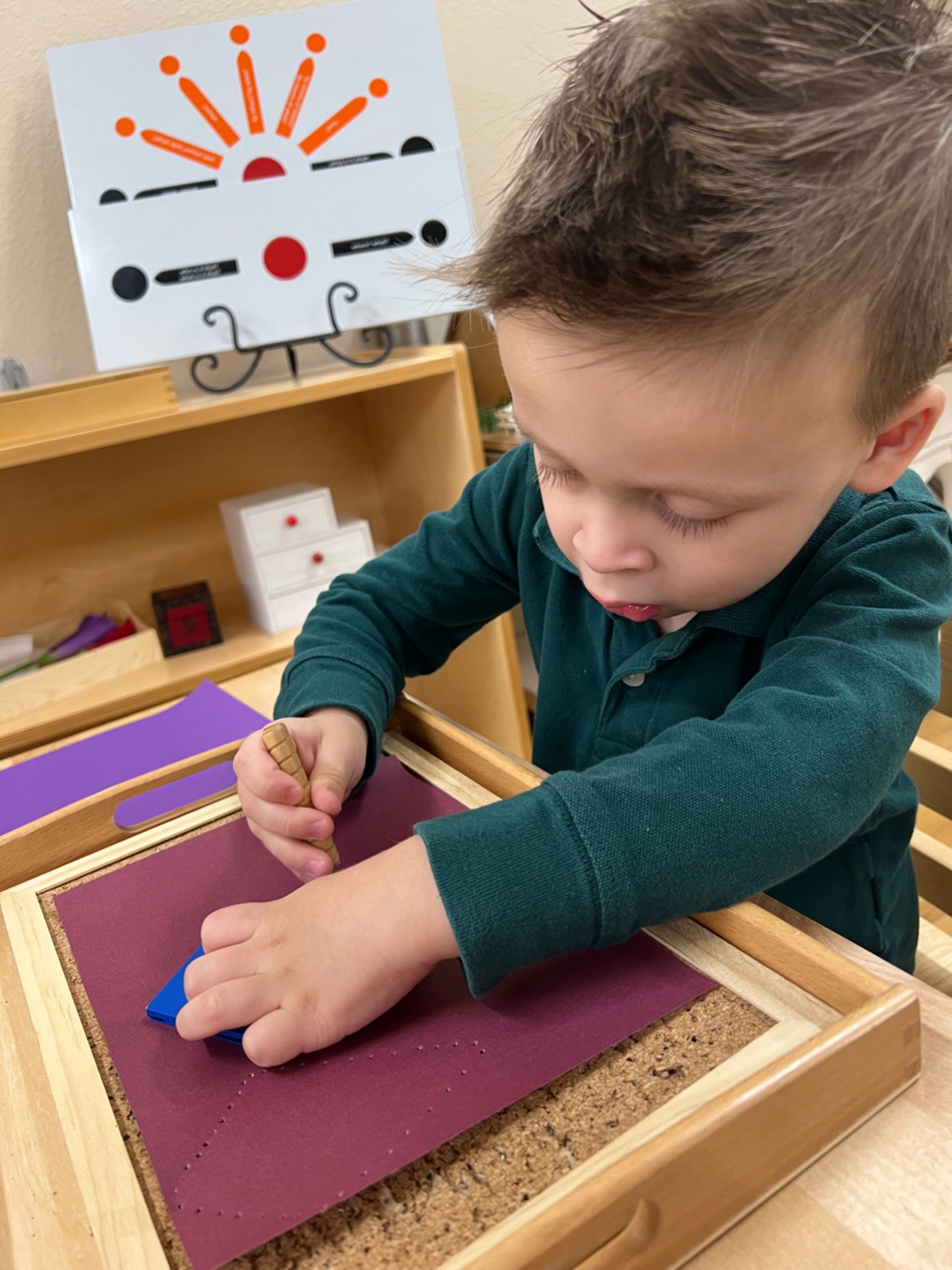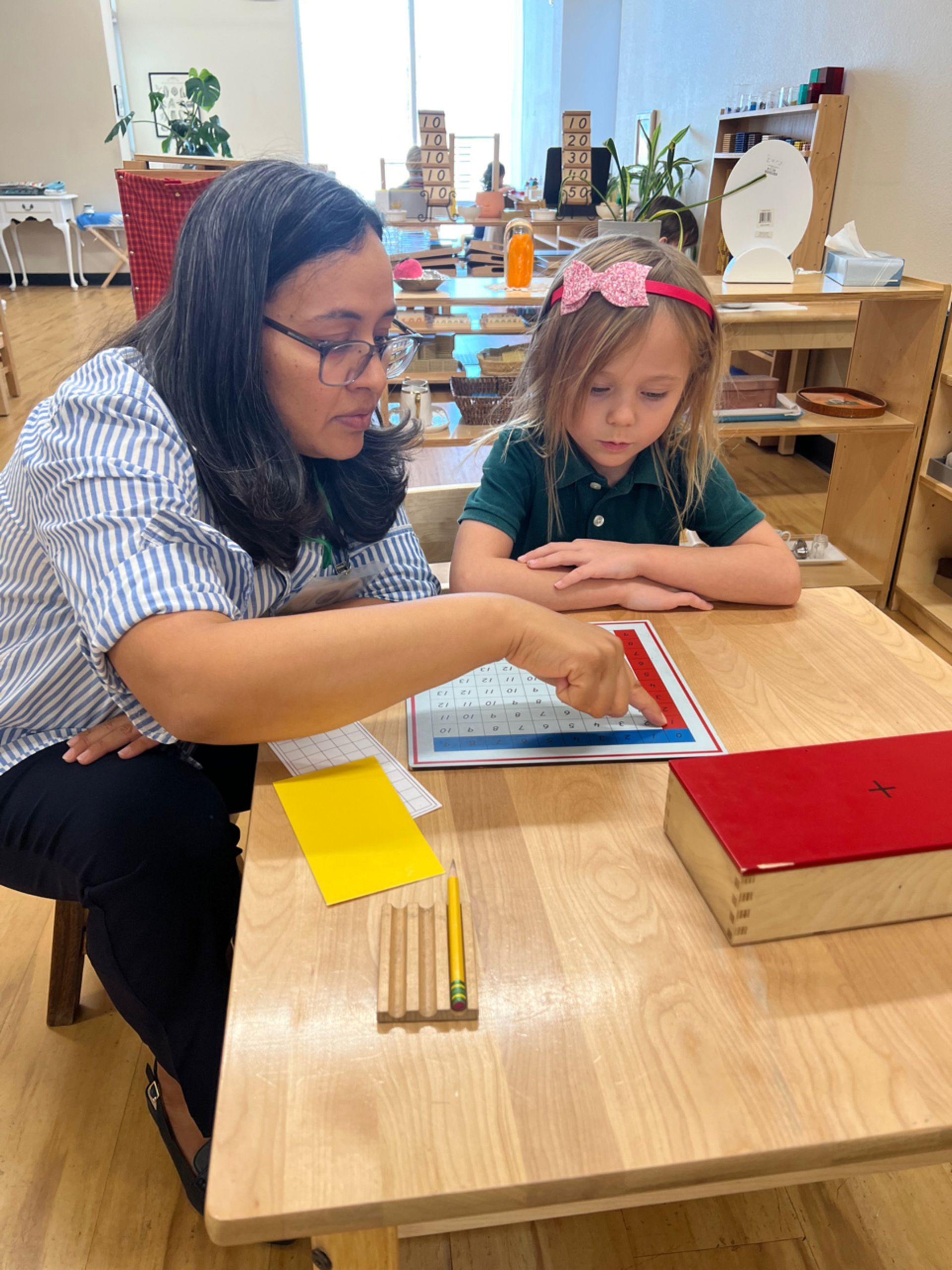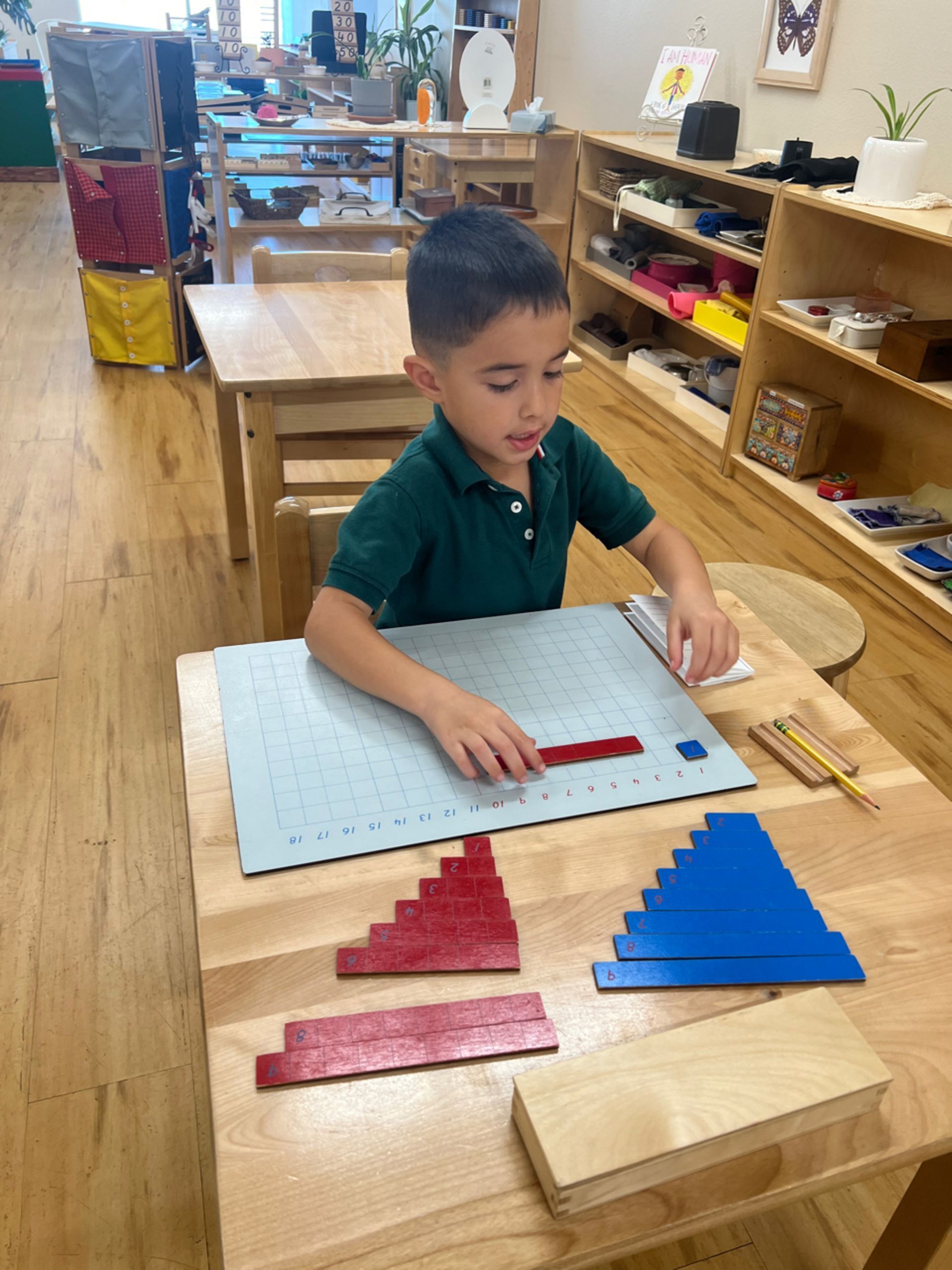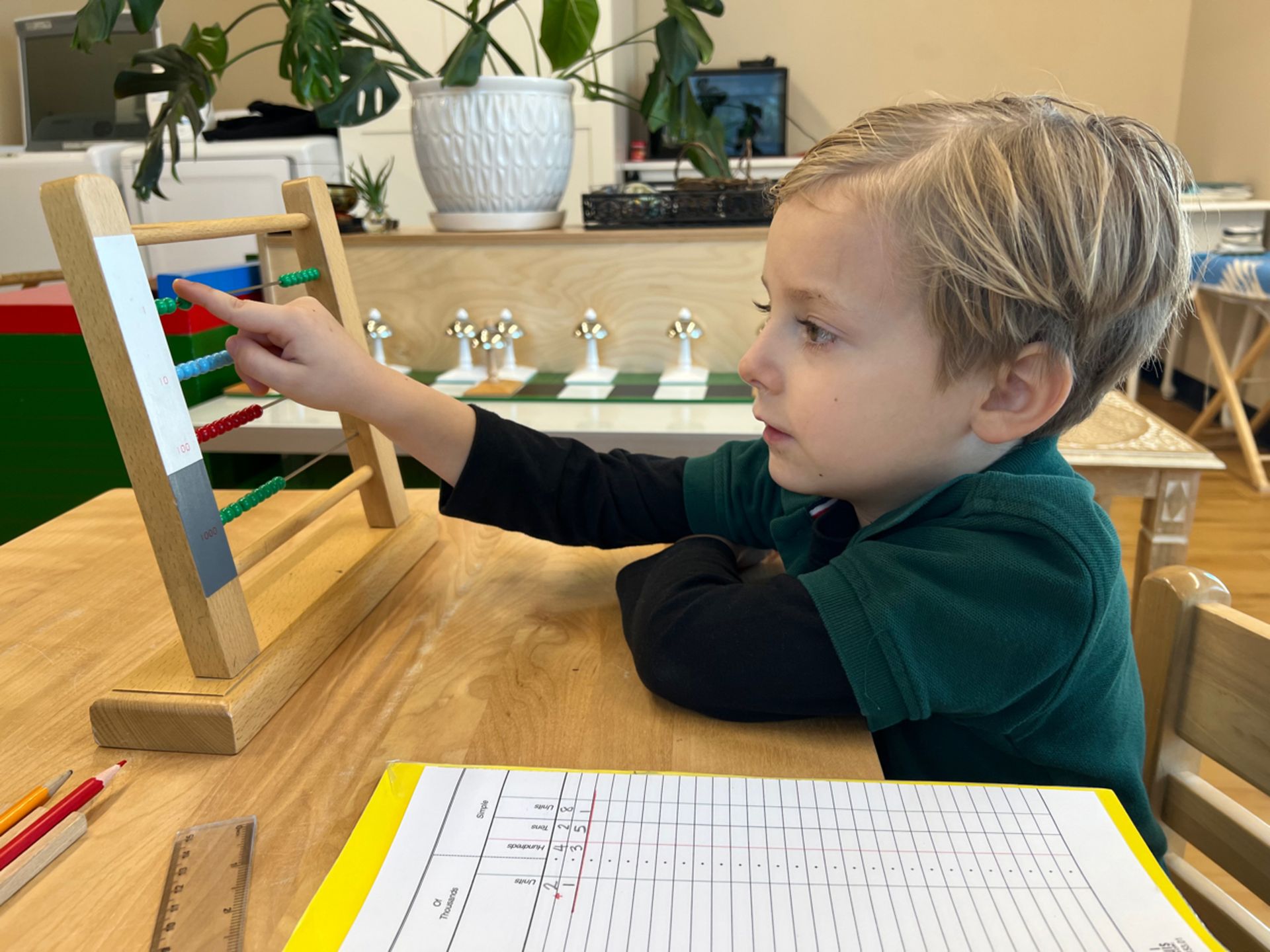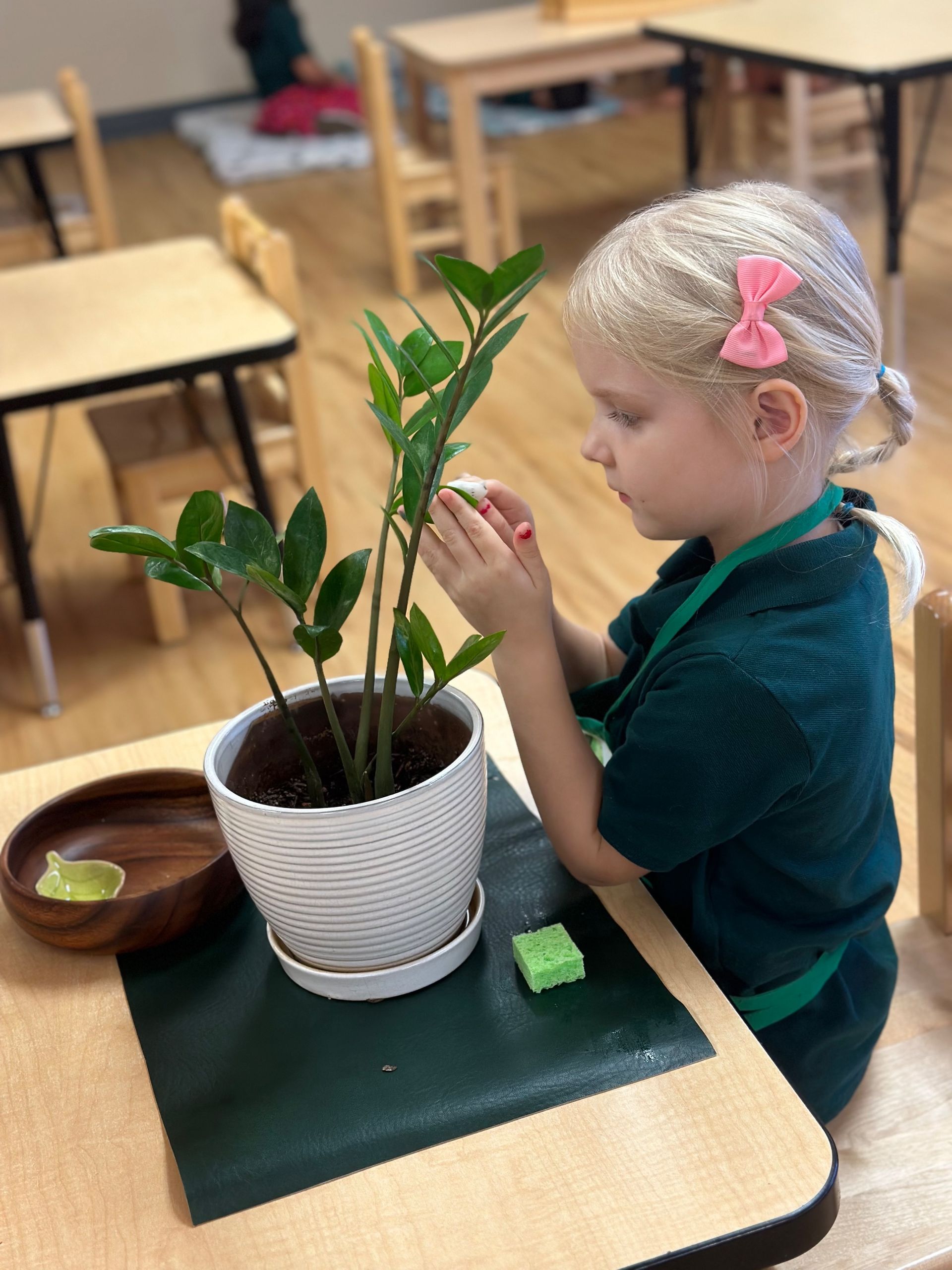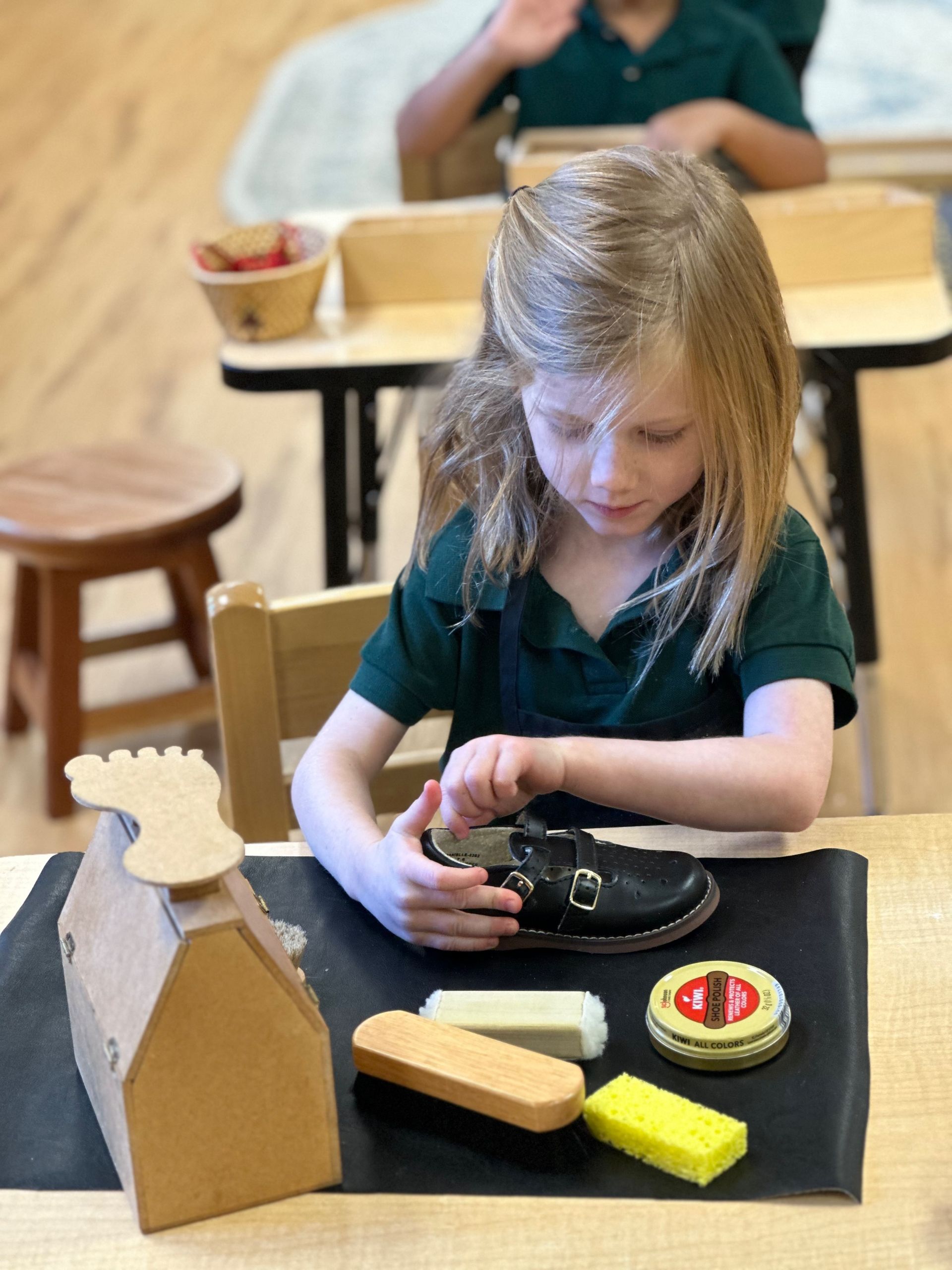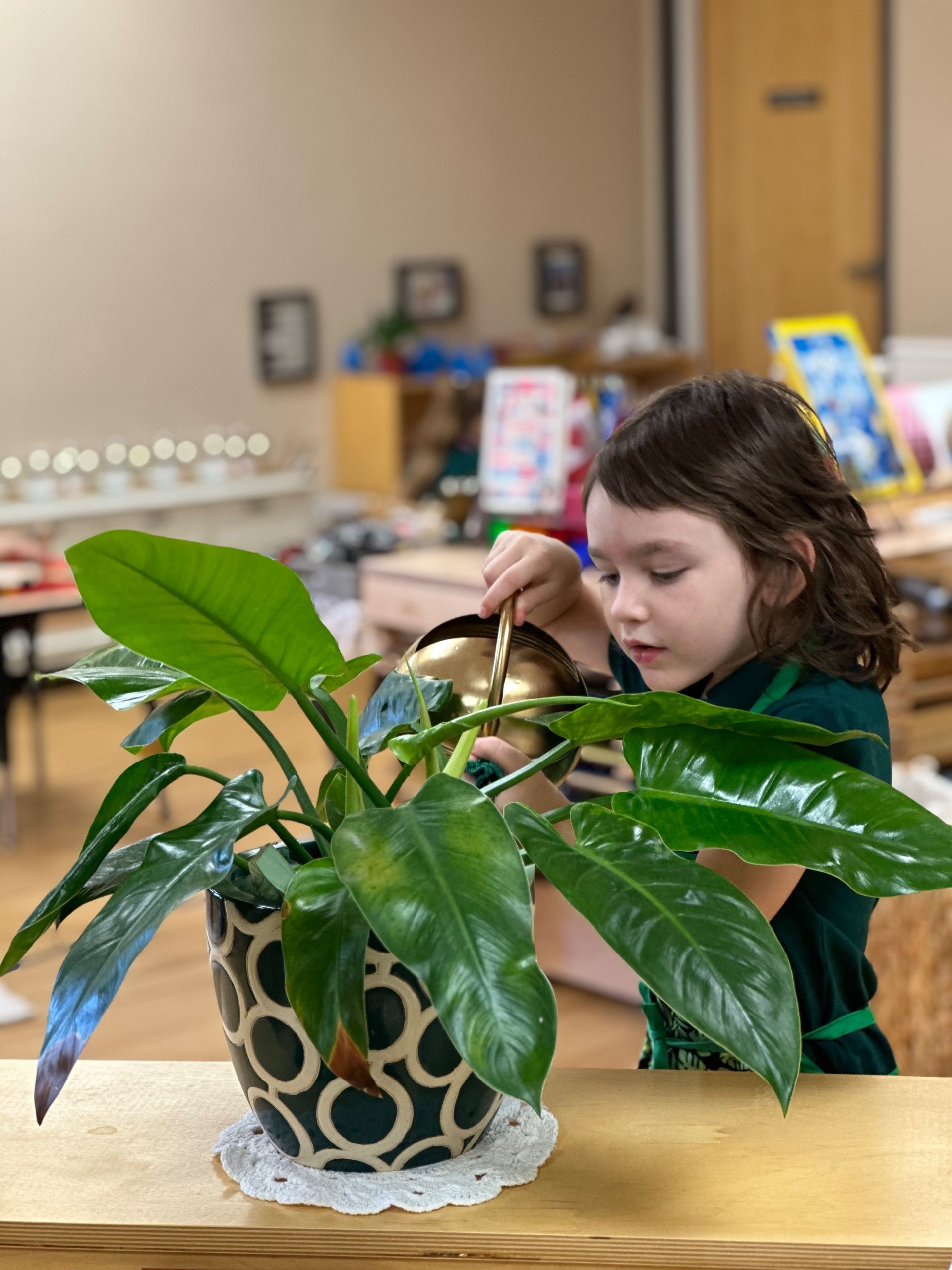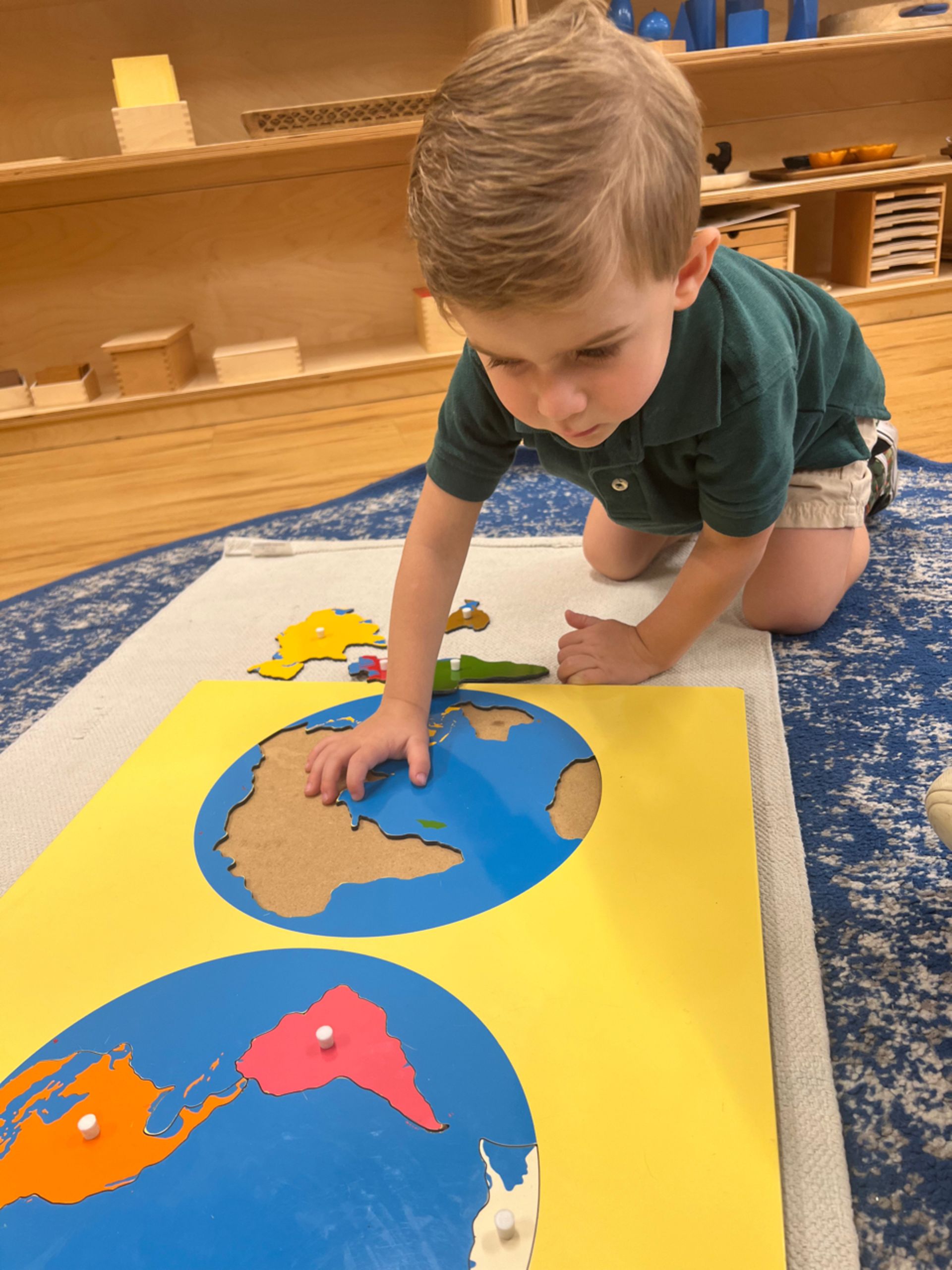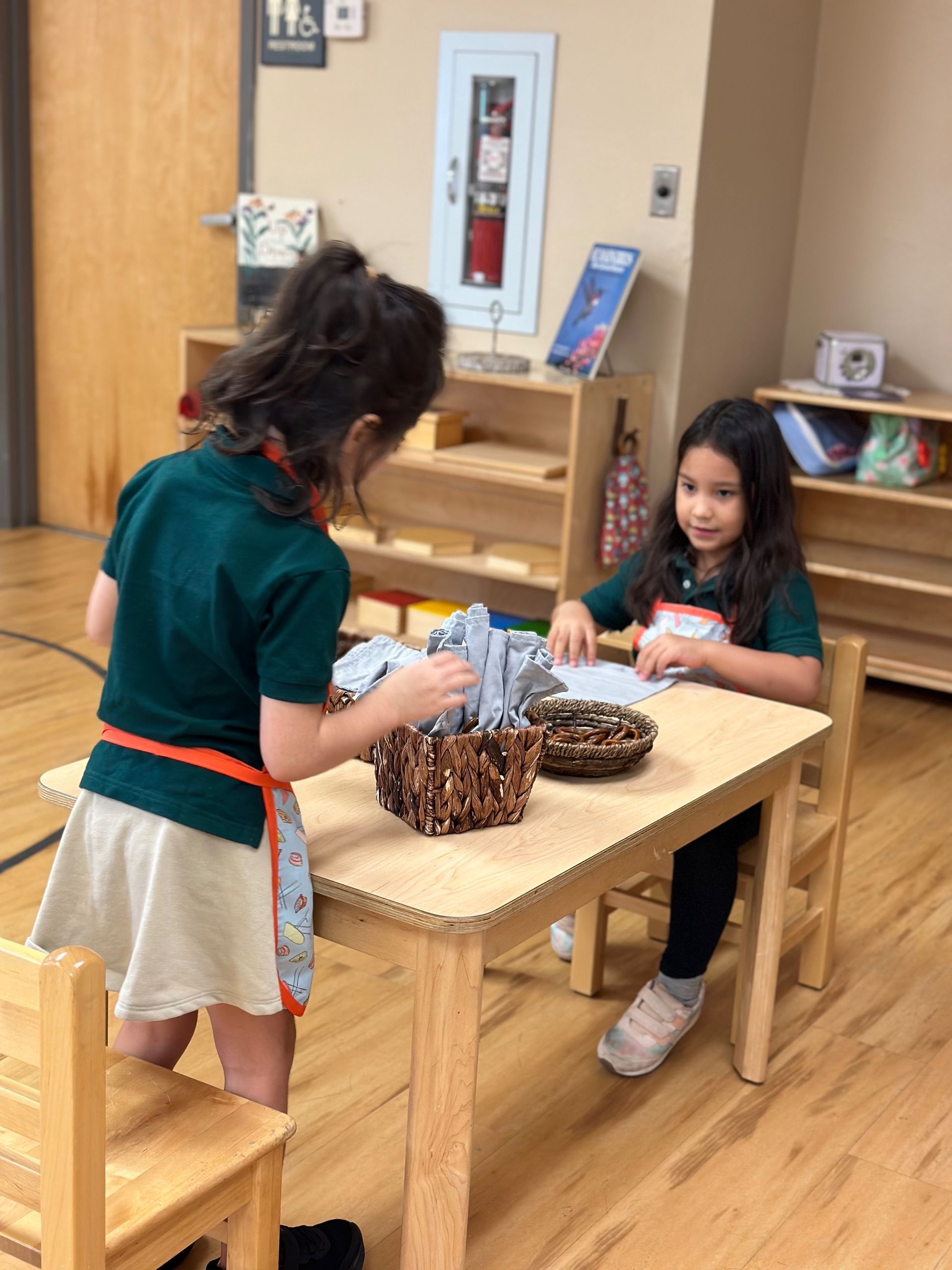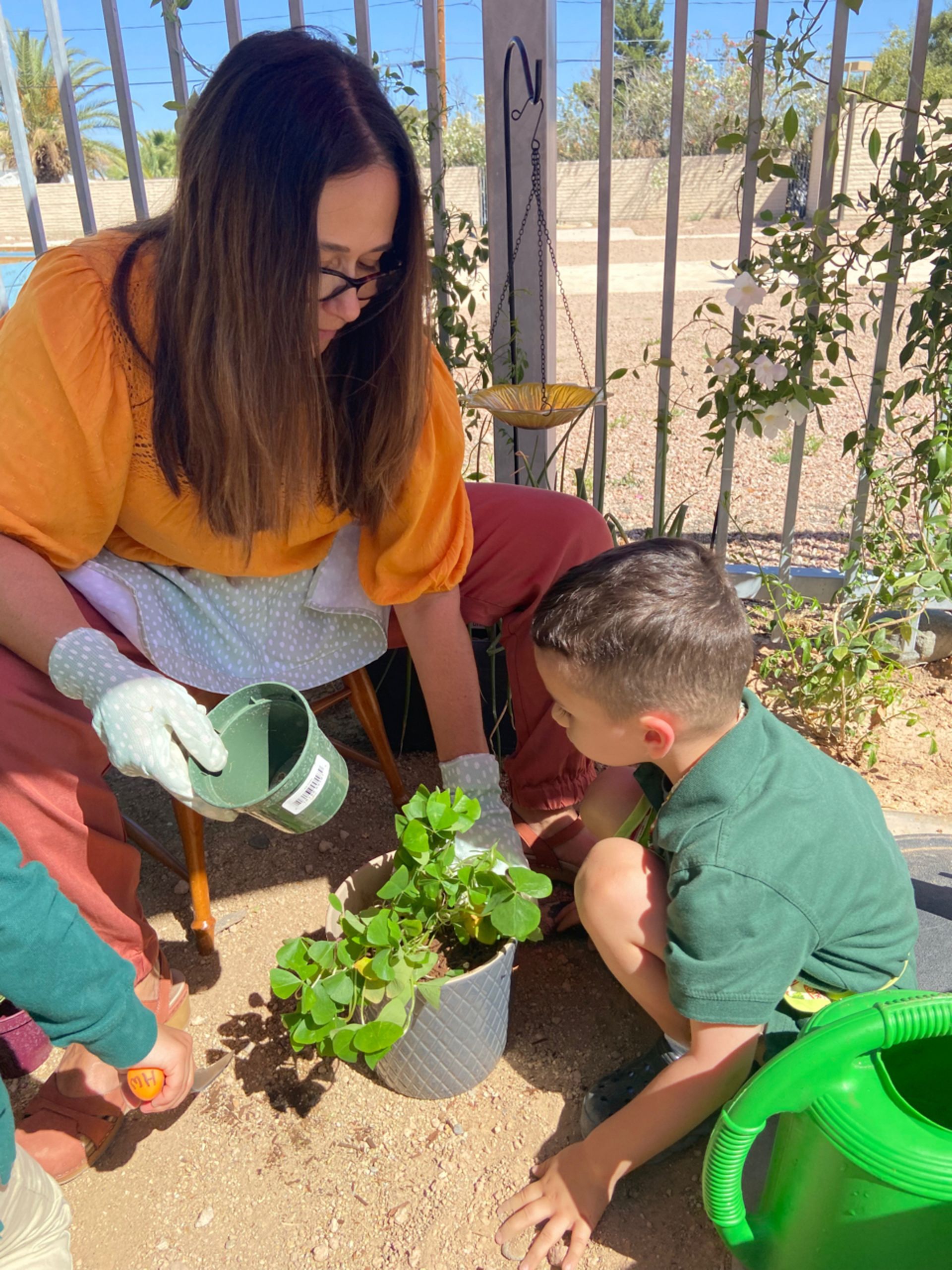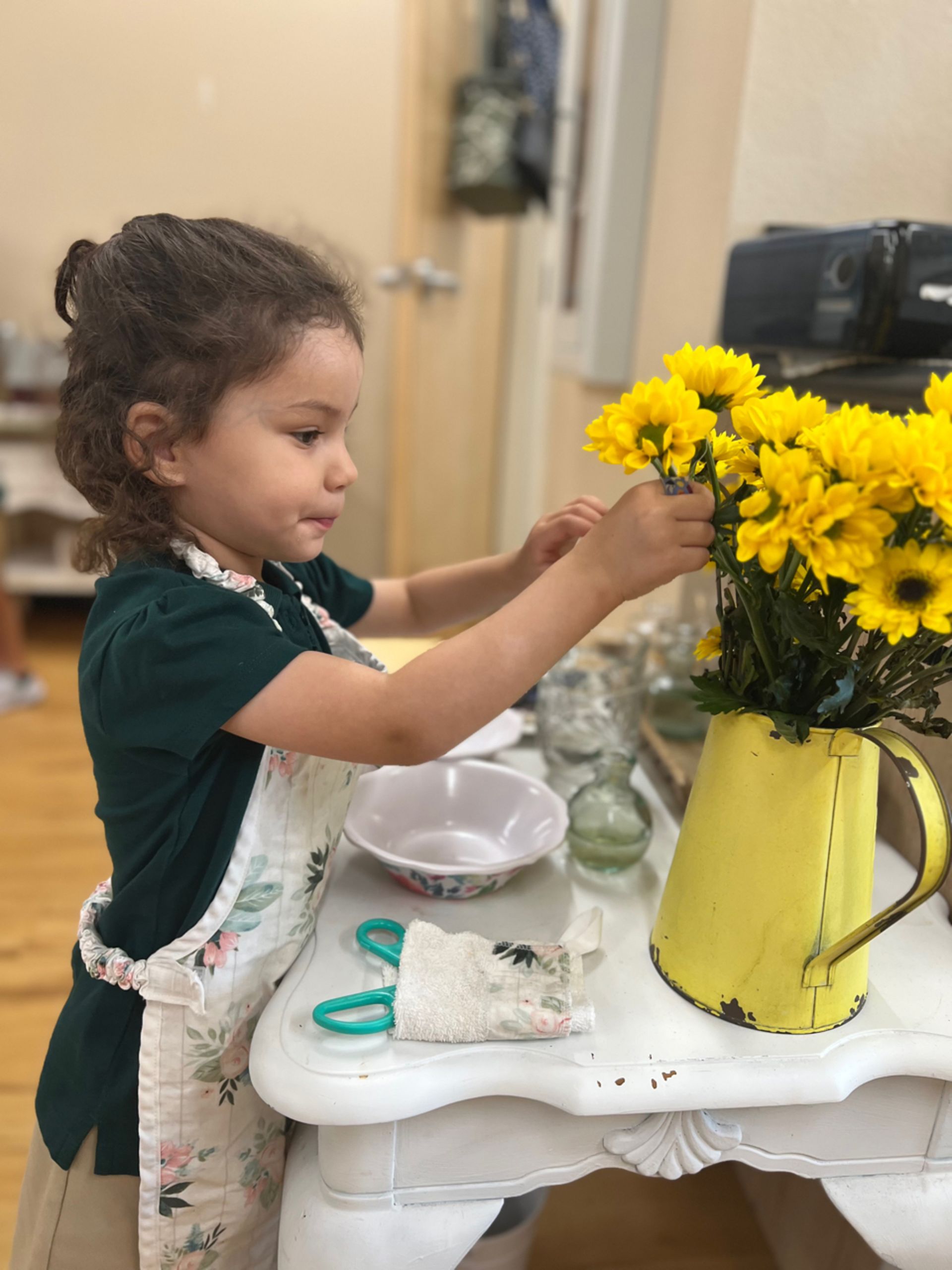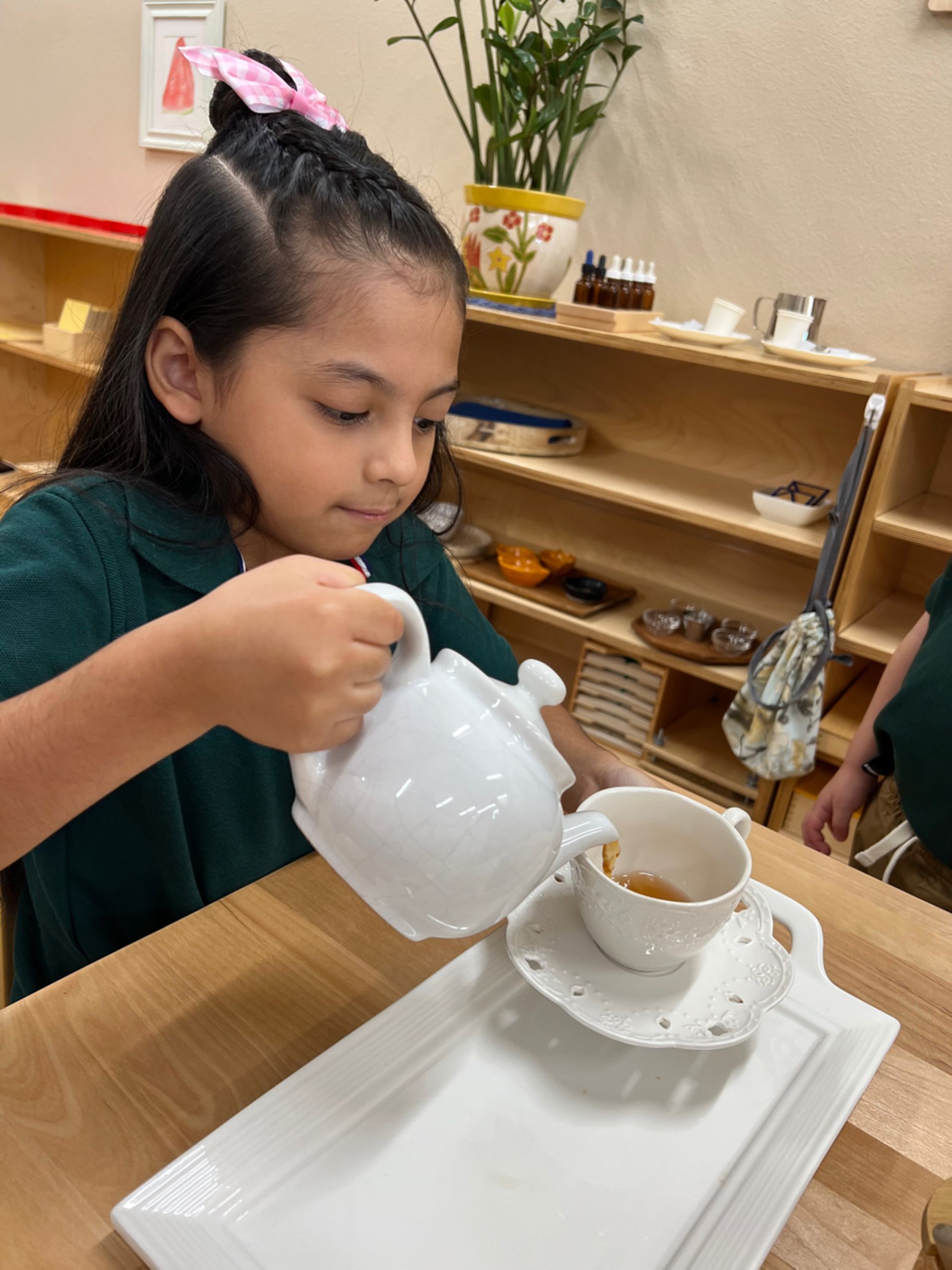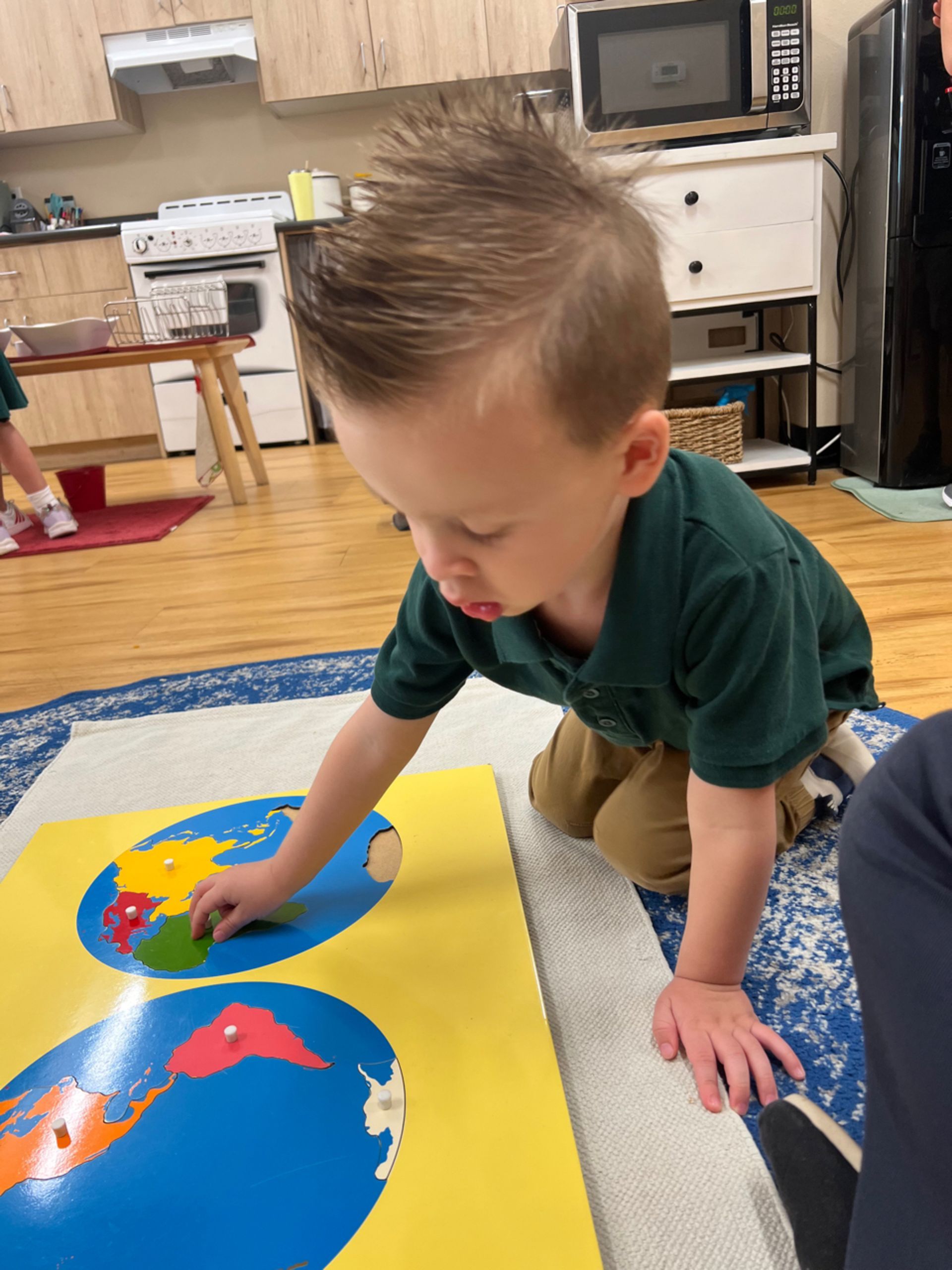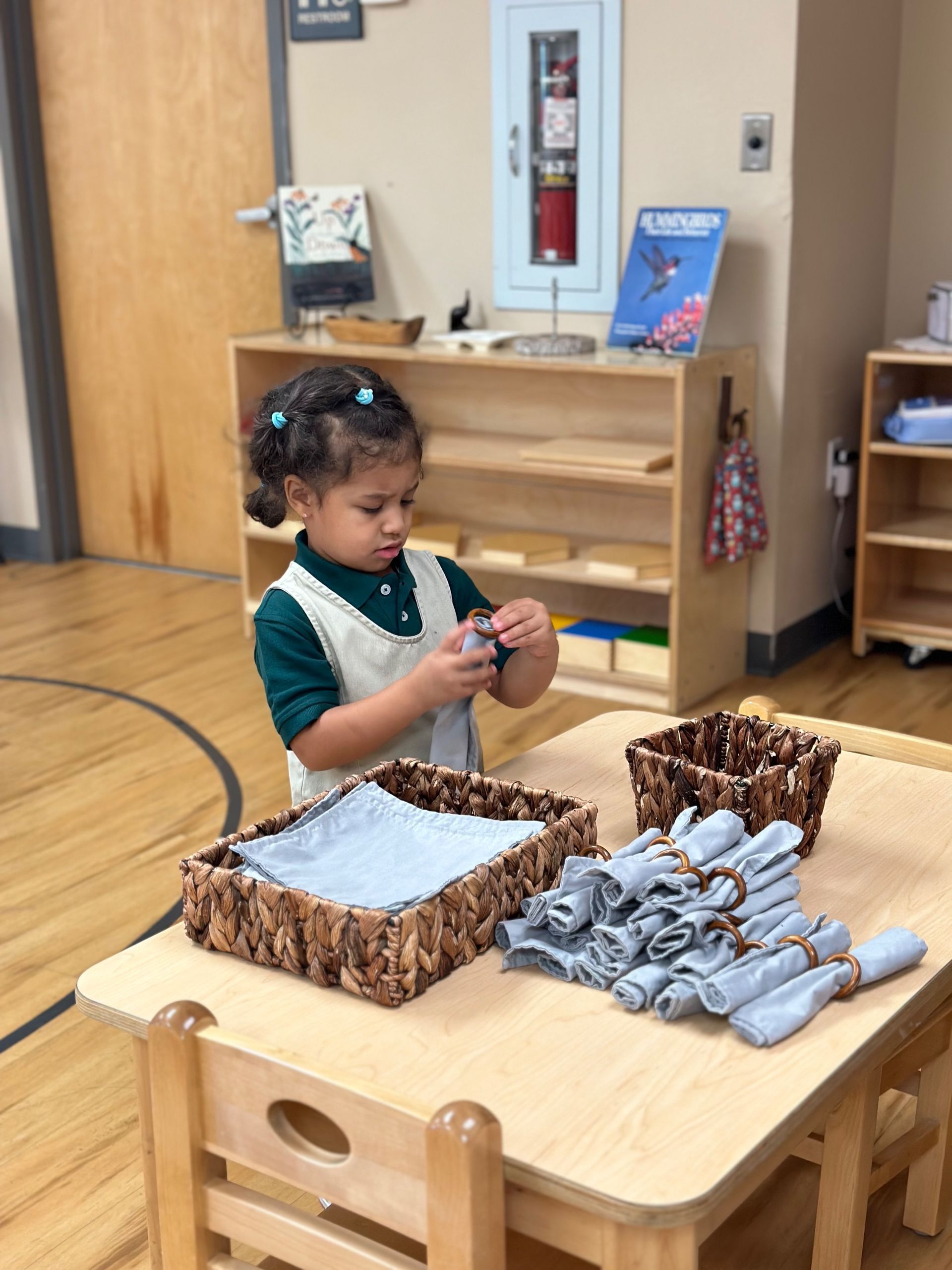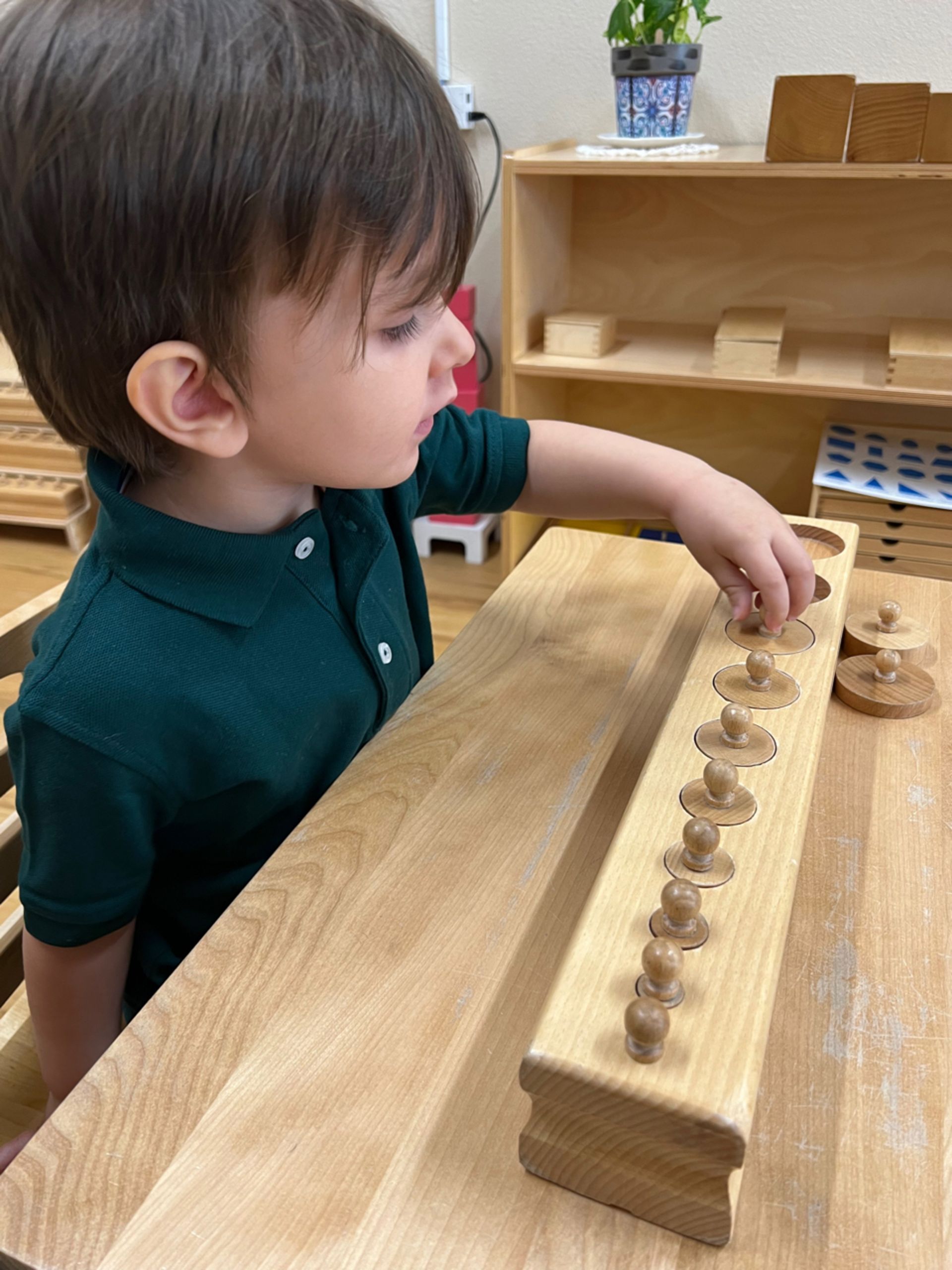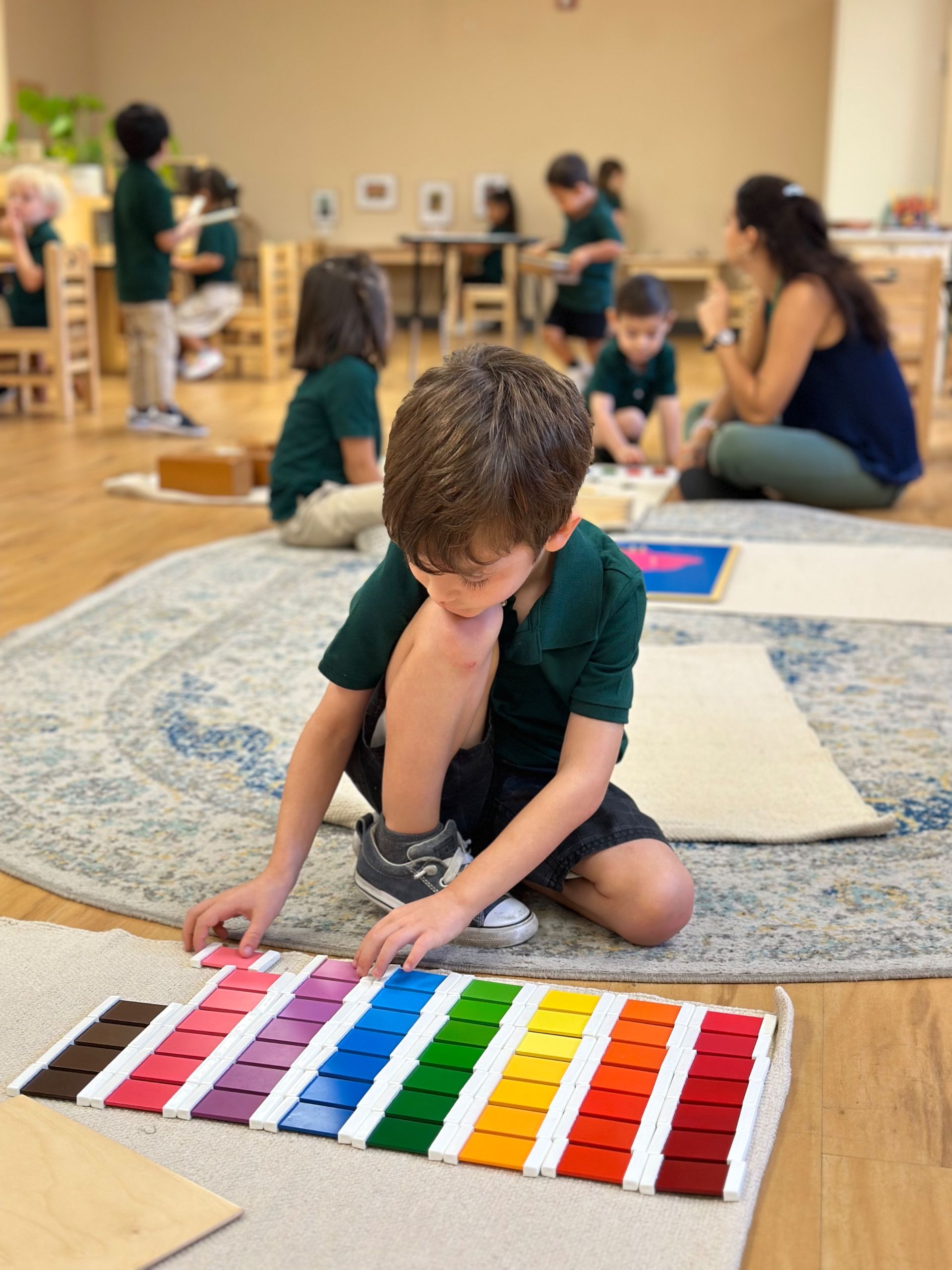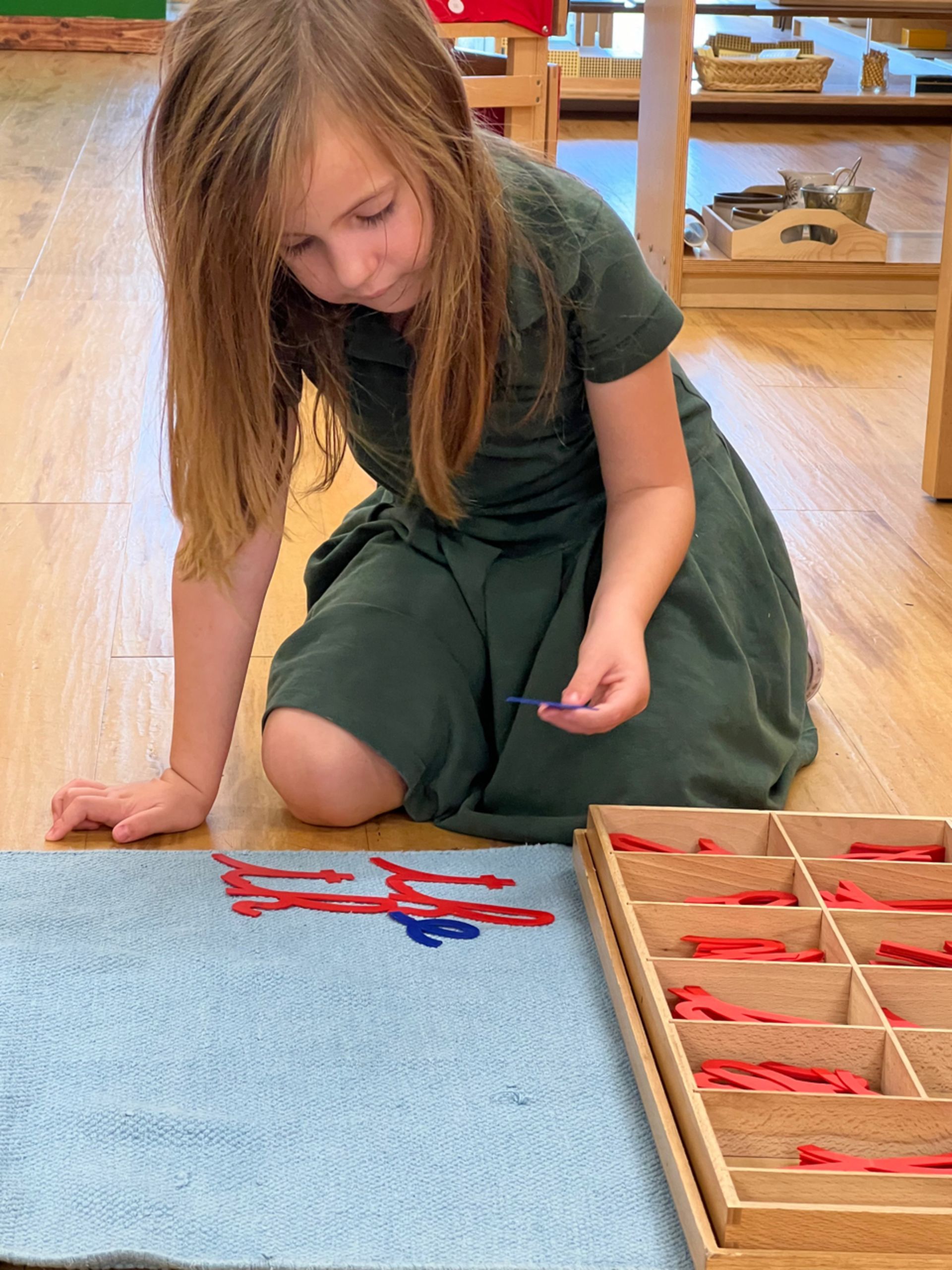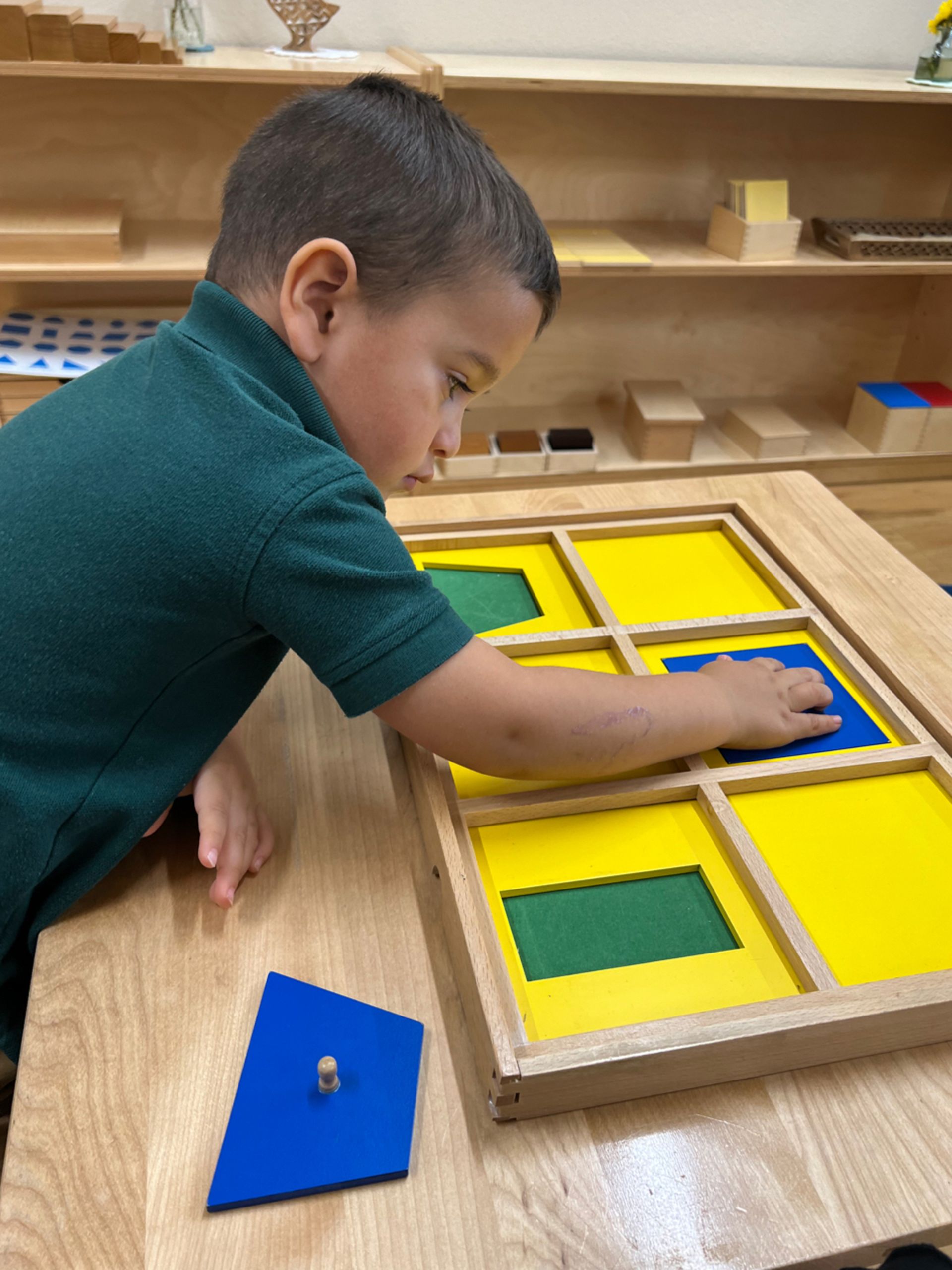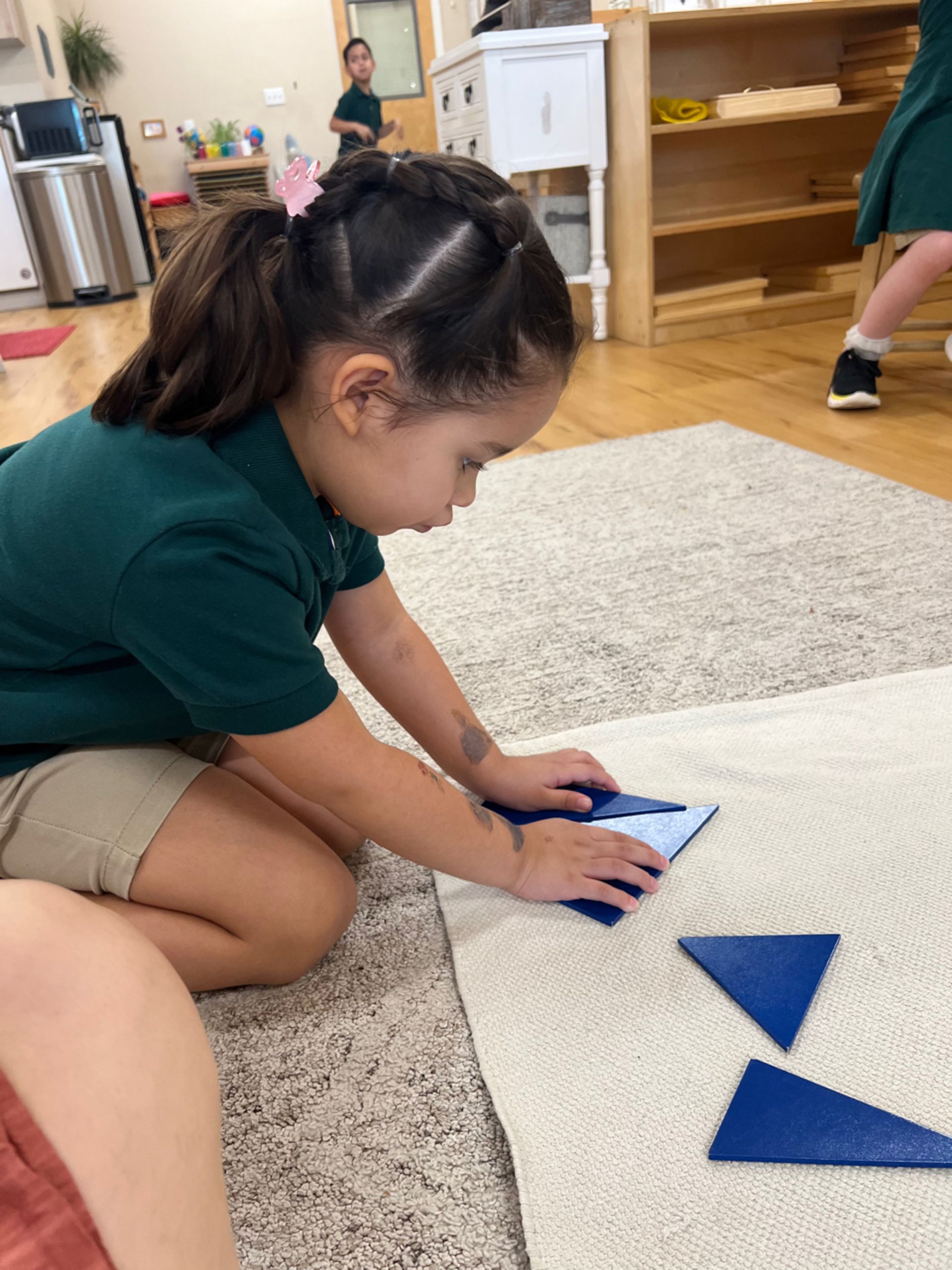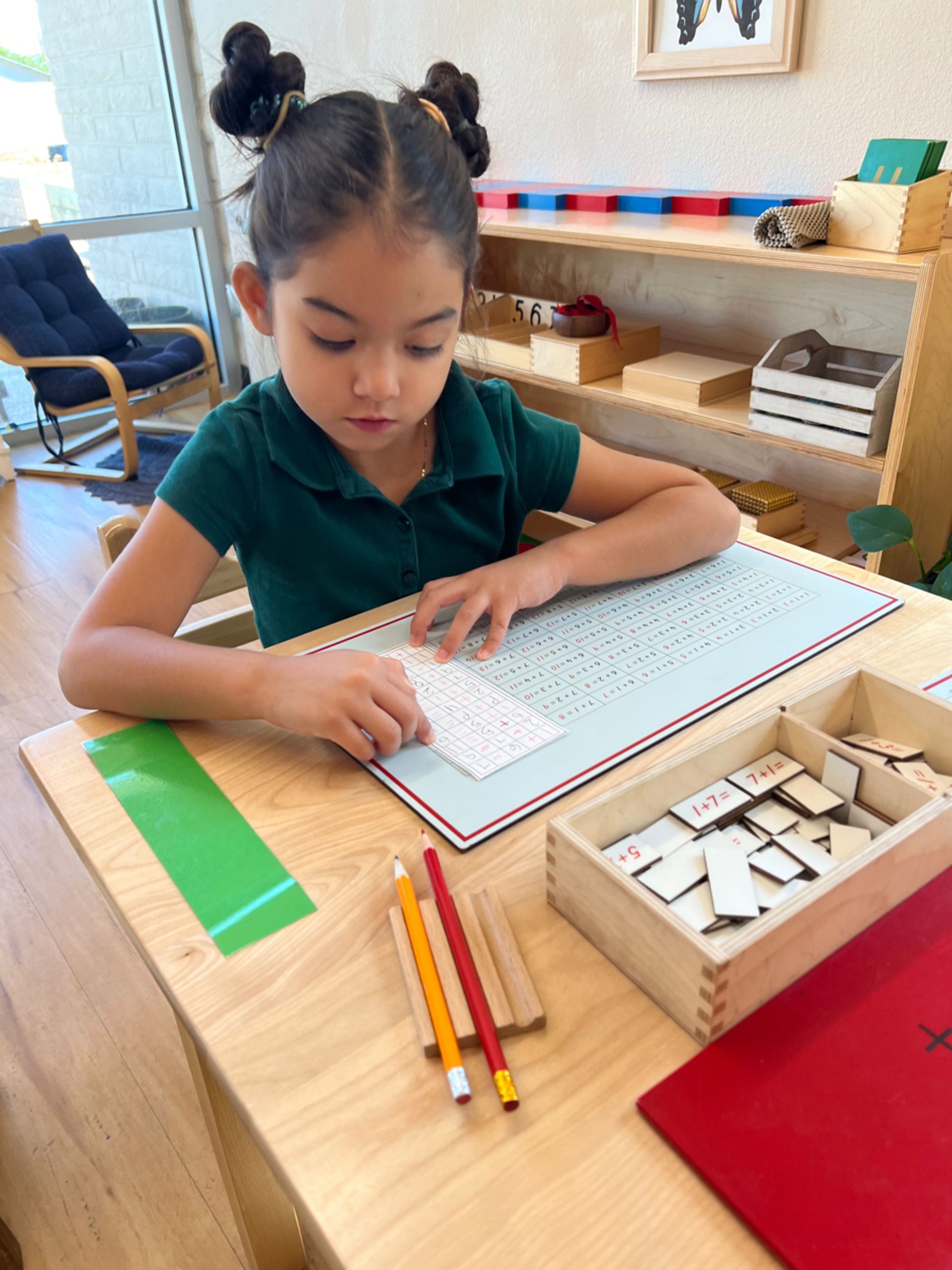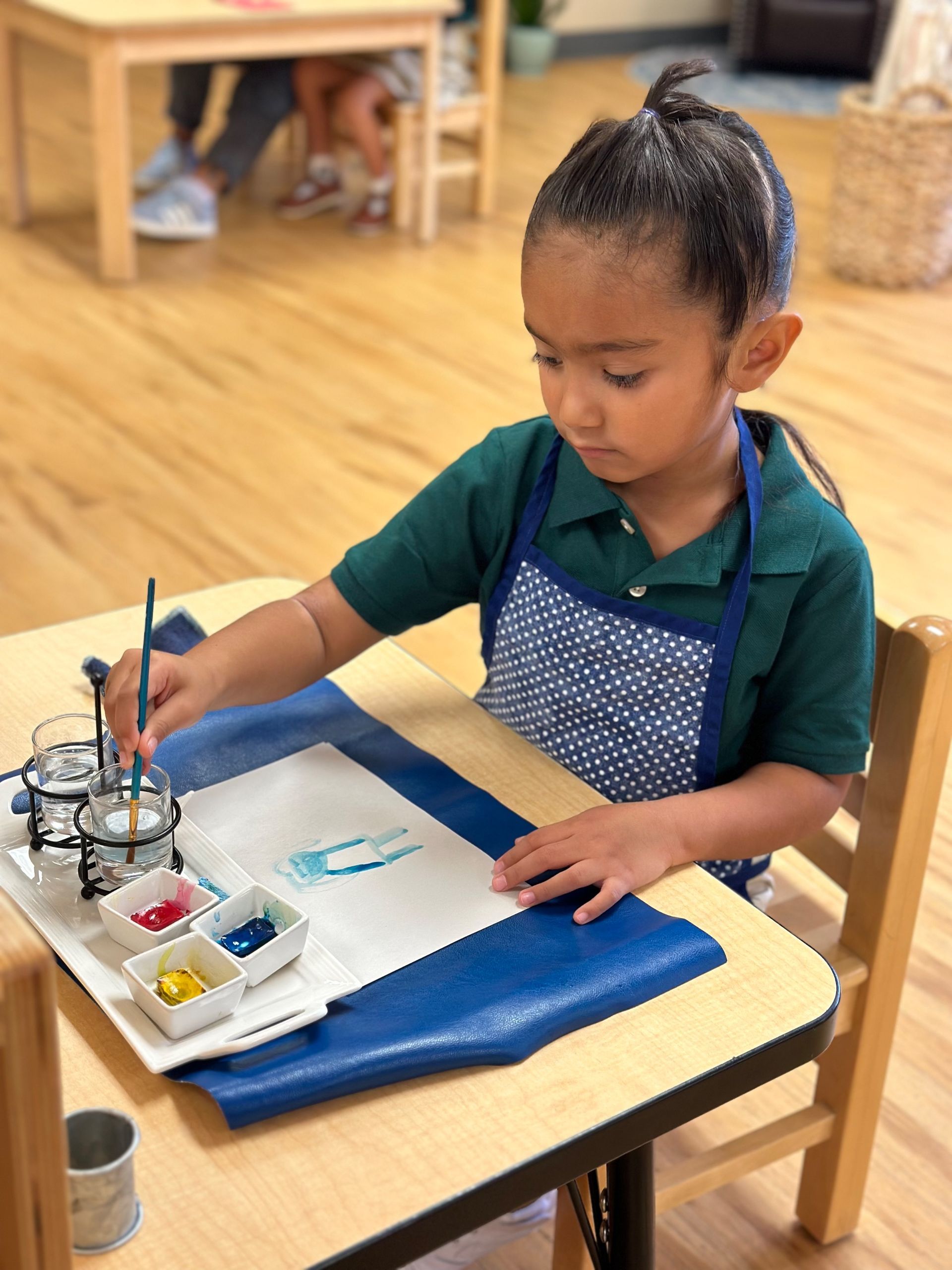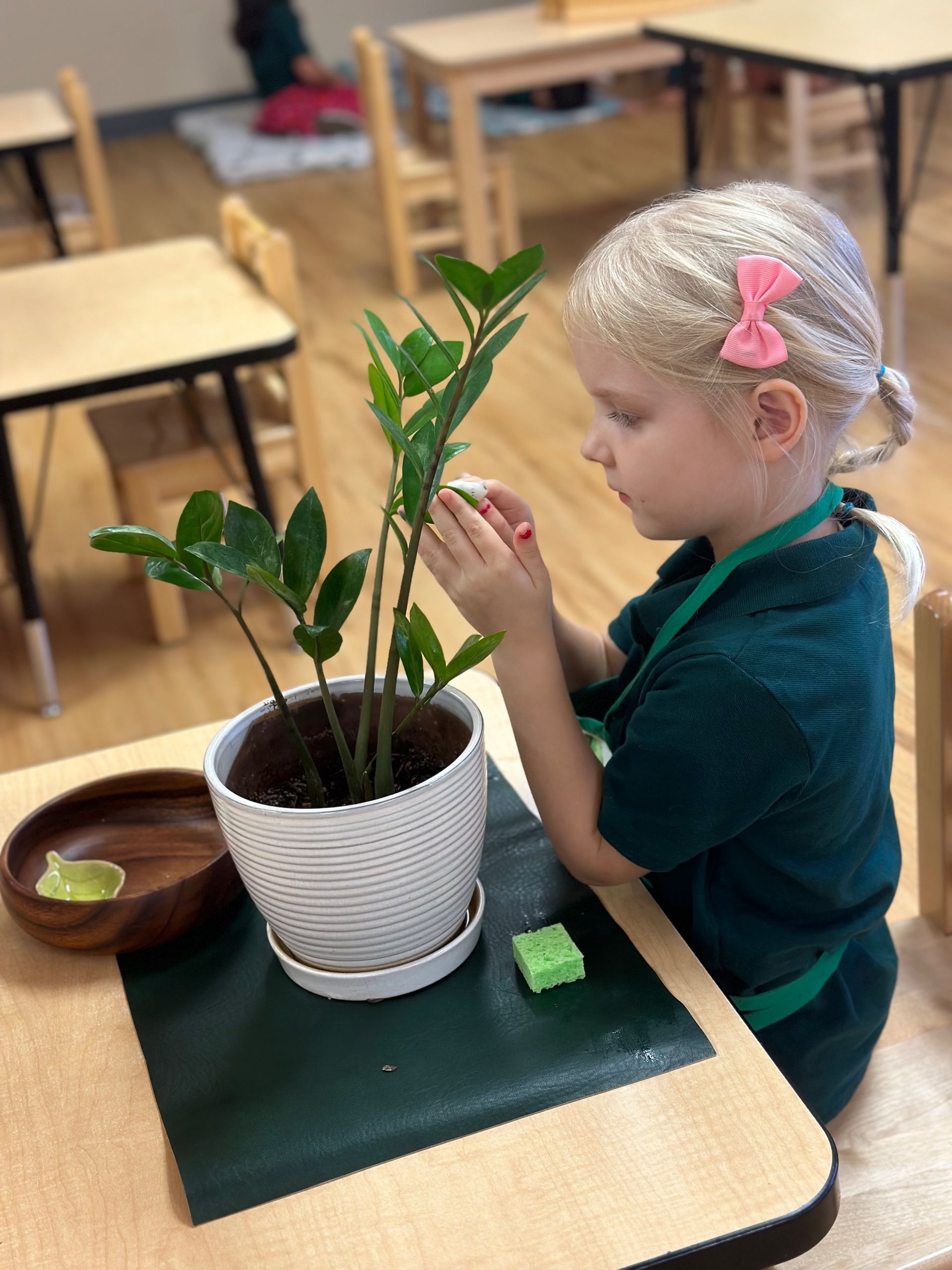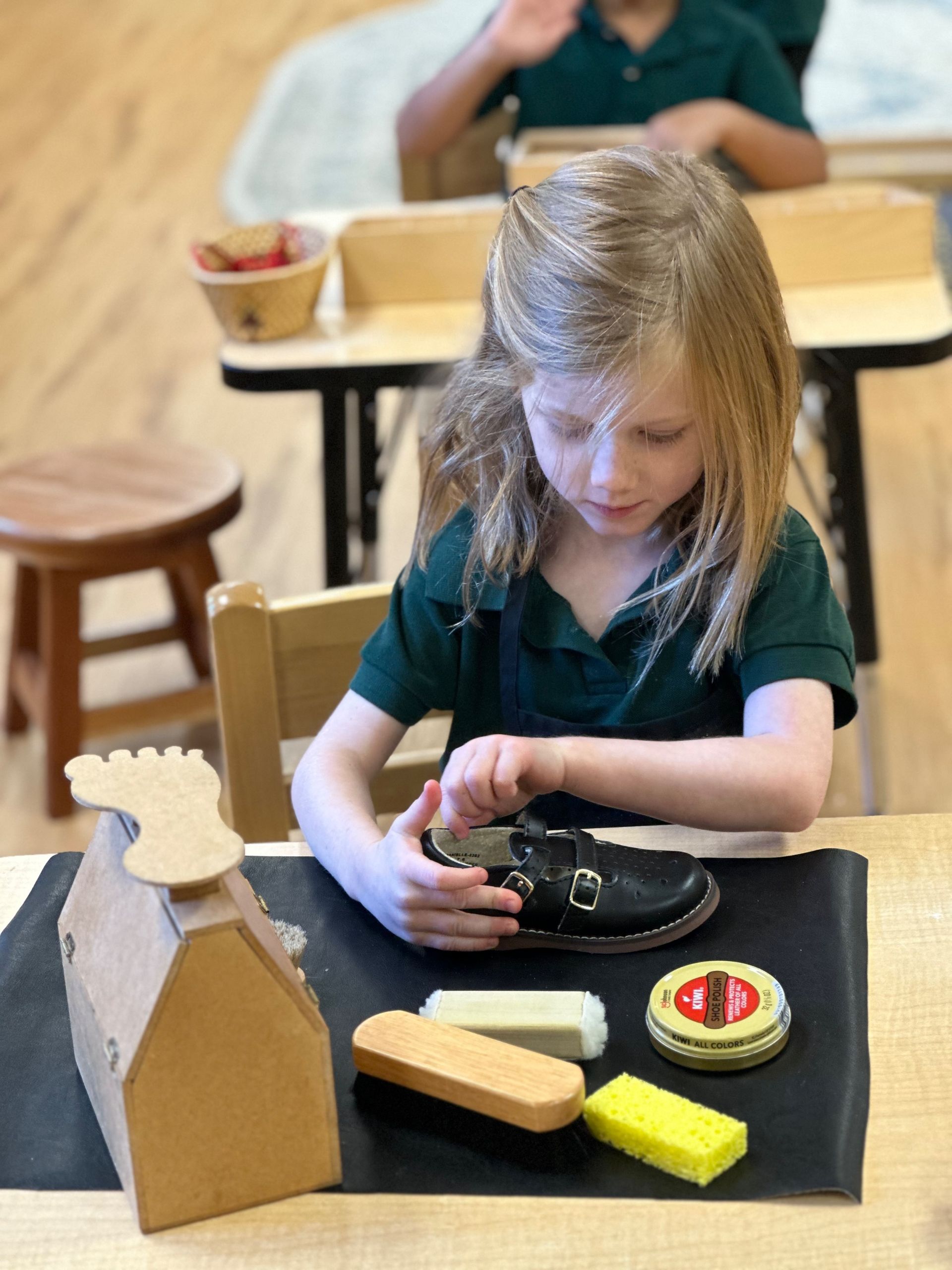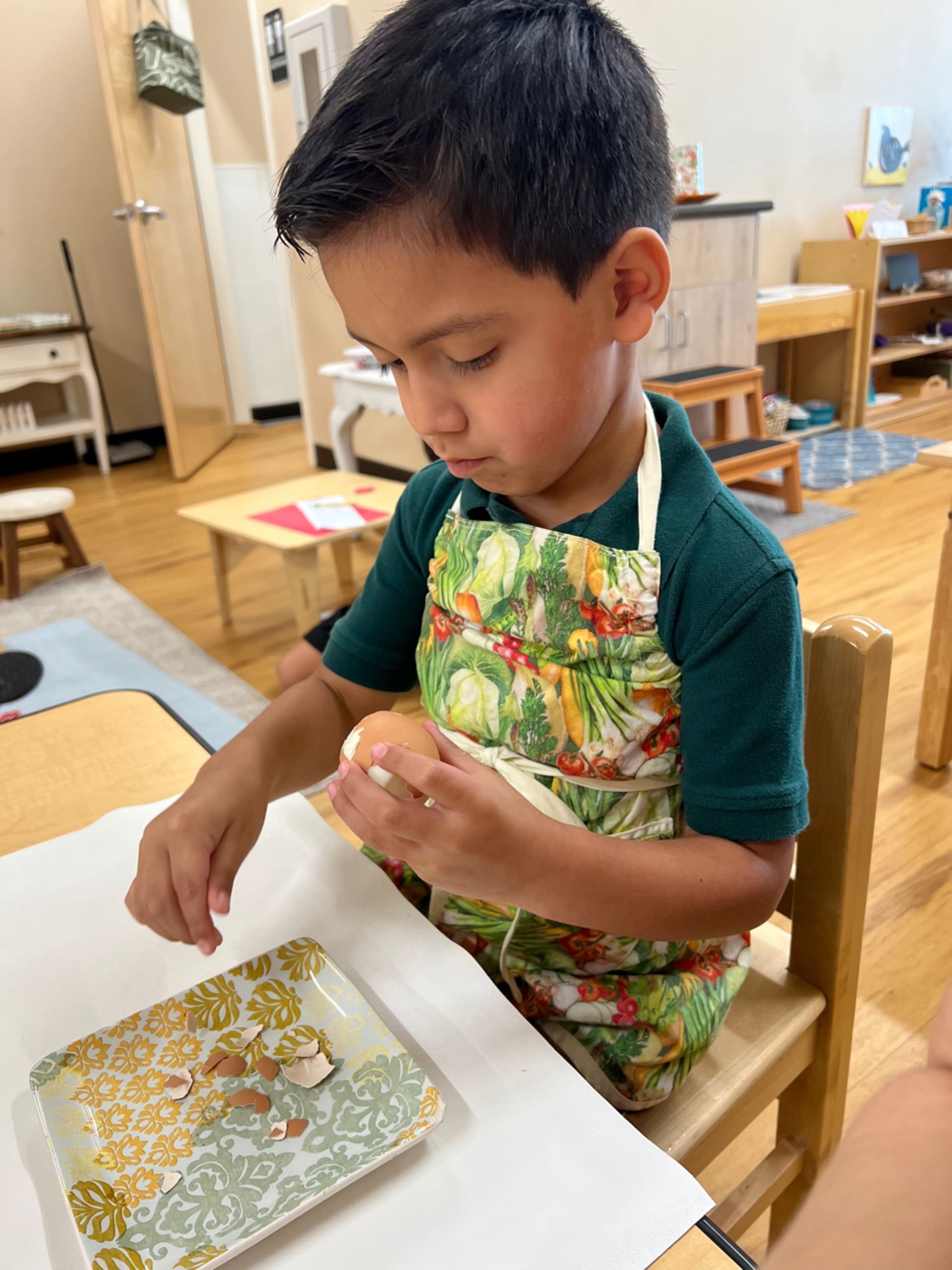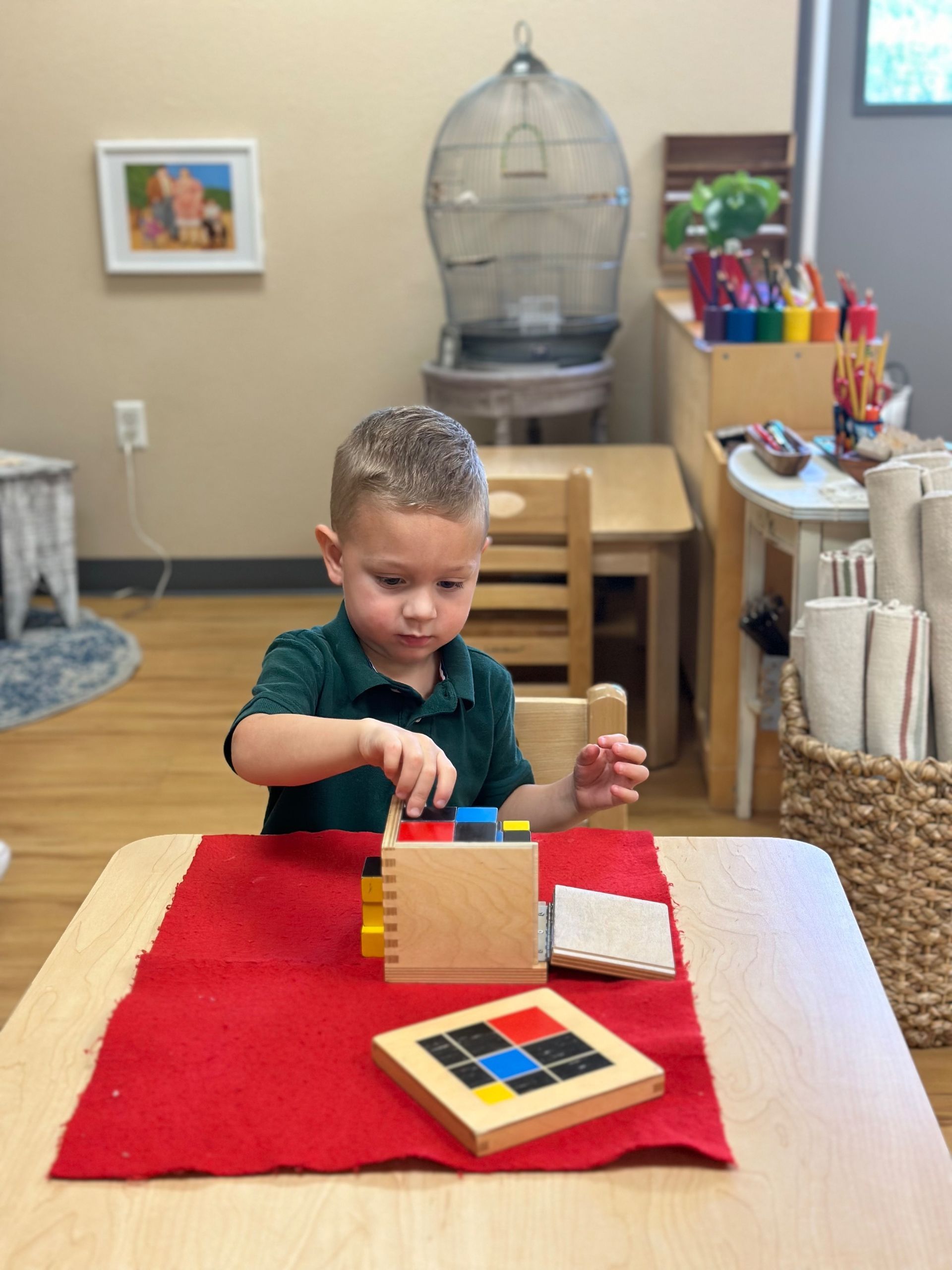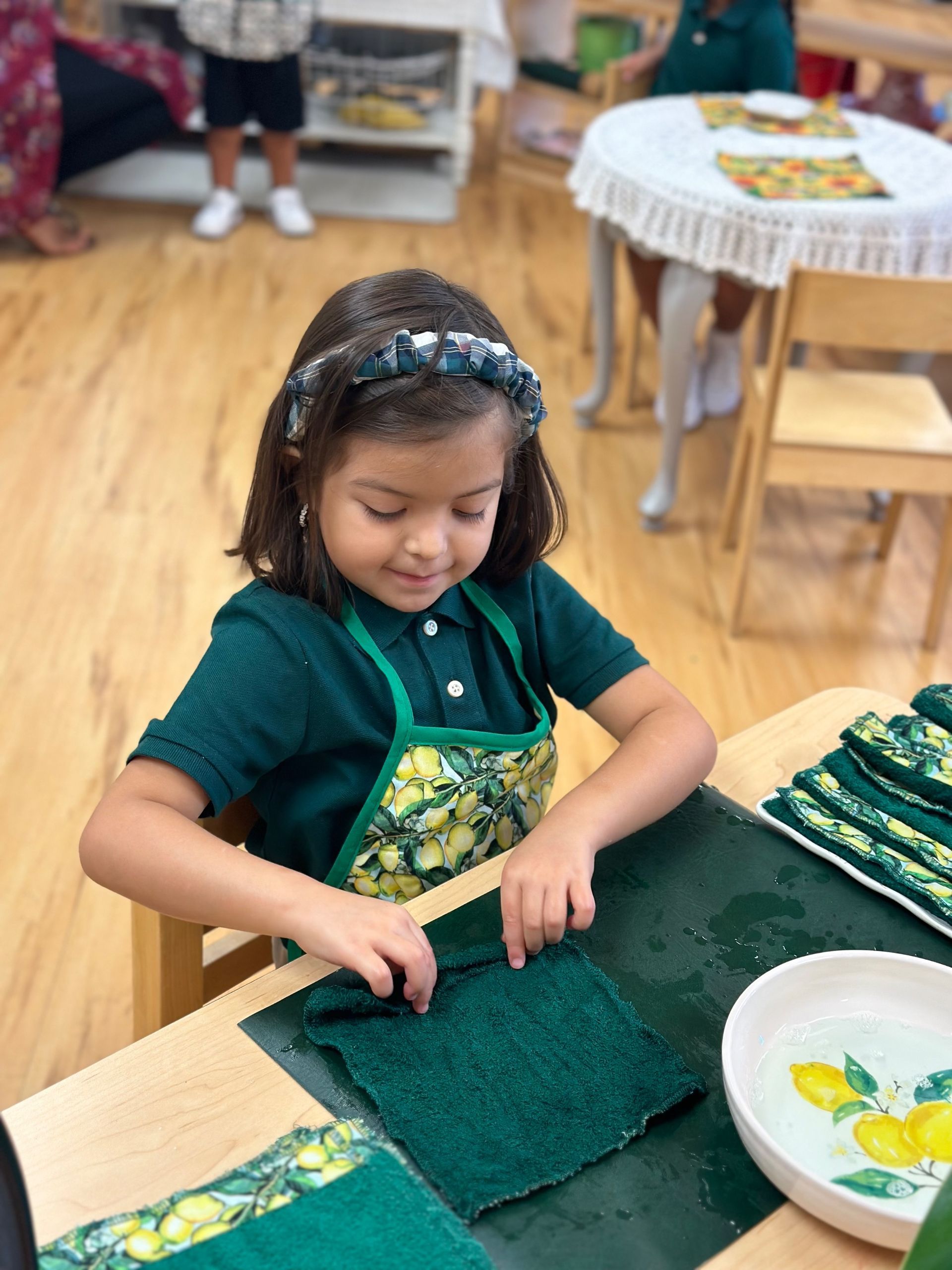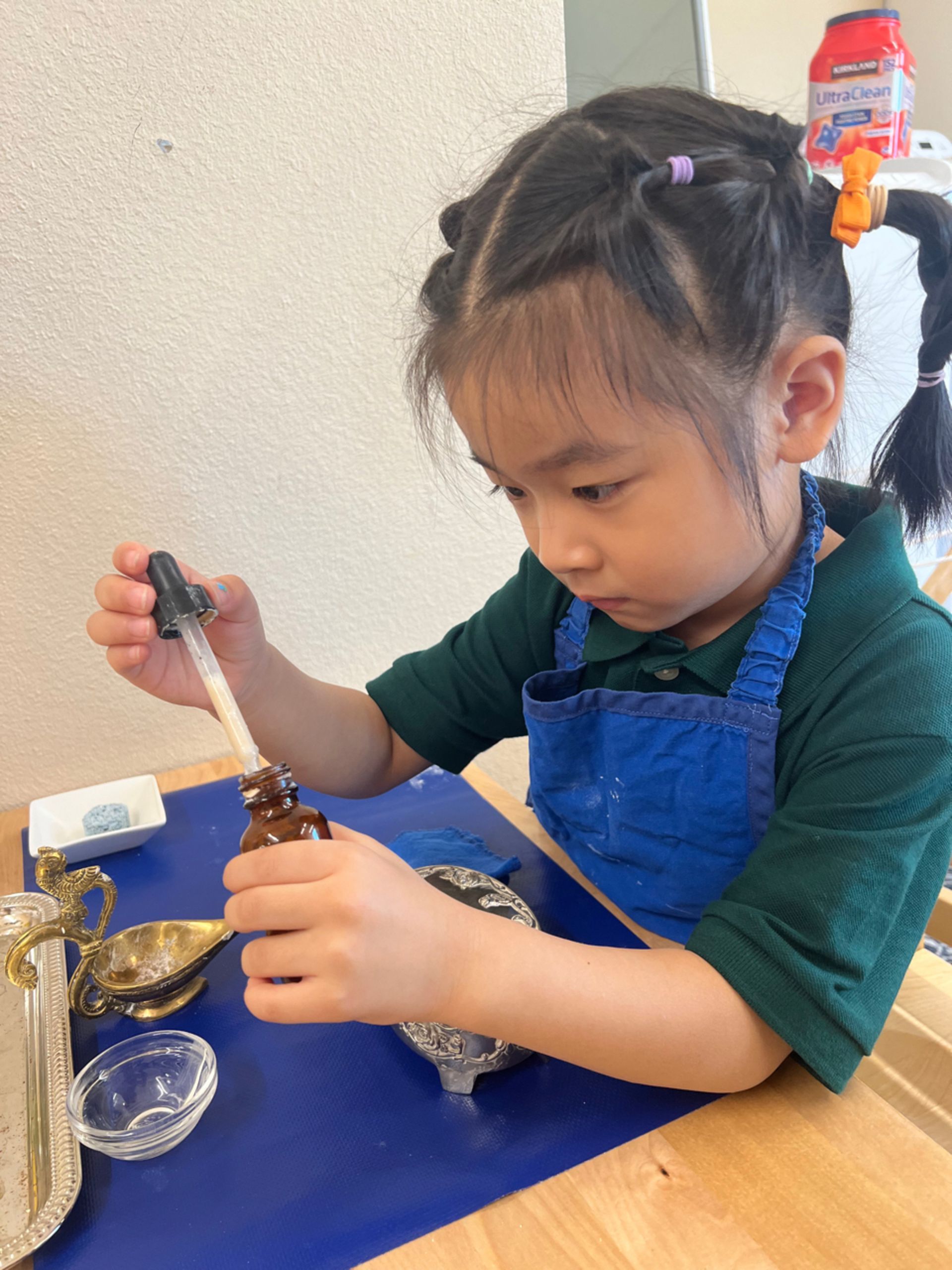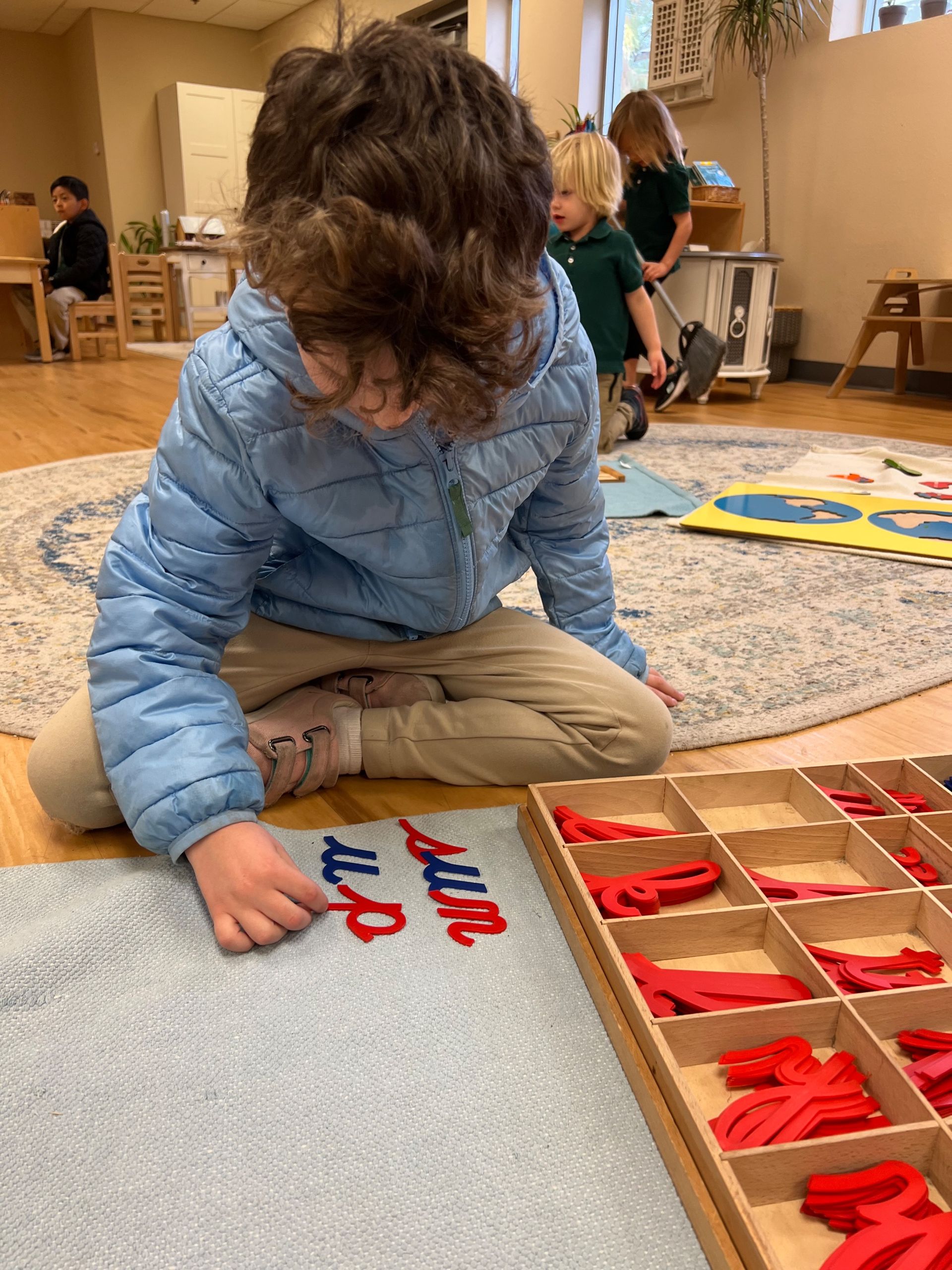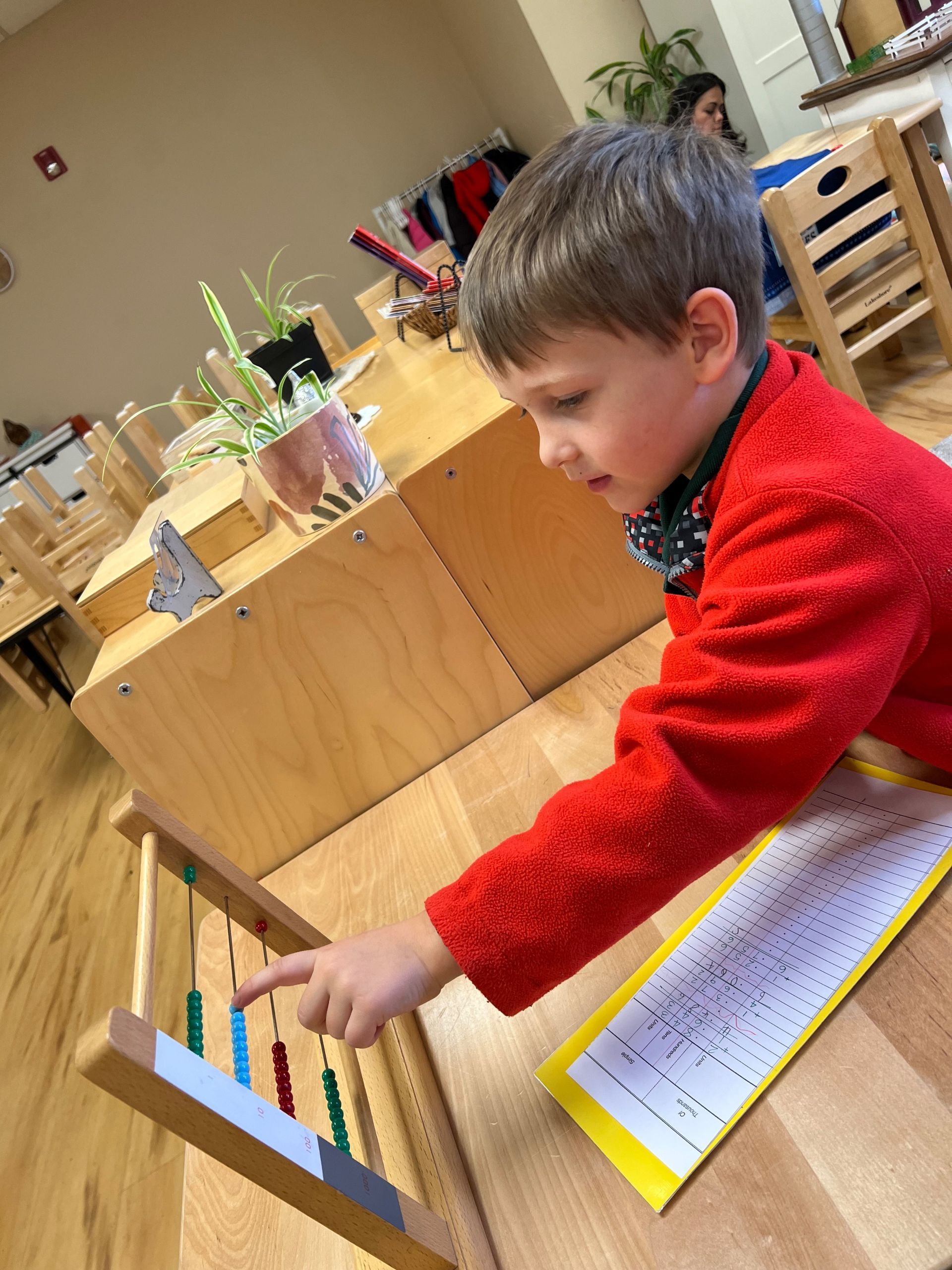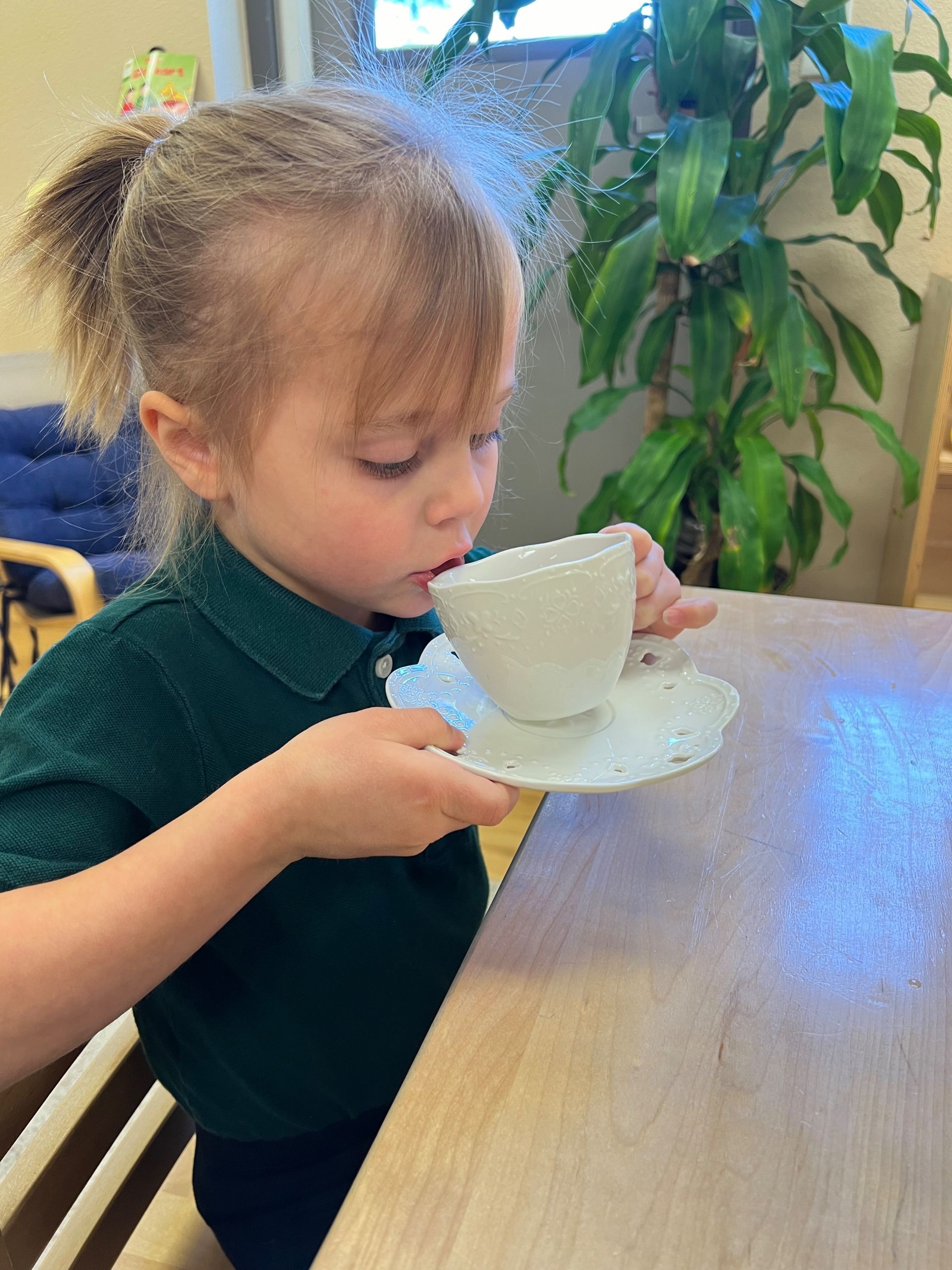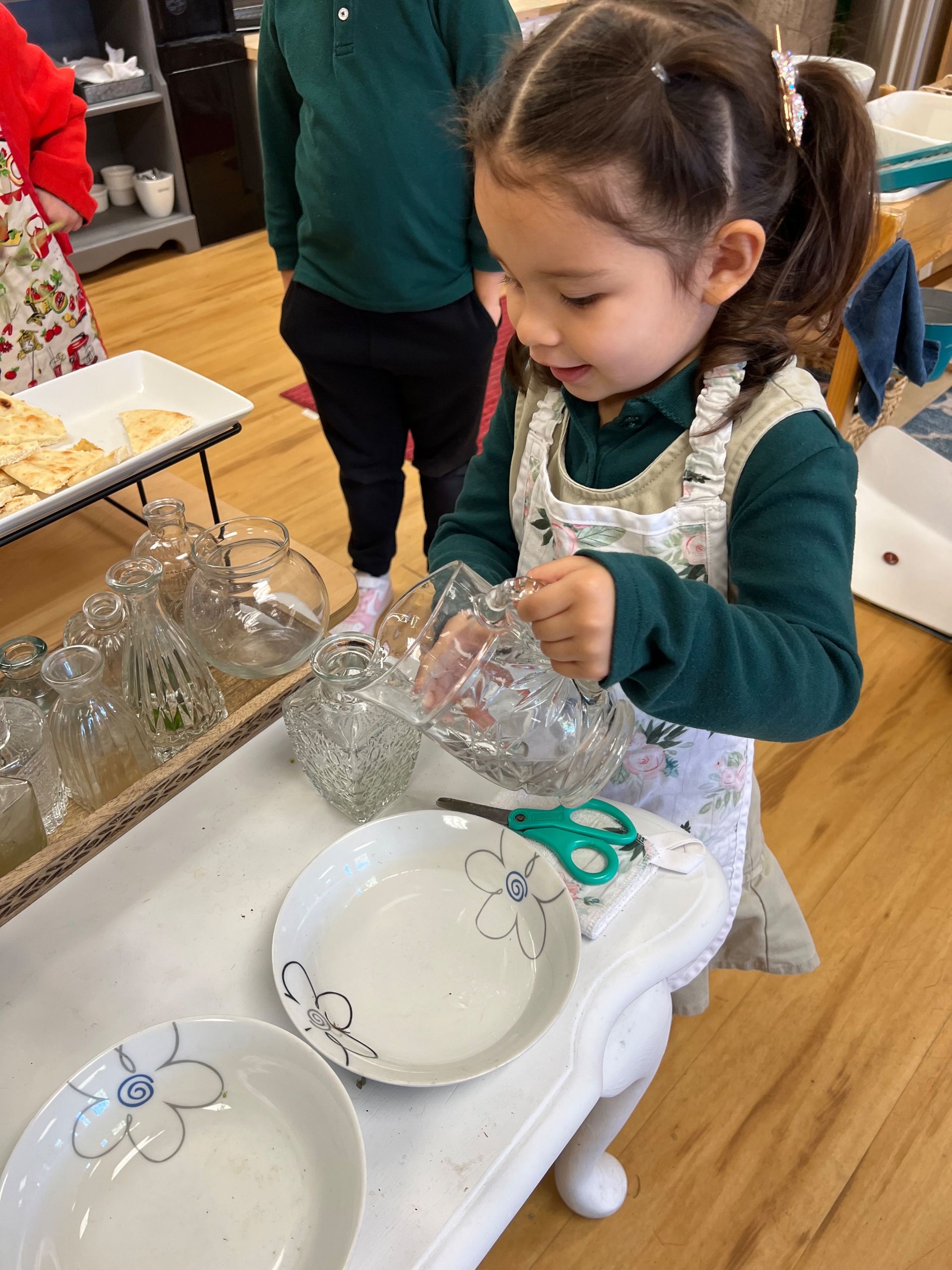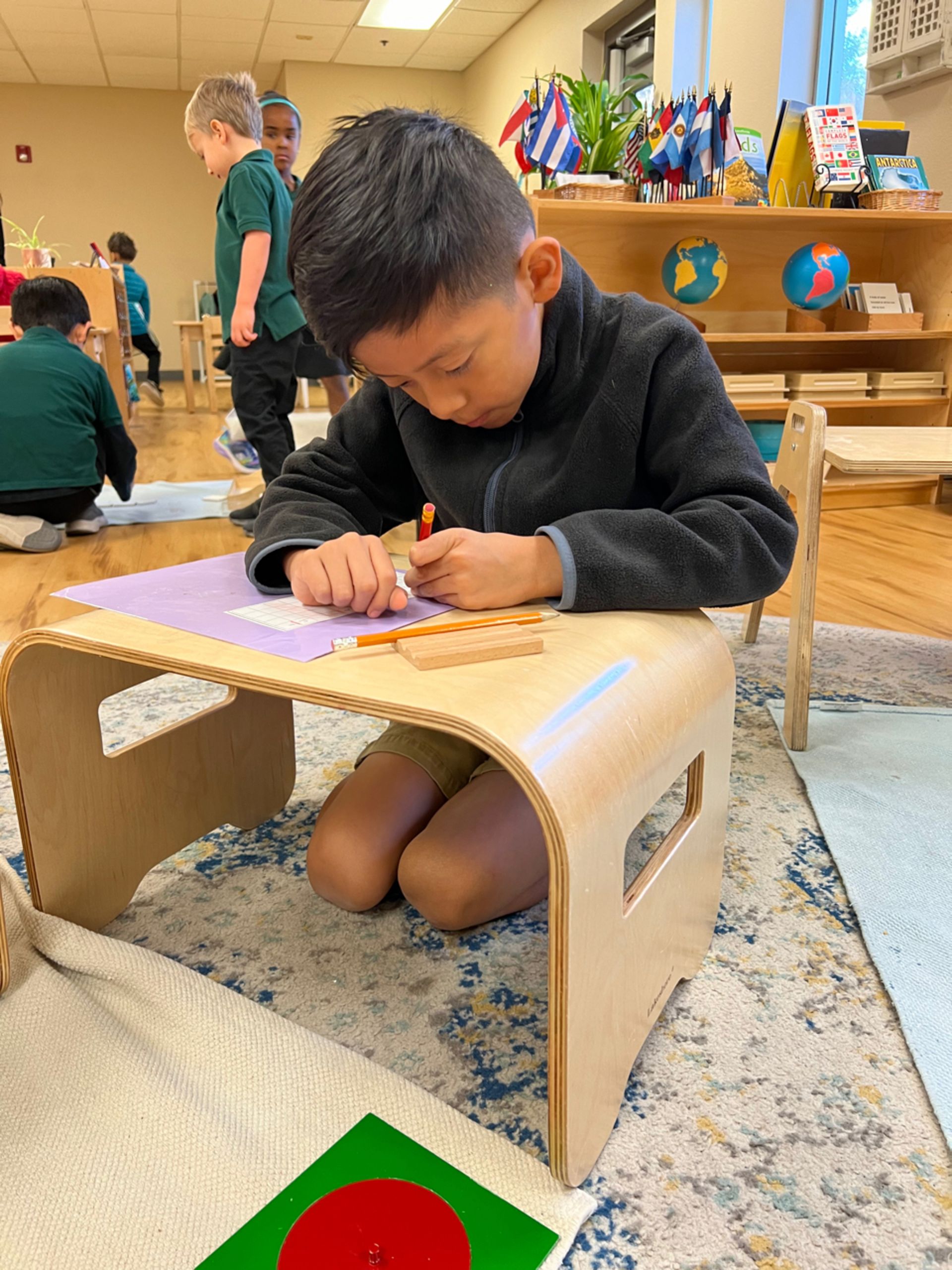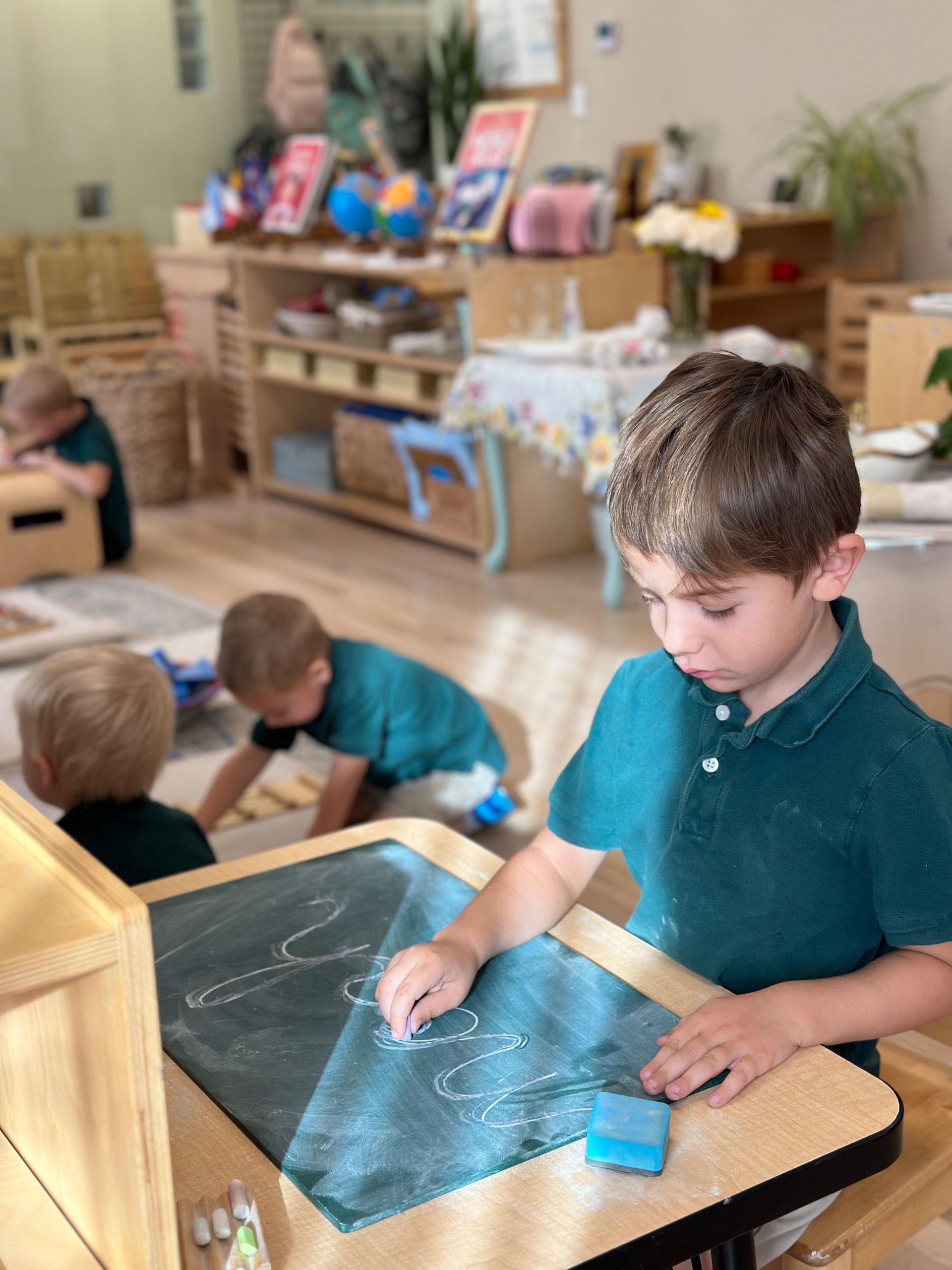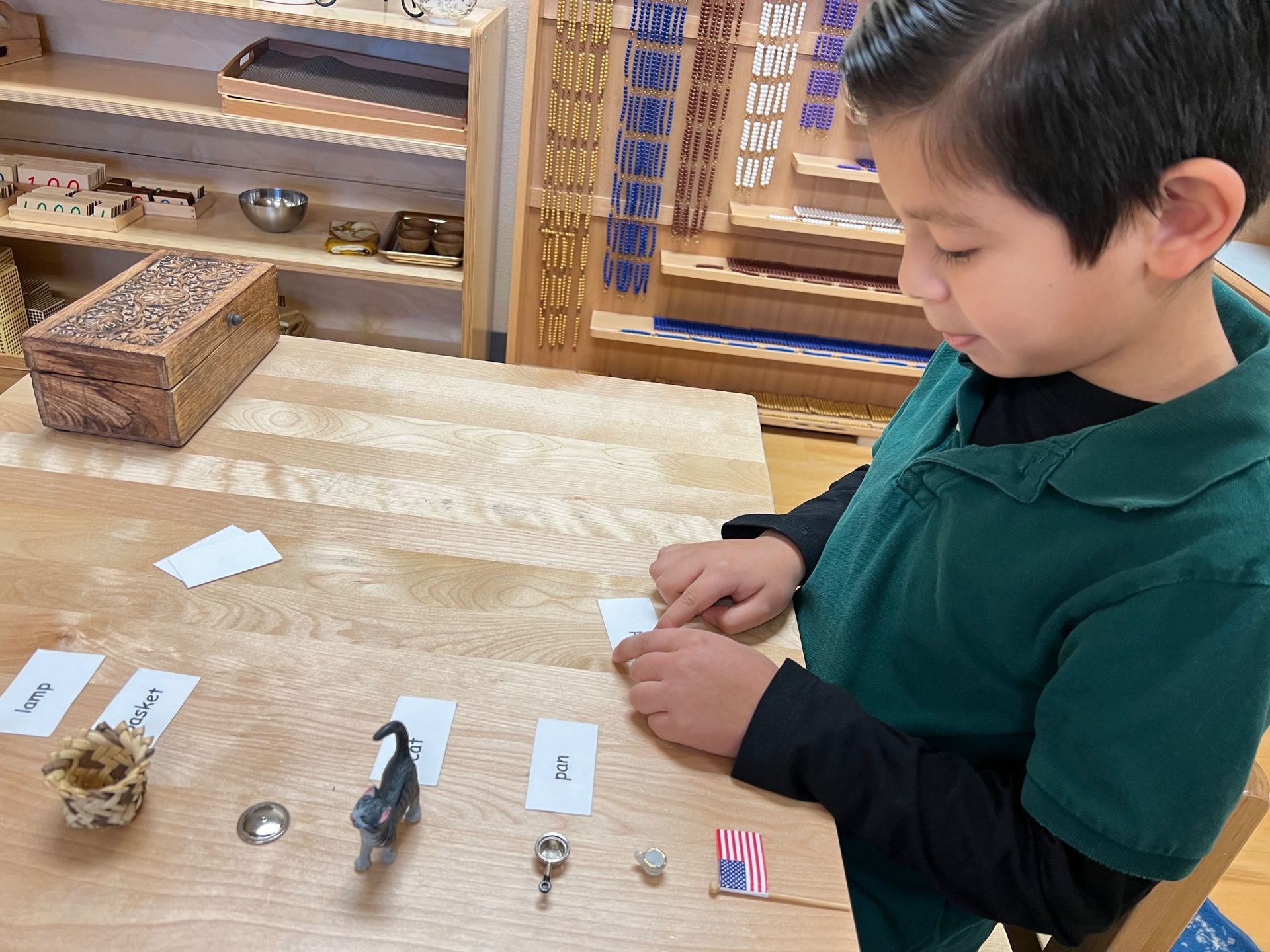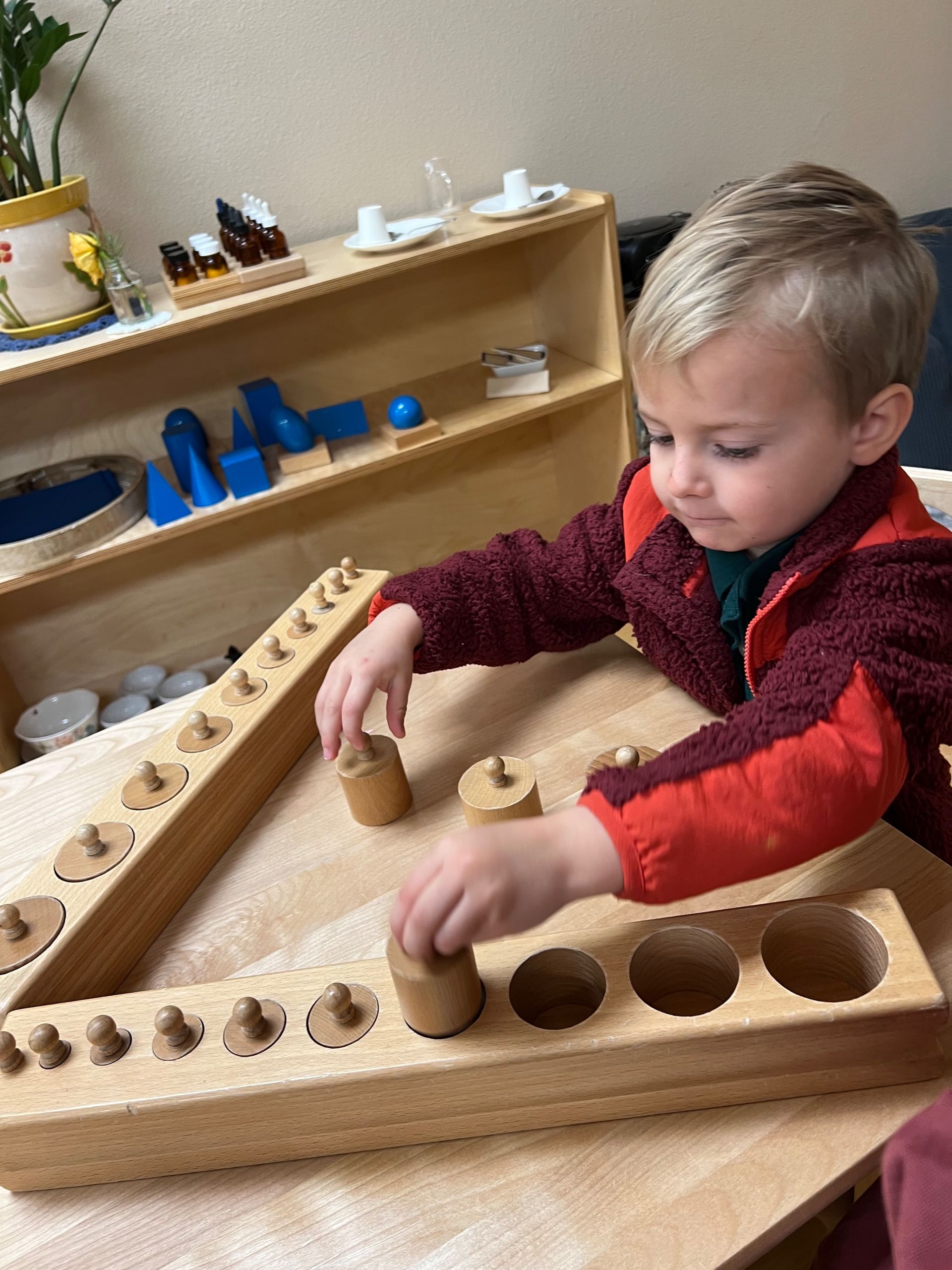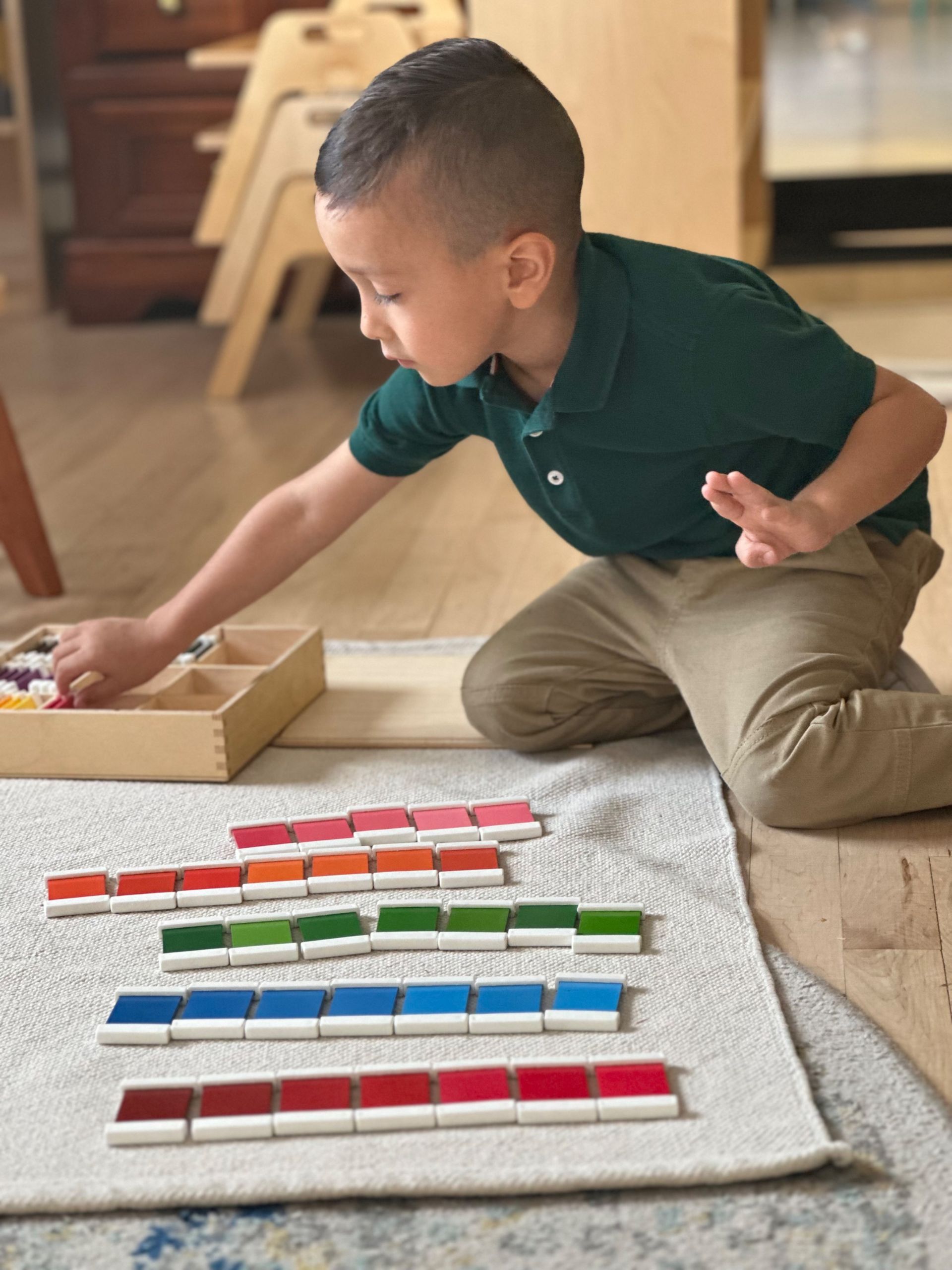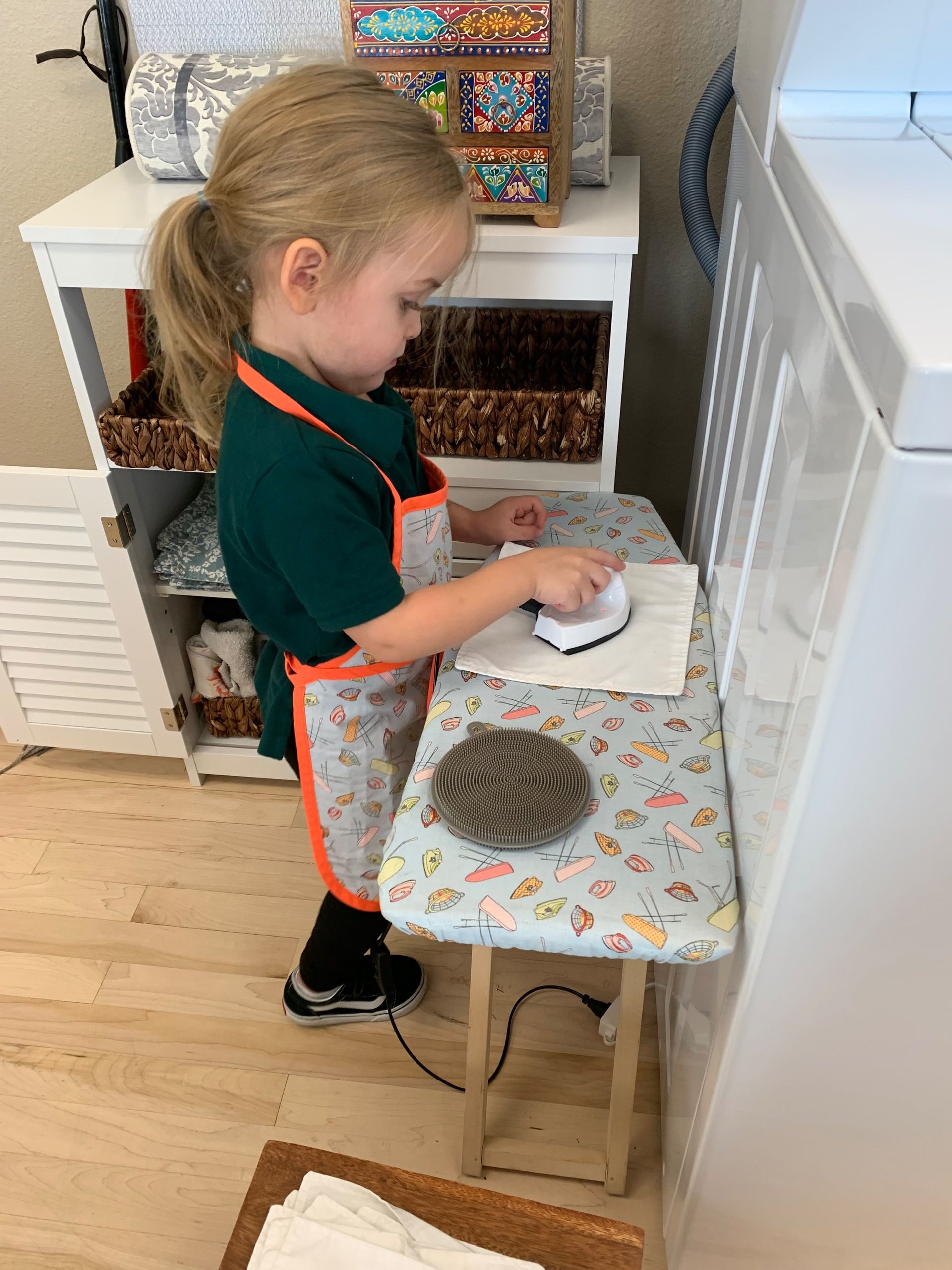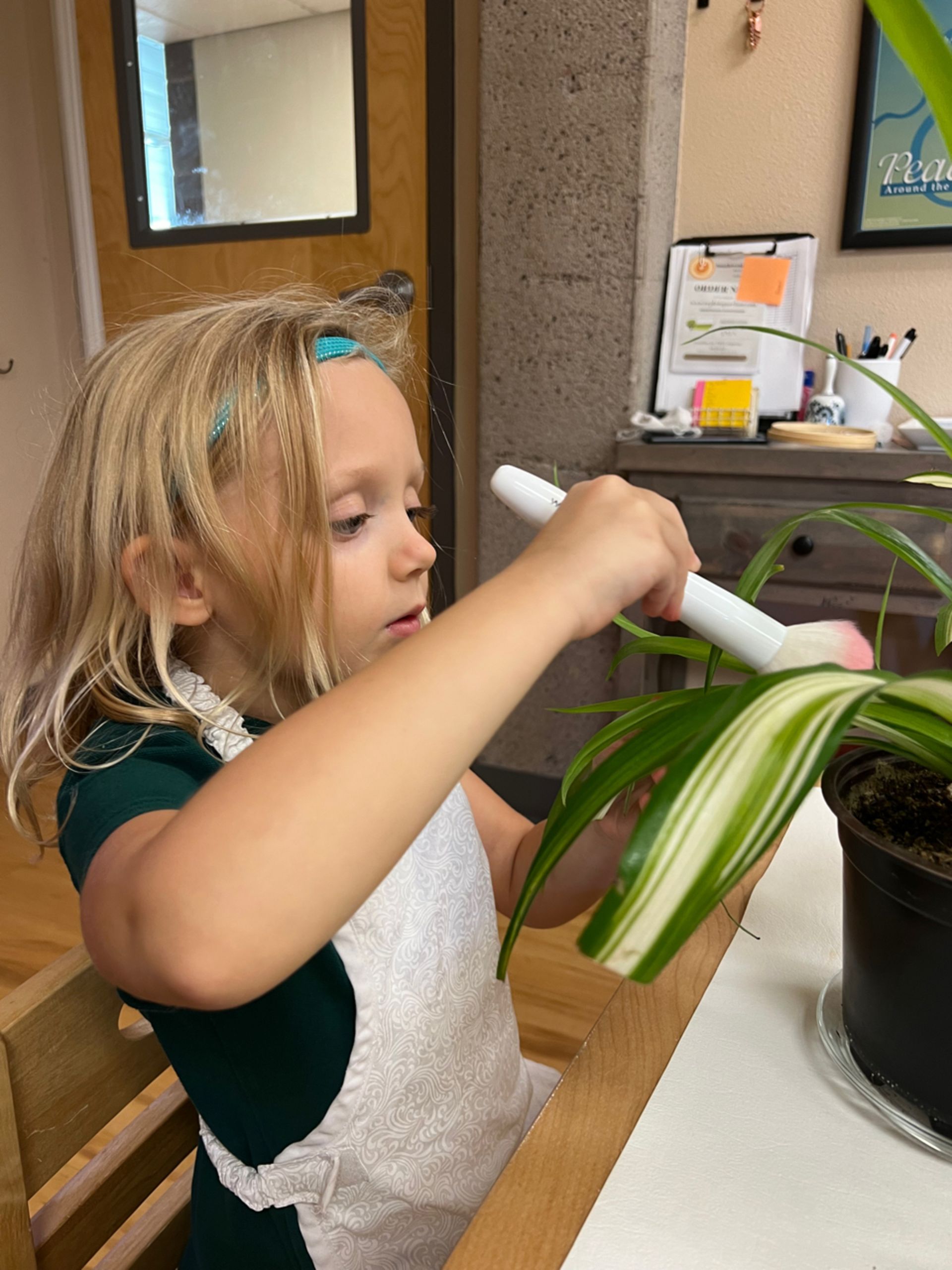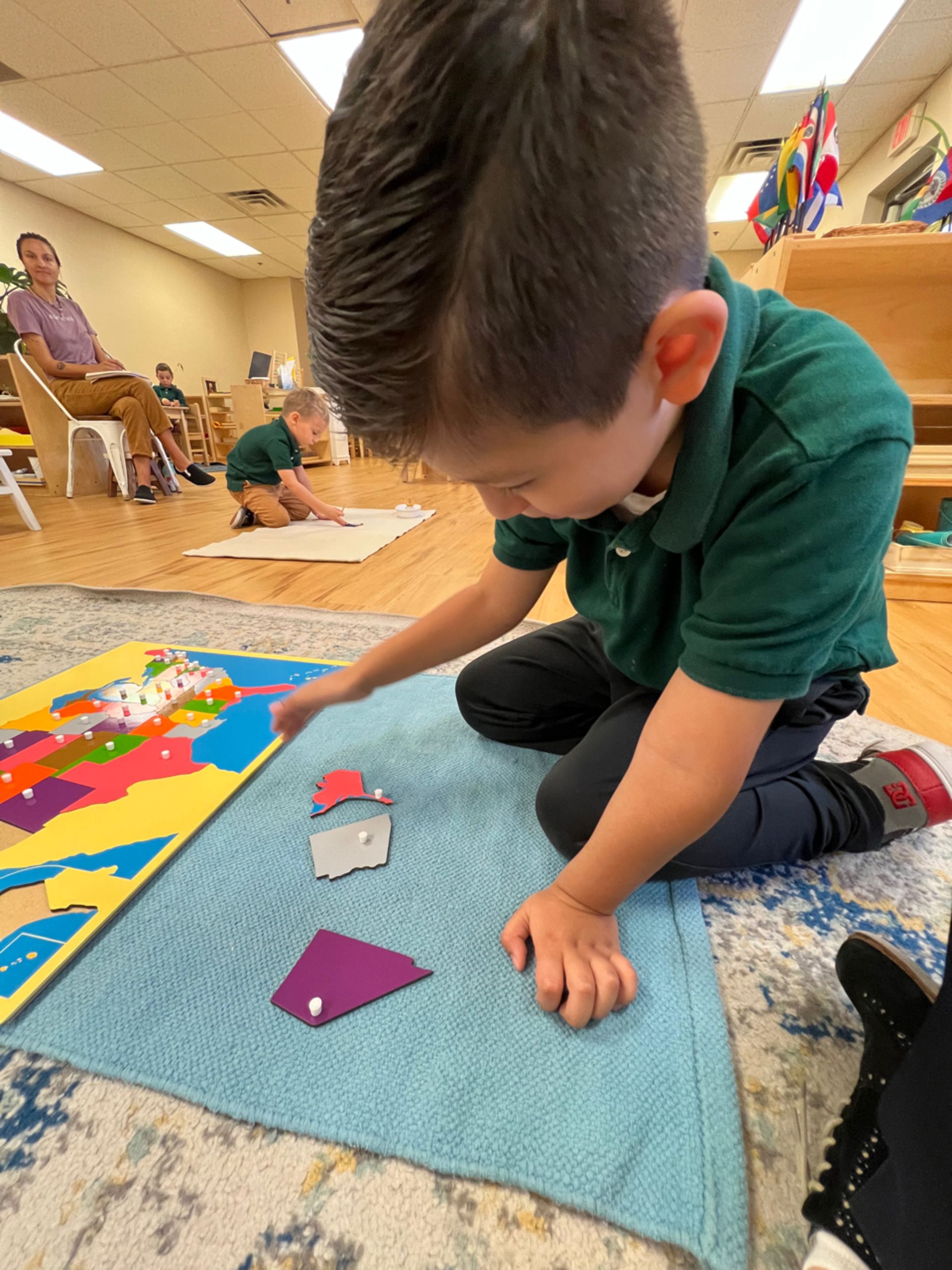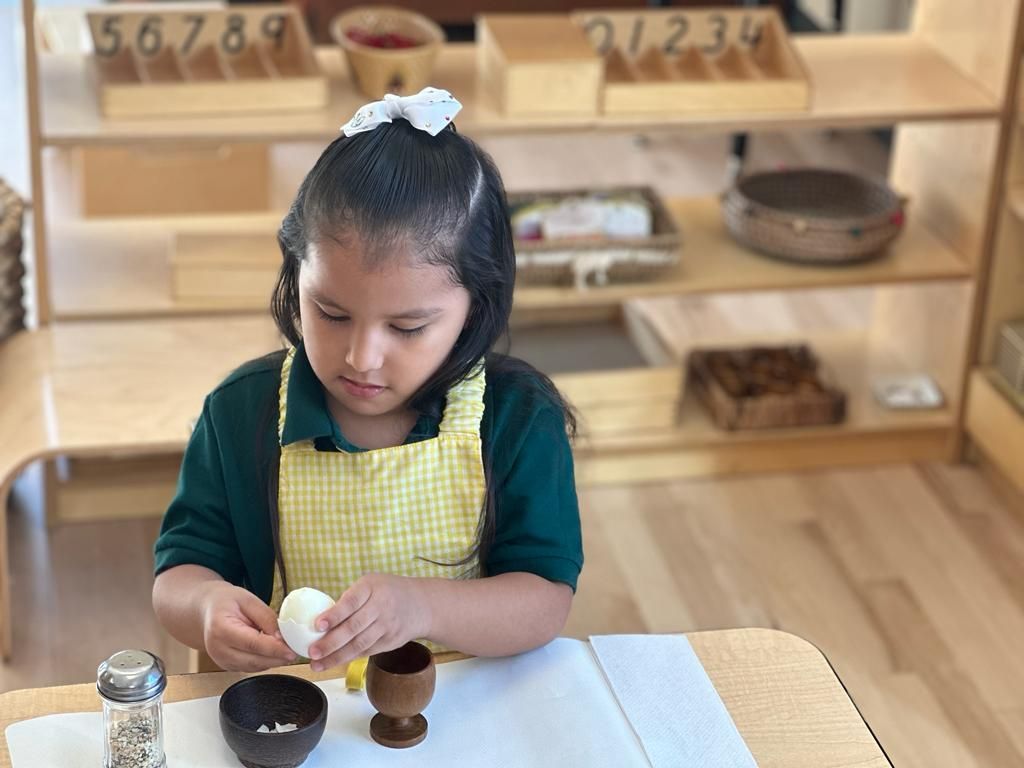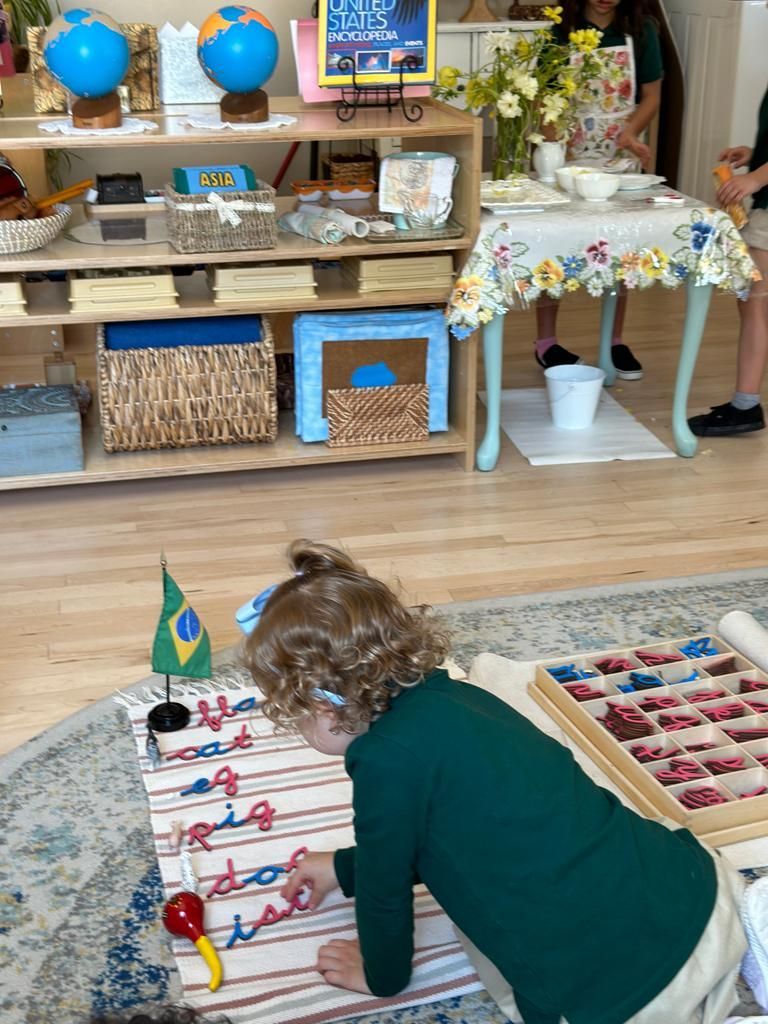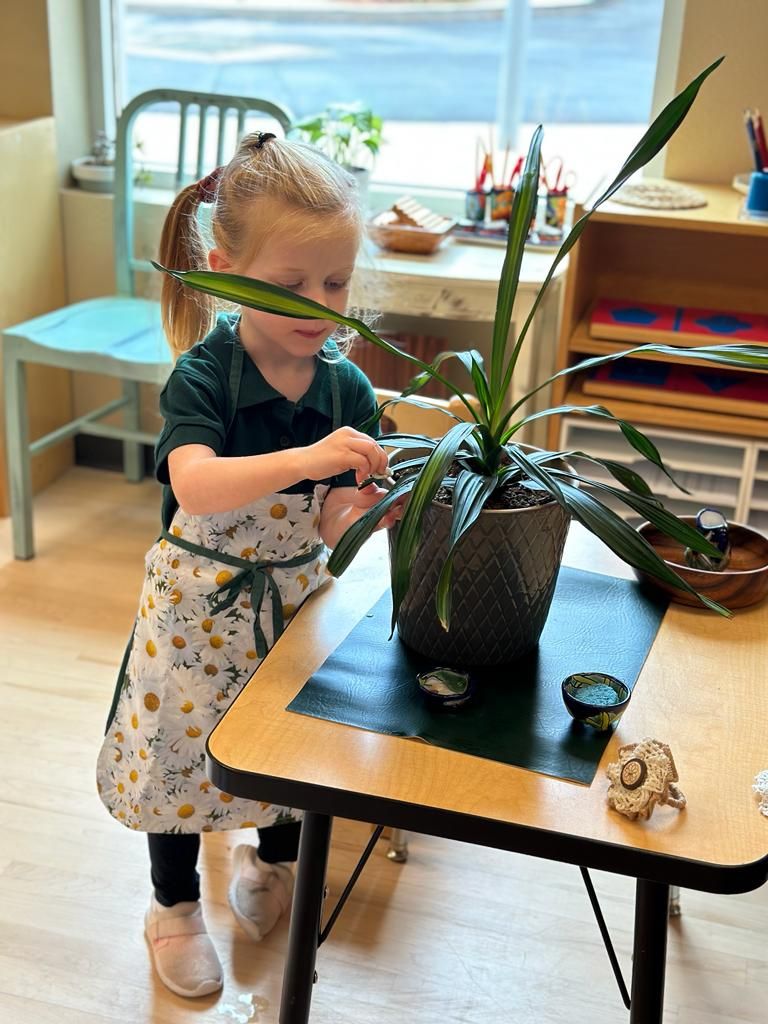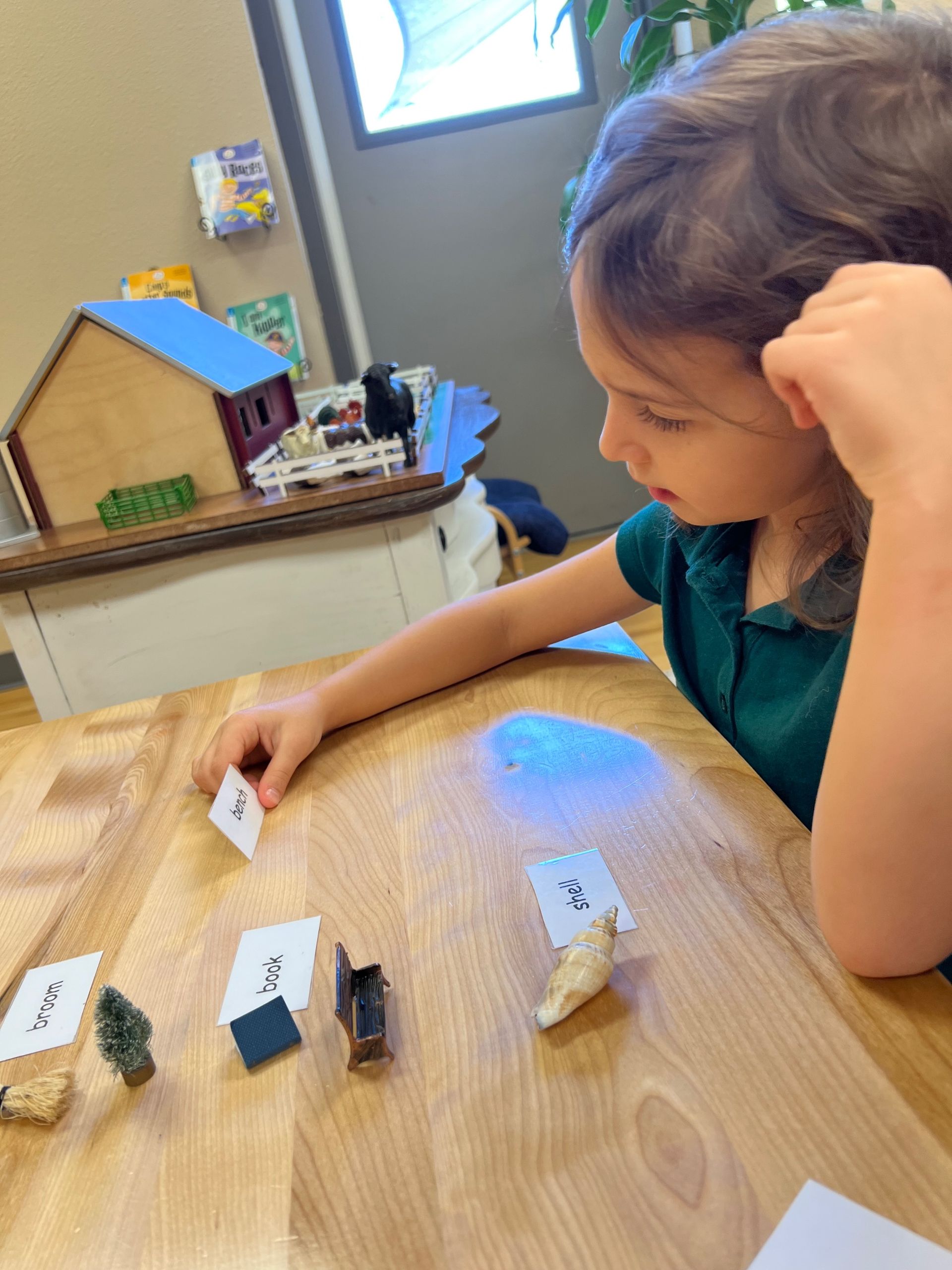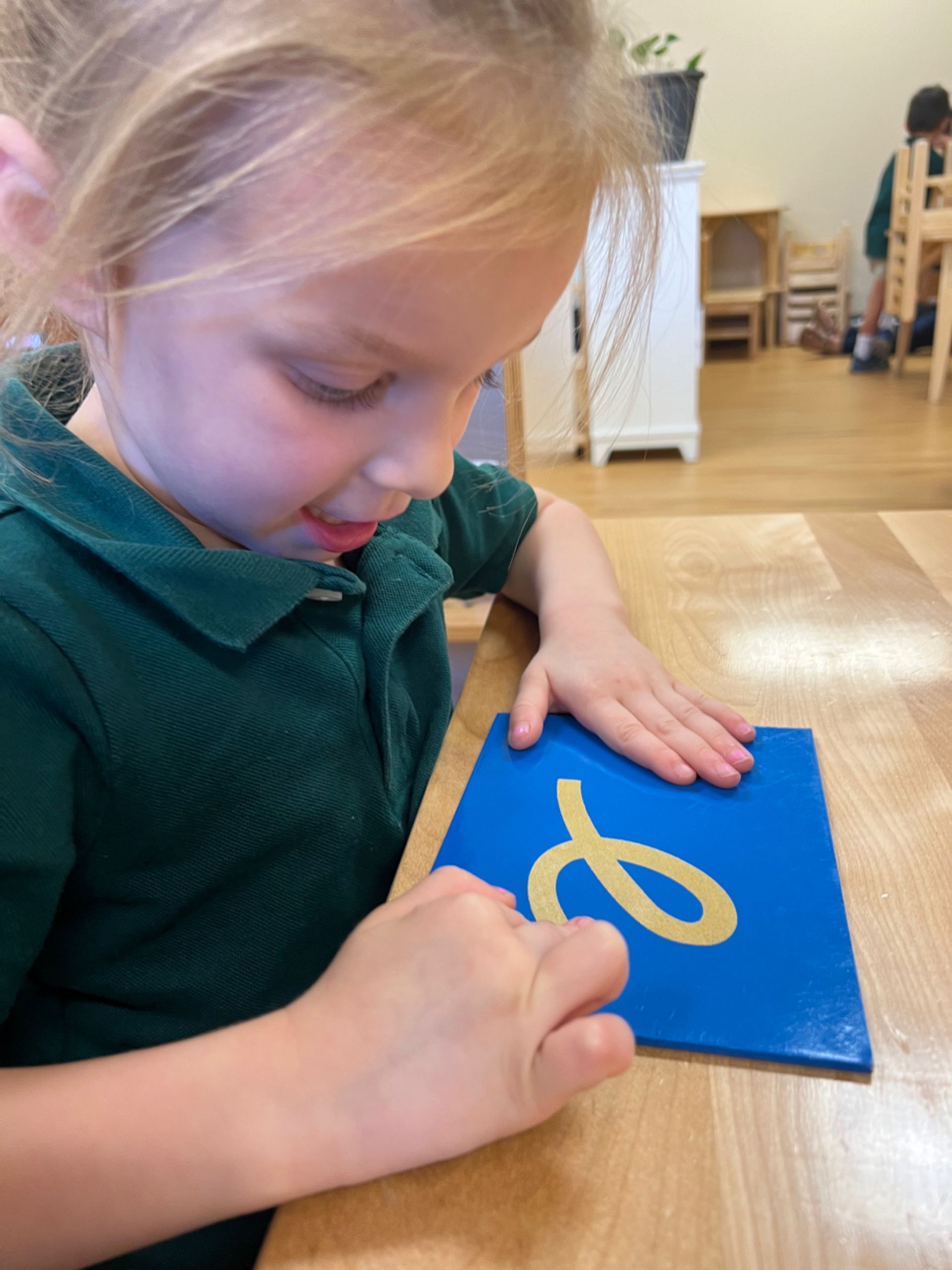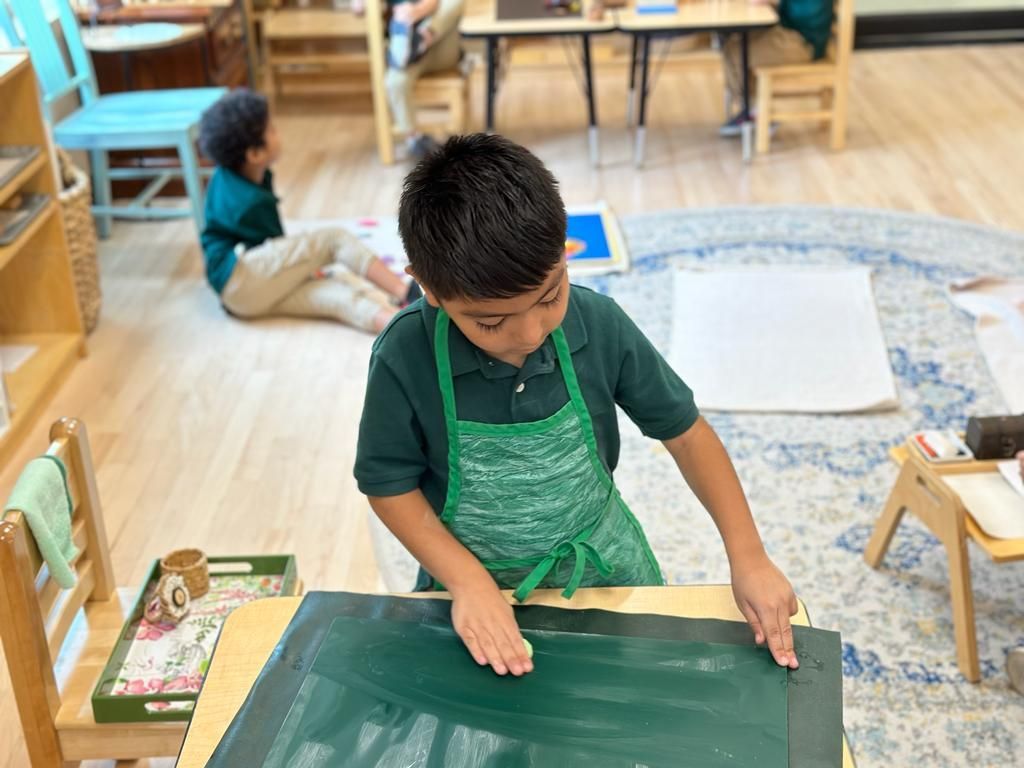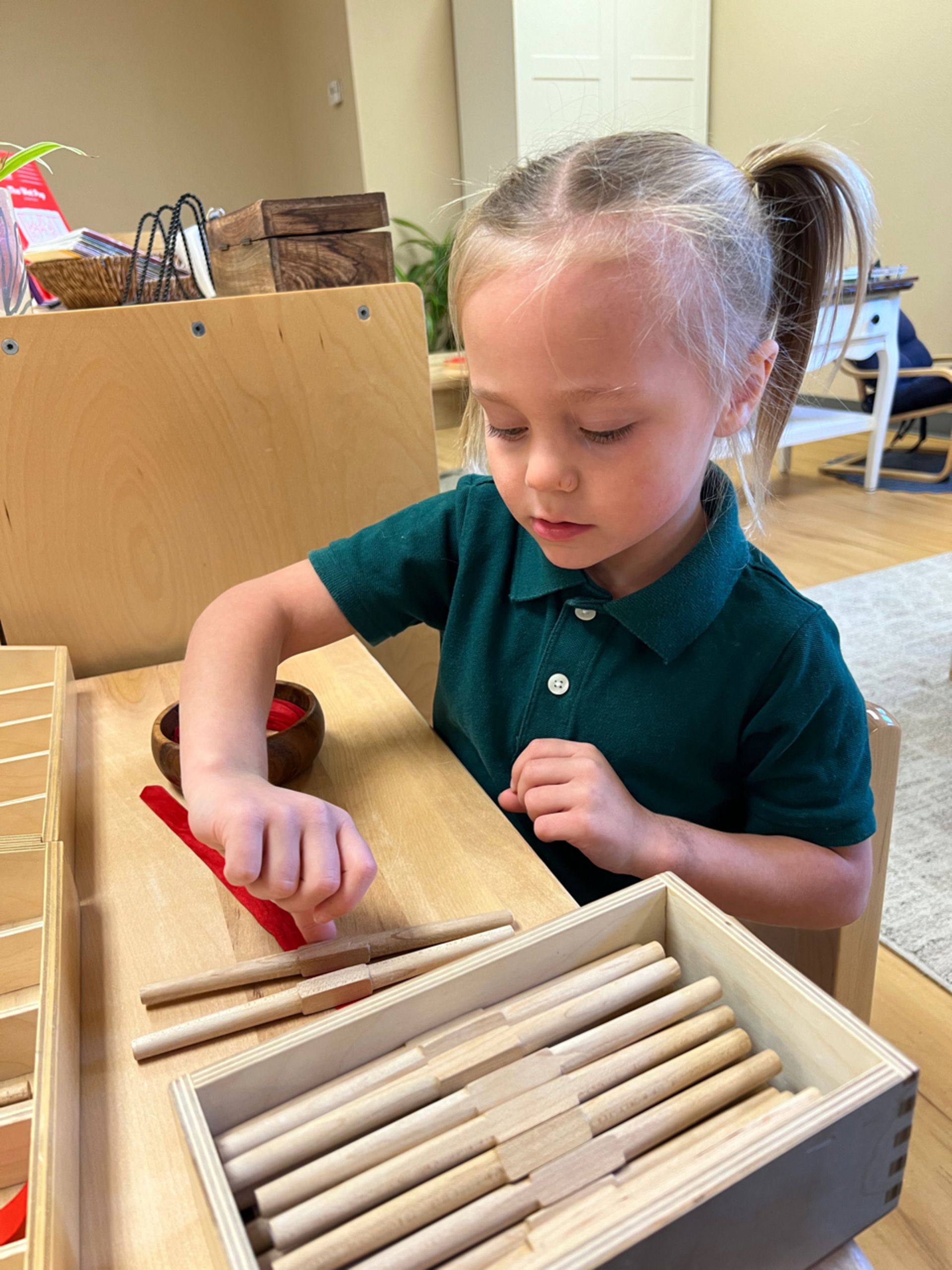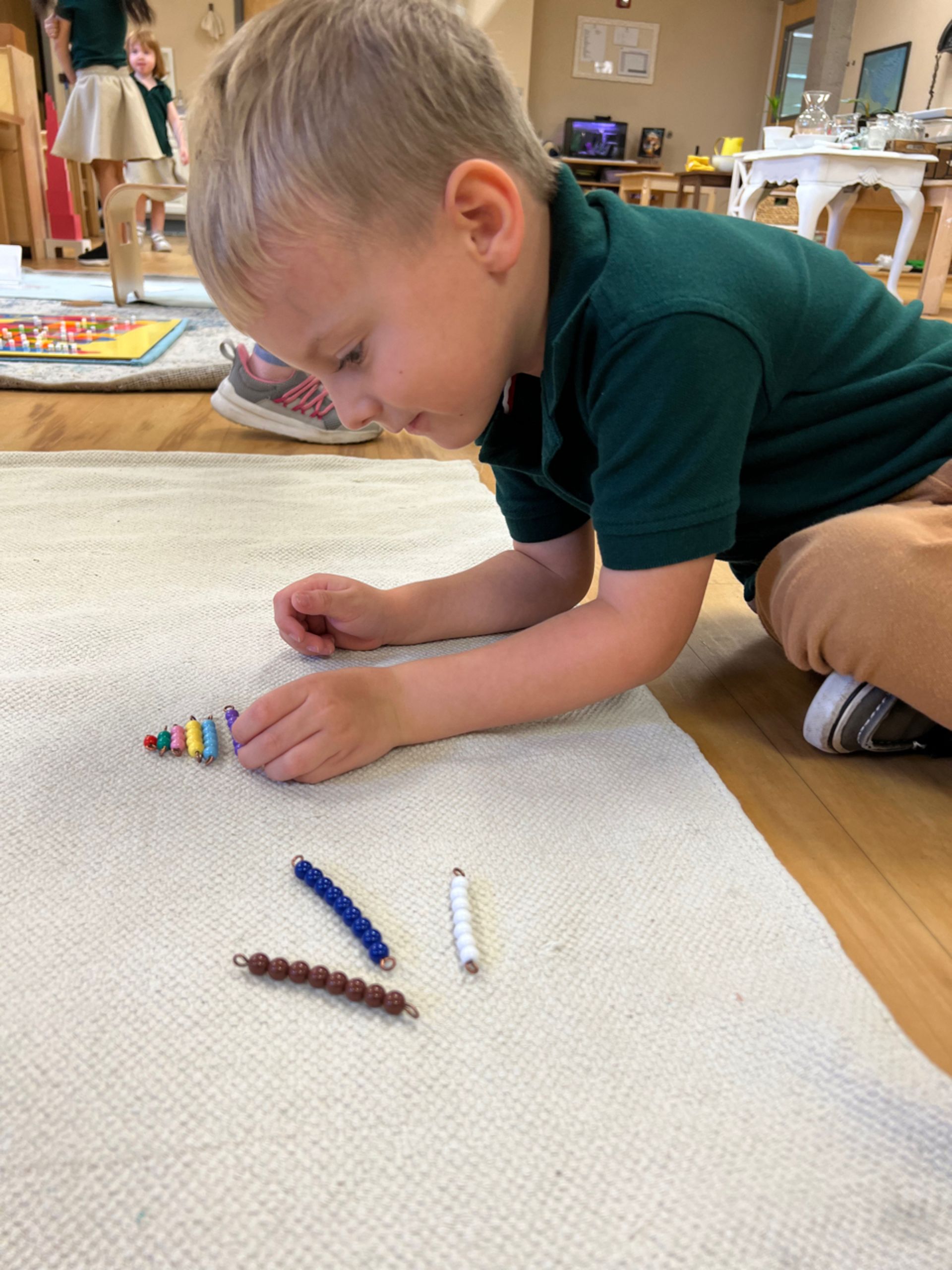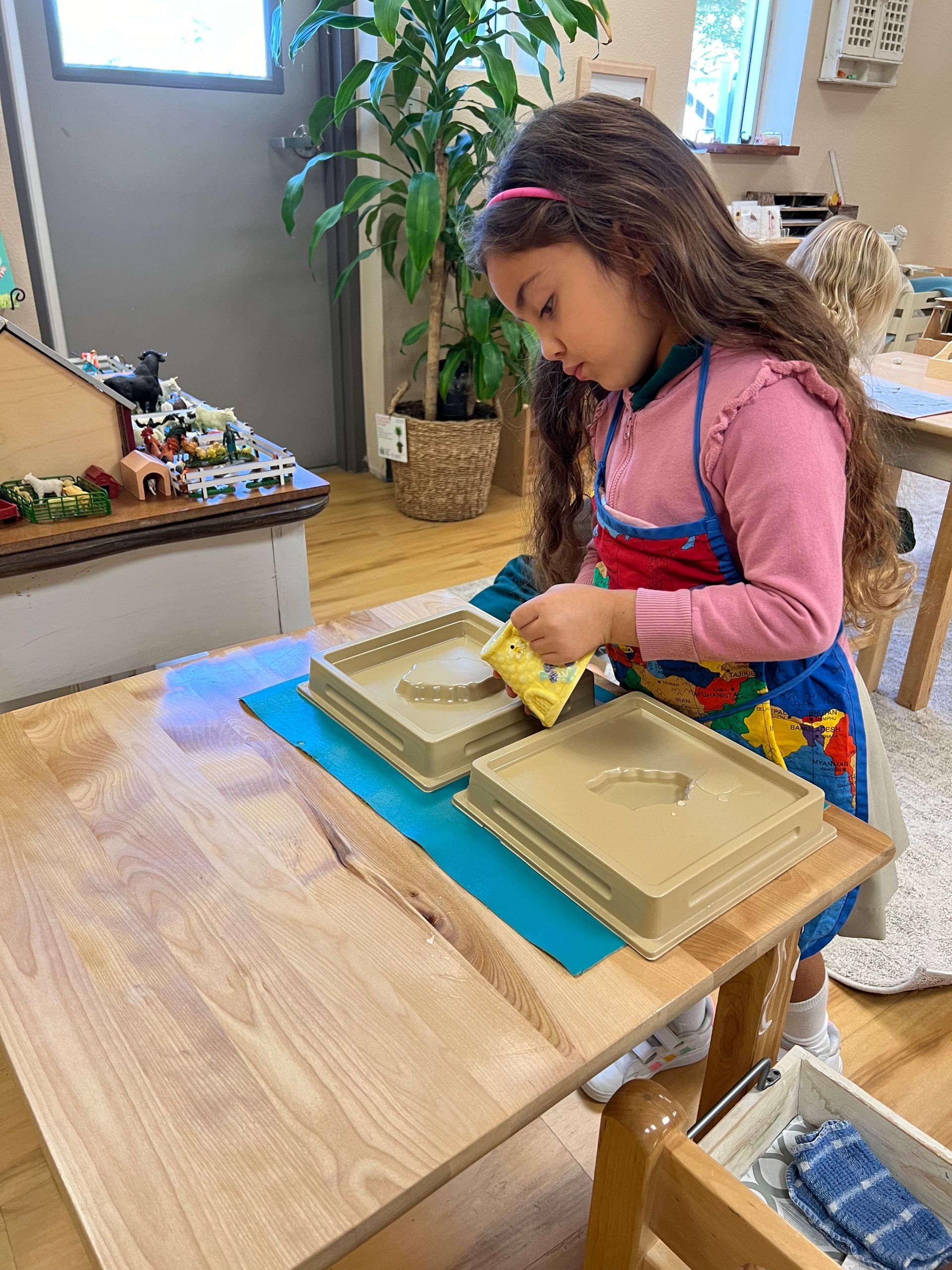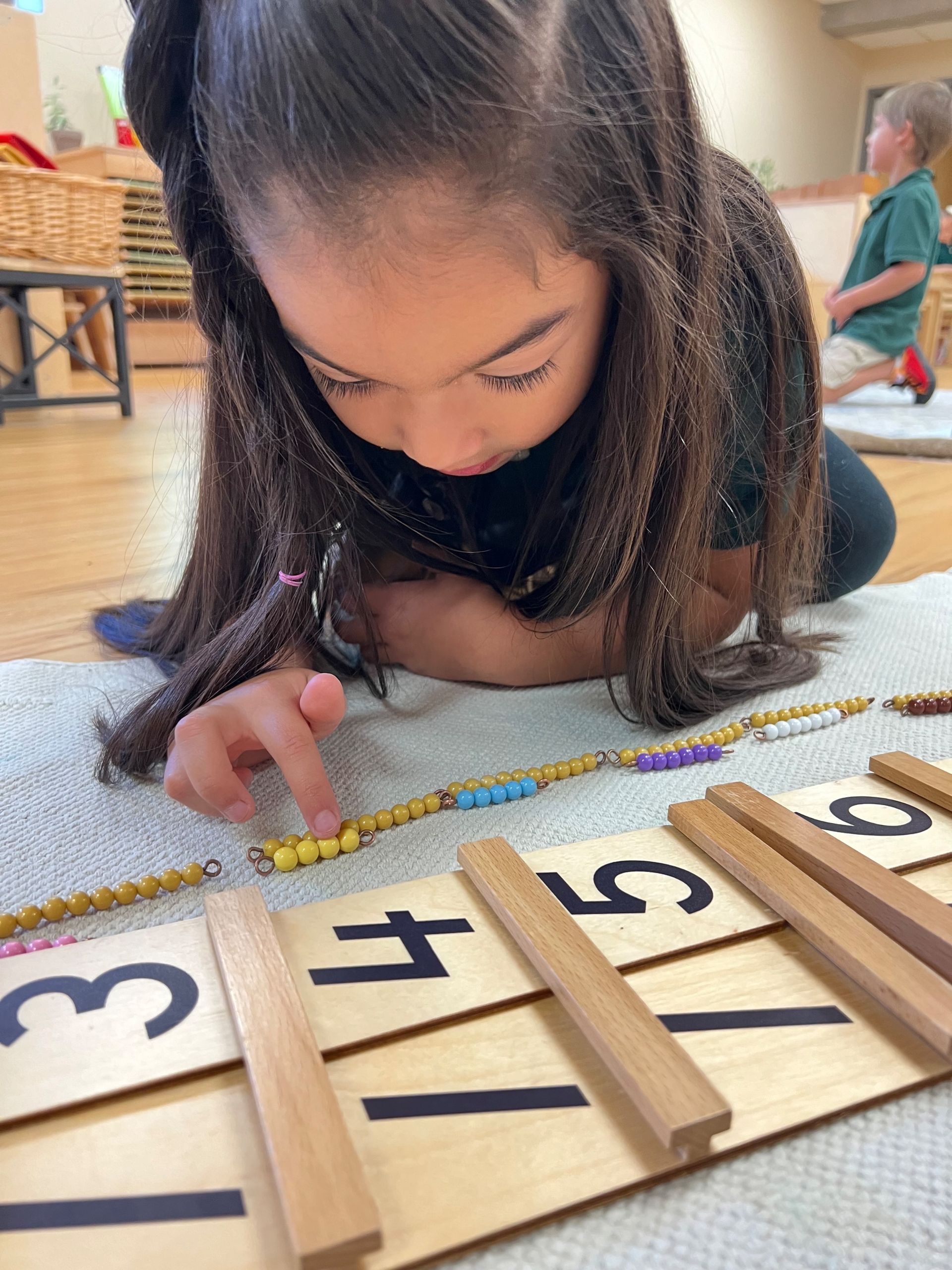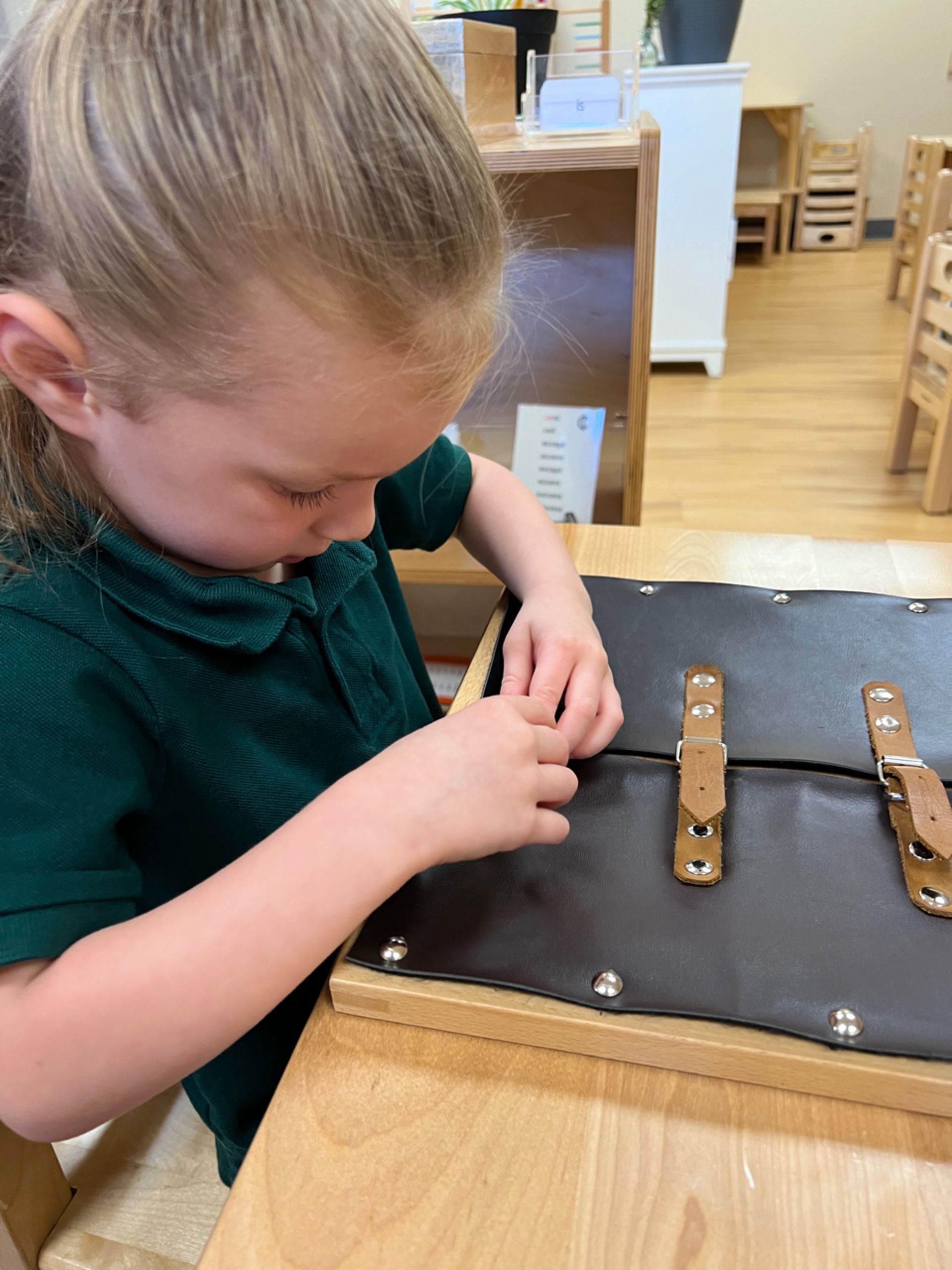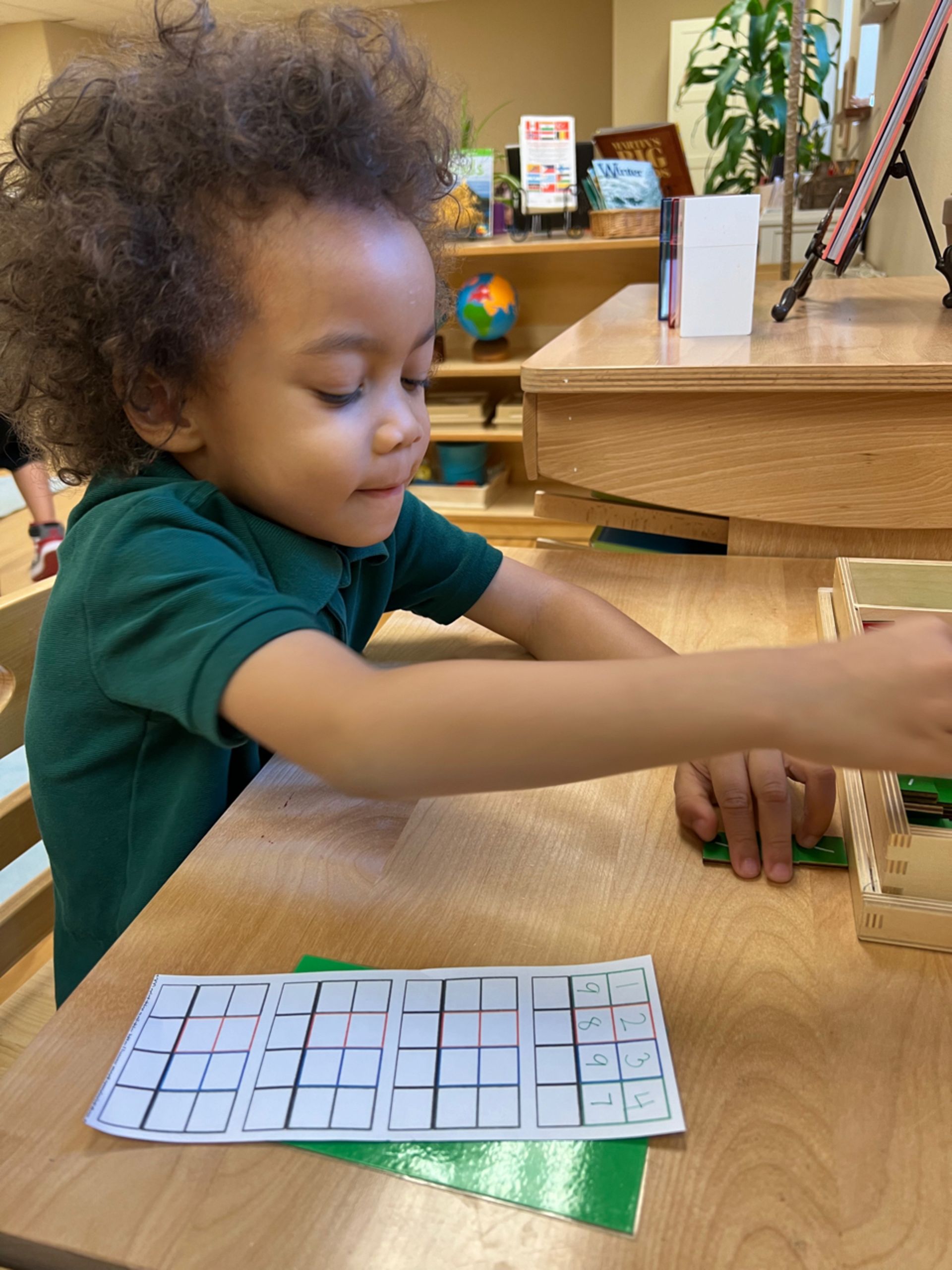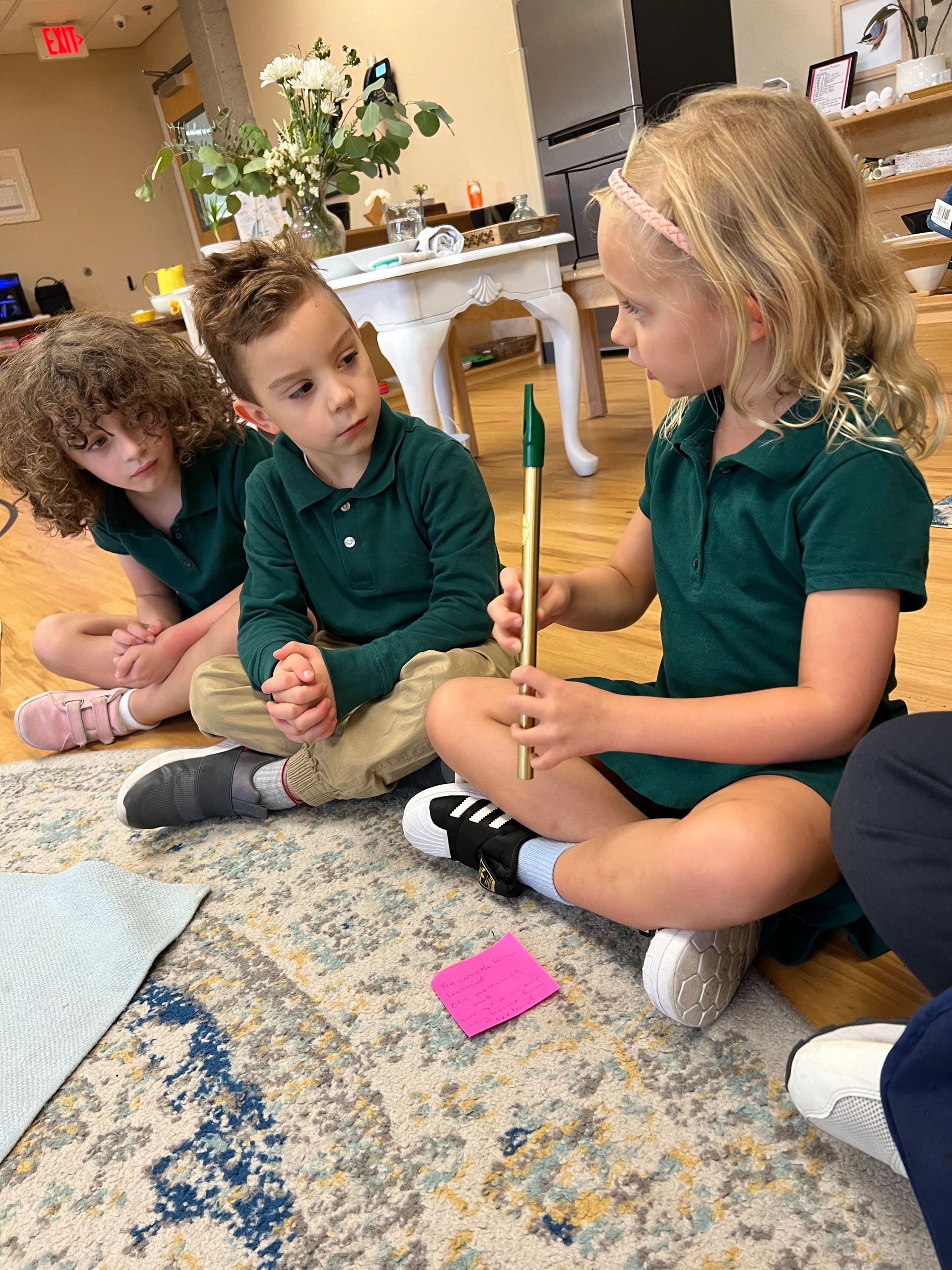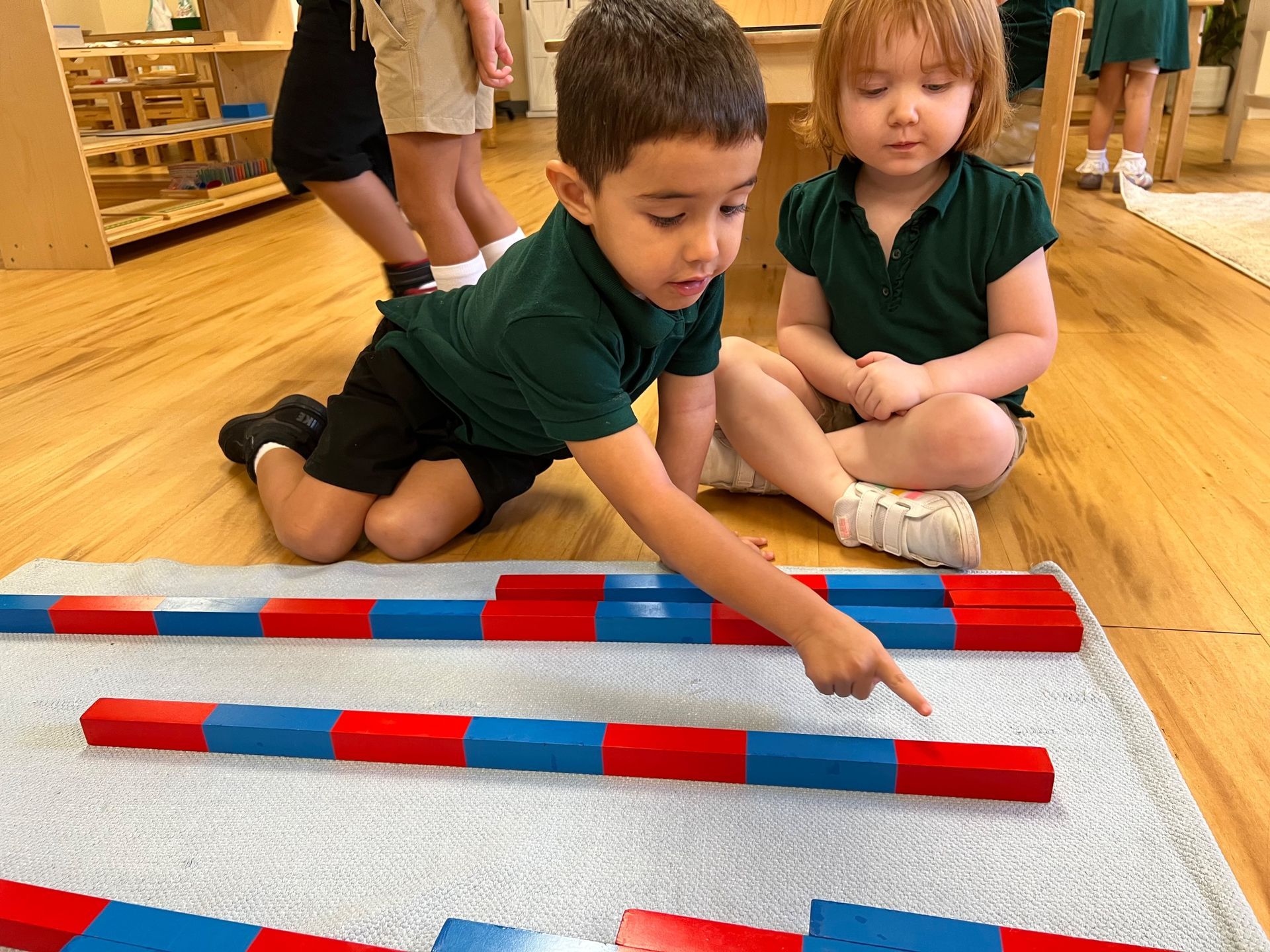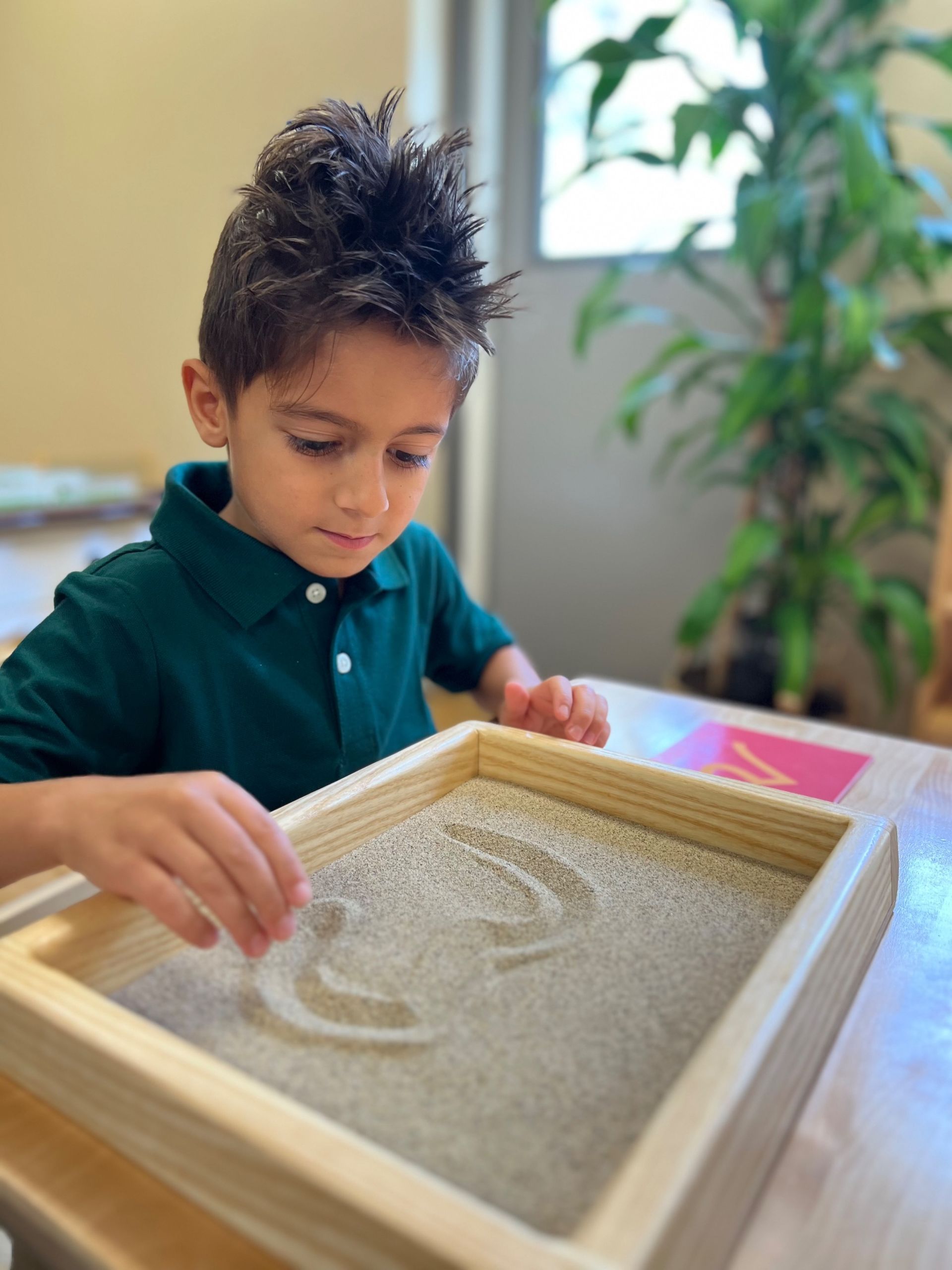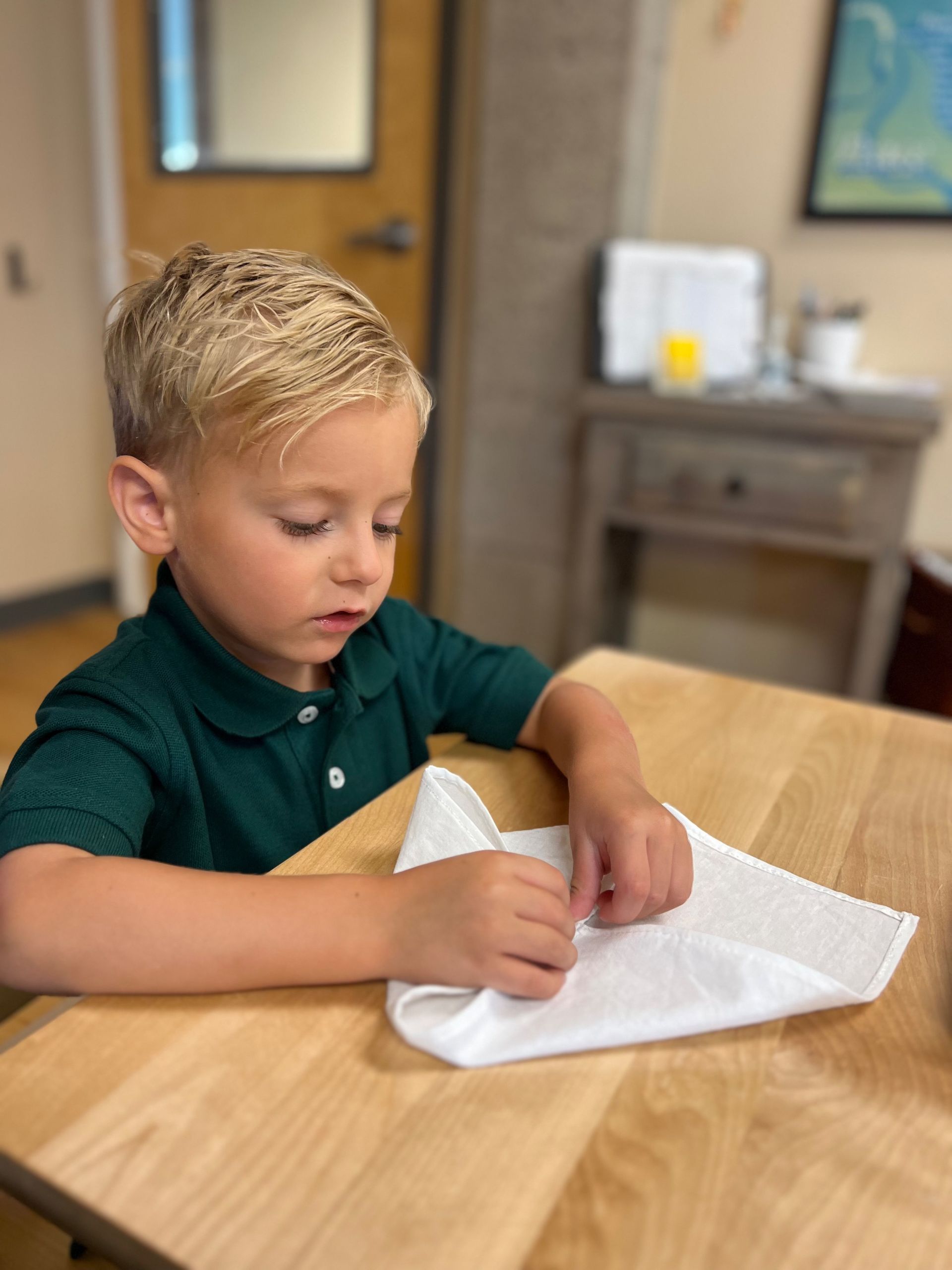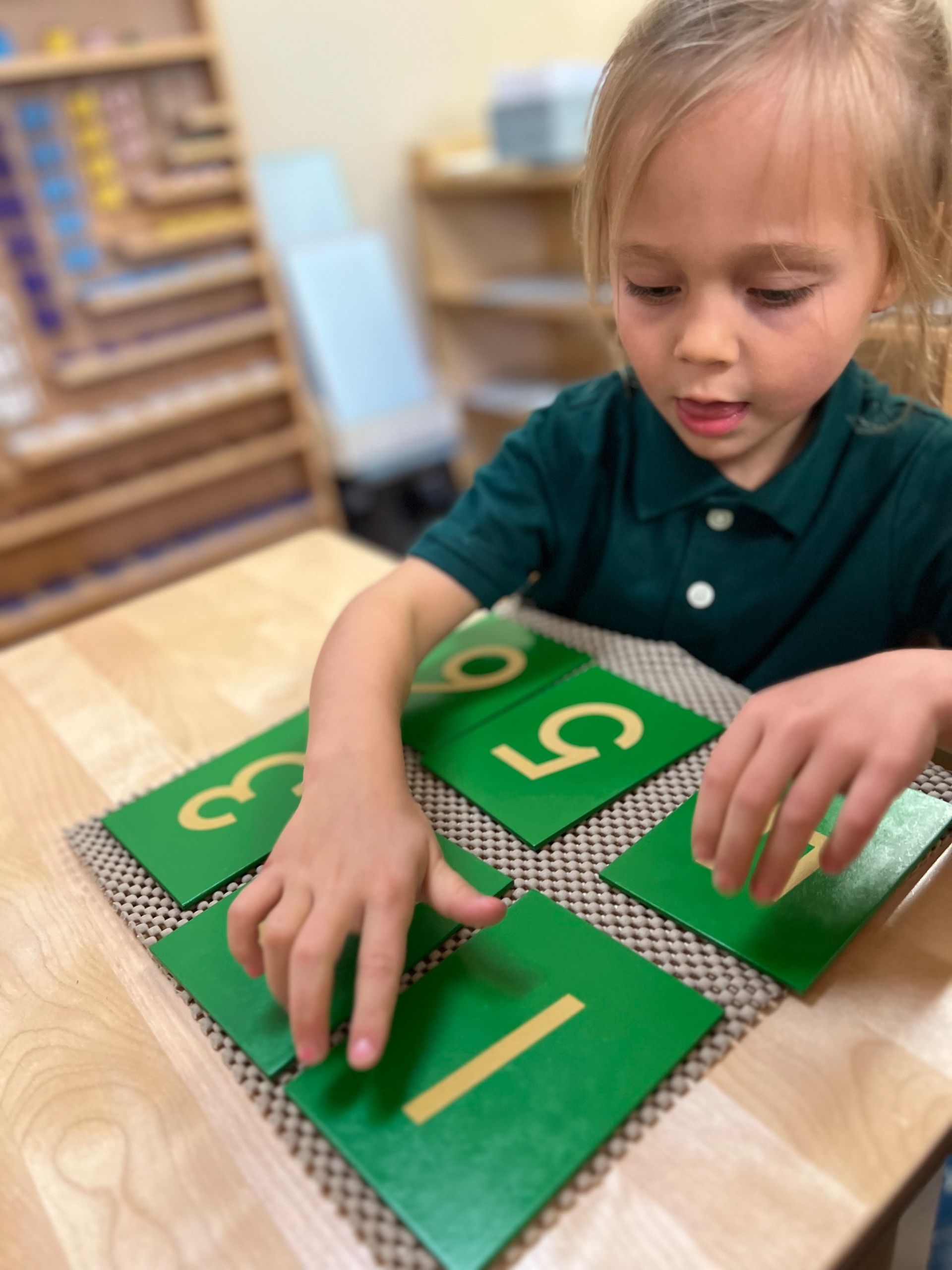PRIMARY ARTICLES
Published: April 2025
How to Set Healthy Boundaries while Building Respect
Setting healthy boundaries is essential for maintaining balanced relationships, fostering emotional well-being, and earning respect from others. Boundaries create a framework that protects our physical, emotional, and mental space. They are not about building walls but about defining where we end and others begin. As Maria Montessori wisely stated, “To let the child do as he likes when he has not yet developed any powers of control is to betray the idea of freedom.” This philosophy highlights the importance of teaching boundaries early, so individuals learn how to exercise freedom with responsibility and respect.
The Science Behind Boundaries and Respect
From a psychological standpoint, boundaries promote self-respect and emotional safety. Dr. Henry Cloud, a renowned psychologist, emphasizes that boundaries help individuals recognize where their responsibilities lie. This reduces feelings of resentment and promotes healthier interpersonal dynamics.
Neuroscience supports this concept as well. The prefrontal cortex, responsible for decision-making and impulse control, plays a critical role in setting and maintaining boundaries. When boundaries are respected, the brain experiences less stress and releases oxytocin, often called the “love hormone,” fostering trust and connection. Conversely, when boundaries are violated, the brain activates the amygdala, triggering a stress response that can lead to feelings of anxiety and mistrust.
Teaching Boundaries from an Early Age
Maria Montessori’s approach to education underscores the importance of guiding children toward independence while respecting limits. “The liberty of the child should have as its limit the collective interest,” she explained. In practical terms, this means allowing children the freedom to explore within a structured environment where boundaries are clear and consistent.
When children learn boundaries early, they develop a sense of security and autonomy. They begin to understand that respecting others’ limits is as important as having their own boundaries respected. This balance nurtures empathy and mutual respect, laying the foundation for healthy relationships in adulthood.
Practical Steps to Set Healthy Boundaries
1. Be Clear and Consistent
Boundaries should be clearly communicated and consistently enforced. Ambiguity often leads to confusion and misunderstandings.
2. Use “I” Statements
Expressing boundaries using “I” statements helps communicate your needs without sounding accusatory. For example, “I feel overwhelmed when I don’t have time for myself” sets a clear boundary while fostering open communication.
3. Model Healthy Boundaries
Children and adults alike learn by observing. Demonstrating respect for your own boundaries and those of others encourages those around you to do the same.
4. Teach Emotional Awareness
Helping children and adults identify their feelings and recognize discomfort when boundaries are crossed empowers them to take action and reinforce those limits.
5. Reinforce Positive Behavior
Acknowledge and validate when boundaries are respected. Positive reinforcement strengthens the likelihood of continued respectful behavior.
Boundaries Build Mutual Respect
Healthy boundaries not only protect our well-being but also cultivate an environment of mutual respect. They communicate to others that we value ourselves, which in turn encourages them to treat us with the same regard. When boundaries are established and honored, relationships flourish with trust and understanding.
Maria Montessori believed that “Discipline must come through liberty.” In the context of boundaries, this means that true freedom and respect emerge when individuals understand and accept the limits that safeguard emotional and psychological health. By setting and maintaining healthy boundaries, we empower ourselves and those around us to thrive in relationships built on trust, empathy, and respect.
By: Ely Gonzalez
Primary Lead Guide
Published: March 2025
Growing Together: Building a Strong Bond with Your Child
“The child is both a hope and a promise for mankind.” – Dr. Montessori
One of the most precious gifts in a parent’s life is their child. This deep, unconditional love often prompts us to reflect on whether we are showing up as the best versions of ourselves; both as parents and role models. With that in mind, here are a few key points to focus on that can help you build and strengthen a meaningful relationship with your child.
Growing Strong: Letting Little Hands Make Big Choices
From birth to around the age of six, a child has what Dr. Montessori referred to as the "Absorbent Mind," meaning they are soaking up information from the world around them like a sponge. During this time, they are learning about who they are, how to interact with others, and how to understand their emotions. A key element in Dr. Montessori's approach is helping a child to learn to do things by themselves, rather than doing it for them. We provide tools that can boost their independence by showing them how to do things with slow and controlled movements. When offering choices to children, it is important to provide a limited selection, which can help avoid overwhelming them while still promoting a sense of autonomy. For example, you might say, "Would you like to wear the yellow shirt or the blue one today?" By narrowing down the options, you give them the opportunity to make a decision while keeping things simple and manageable. This approach helps children feel empowered, as they are still making the choice. Limiting options not only makes it easier for them to choose but also reinforces their ability to feel in control of their actions.
“Home Sweet Home”
The place where children spend their time outside of school is also important for their learning, safety and growth. At school, we have what Dr. Montessori called, the prepared environment, which is carefully designed by the guide. At home, it is suggested that parents offer a well-organized, and peaceful space with age-appropriate toys, child proof furniture and lots of opportunities for independence aligning with the school principles. This encourages children to explore and engage on their own when parents are busy. Things that you can provide at home to support their independence are lower racks for clothes and shoe where they can access their belongings and dress up by themselves. Easily accessible snacks, water and entertainment. A prepared environment at home help builds confidence and reduces frustration, as children can access what they need and do things independently and not be relying on the caregivers and parents. A loving and caring home is also essential for a healthy relationship among every member of the family. You can show affection, celebrate your child’s successes, further discuss their failure, which is also an important valuable experience, since we all learn often from mistakes; and offer a helping hand and comfort when needed. Supporting their emotions and growth in a loving way also builds a strong emotional connection with children.
Be the Mirror: Reflecting the Best in your Child
Once again, children are absorbing everything around them. Children learn by watching adults and imitating their actions and words. Even when we think that they are not watching, chances are that they are learning from us. It is important to show compassion, kindness, patience, and respect in your own actions. Encourage your child to use polite words, share, and take turns. What is a norm for you to say at home, it will be a norm for them outside as well. Let them practice their social skills and sometimes is helpful for you to step back to observe and allow them to solve problems on their own. This helps them learn how to interact with others in a positive way. If a child sees you speaking kindly, taking interest on others and solving a problem with grace, they are more likely to mimic these behaviors. The same goes for the opposite. Good communication is the key to a strong relationship not only among adults, but also between children. It is important to listen to your child and let them express their thoughts and feelings. Give them time to process what they want to say and validate their feelings. This helps them feel understood and safe to share their thoughts and ideas, which strengthens the bond of trust between you. Ultimately, our children are watching and learning from us all of the time. By consciously choosing to be the best version of ourselves, we can be an impactful role model to our children. By being mindful of our actions, you help shape your child's values and behaviors in a positive and meaningful way. It is not just about telling them what is right or wrong, but about showing them based on your actions.
The Stronger the Boundaries, the Stronger the Bond
While independence is important, it is also essential to set clear and consistent boundaries. Children need to know what is expected of them to feel secure. Setting gentle but firm rules and sticking to them helps create a sense of safety and stability. Setting boundaries with consistency shows your child that you are reliable and committed to their well-being. When combined with love and understanding, this consistency strengthens the parent-child relationship. When adults offer firm boundaries, it does not mean being rigid, old school or a controlling parent. Instead mean having clear and non- negotiable rules that promote respect, safety and responsibility. When you set these boundaries, you are teaching your child that there are limits in life and that respecting them helps everyone live harmoniously. Instead of fearing the children resenting you, clear boundaries will help them to respect and love you even more. Children have a need for boundaries because they create a sense of control over the world around them. They may test those boundaries at times, but at the end, they value the stability that come with them. No need to worry about losing their love! As an example of setting a boundary you may say “I understand you are upset about the tablet time being over, but the rule is no more than 30 minutes. Let’s find something else fun to do together!” Another example about a boundary that can help to build respect is “I know that you are frustrated because you wanted to play with the car right now, but your friend had it first. It is important to be respectful to our friends. If you feel angry or frustrated, you can tell him or me how you feel instead of hitting."
Cuddles, Conversations, and Calm: Creating a Space for Big Feelings
Children between 3 and 6 are learning how to manage their emotions. When big feelings or conflicts arise, it is important to acknowledge and explore those feelings instead of dismissing them. Ask open-ended questions like, “Did you like what just happened?” “How did that make you feel?” “What can you say to your friend?” or “What can you do next time?” These validations and open-ended questions help children develop emotionally and learn self- regulation. It also helps them with problem- solving skills, self- awareness and teaches them how to express their feelings in a healthy way.
By focusing on these points, you will help create a healthy relationship with your child while also supporting their emotional and social development. Encouraging independence, setting clear boundaries, and showing love and kindness and compassion will lay the foundation for a positive and lasting relationship, not only in between you and your child, but among everyone that touches their lives.
"To be in your children's memories tomorrow, you have to be in their lives today." – Barbara Johnson
Published: February 2025
Emotional development
Let's Talk About Little Feelings: Helping Kids Grow Up Happy and Balanced (Ages 3-6)
Imagine those little humans, between 3 and 6, going through a whirlwind of feelings! It's like they're discovering a whole new world inside themselves. They're learning what happiness, sadness, frustration, and everything in between feels like. And, wow, it's a big job!
Think about it: they're figuring out how to tell you they're upset without throwing a full-blown tantrum (most of the time!). They're starting to understand that other kids have feelings too, which is a huge step. As Maria Montessori put it, when kids are really focused, they're truly happy. And you know what? Being able to handle their emotions helps them focus better, so it all ties together!
Why This Age Is So Important
These years are like a construction zone for their brains. They're building the parts that help them control their impulses and make good choices. Remember when Jean Piaget said education should help kids "do new things"? Well, learning to handle emotions is a big part of that!
Now, here's where the brain science comes in: the part of their brain that helps them stay calm and think things through is still under construction. So, when they get upset, their "emotional brain" takes over. It's like they're driving without a fully developed steering wheel. Dr. Daniel Siegel explains this really well – it's why they can't always think logically when they're overwhelmed.
And let's be real, little kids have a hard time waiting! Dr. Daniel Goleman reminds us that being able to hold back a little, to delay that "I want it NOW!" feeling, is key to success in life. So, how can we help them build that self-control?
How We Can Help Them Shine
As parents and caregivers, we're like their emotional coaches. Here are some simple ways to support them:
* Be a Calm Mirror: Kids watch us all the time. If we stay calm when things get tough, they'll learn to do the same. It's like Montessori said, give them something great to copy! And science backs this up – their brains have "mirror neurons" that help them learn by watching us.
* Listen and Understand: When they're upset, don't just brush it off. Say things like, "I see you're feeling sad. Tell me about it." Dr. Bruce Perry says that when kids feel heard, their stress melts away, and they can learn and grow.
* Be a Problem-Solving Partner: Instead of fixing everything for them, guide them to find their own solutions. Montessori told us to let kids try things on their own. This helps them build confidence and learn to handle challenges. Plus, it actually strengthens their brains!
* Create a Safe and Predictable World: Kids thrive on routine. It makes them feel secure. As Rudolf Dreikurs pointed out, kids need encouragement like plants need water. When things are predictable, they can focus on learning and growing. And from a brain perspective, routines build strong habits.
Setting Loving Limits
Kids need boundaries. It's like giving them a safe container to explore their feelings in. Janet Lansbury says boundaries are a way of showing love.
Here's how to make limits work:
* Be Kind, But Firm: Say what you mean, and follow through.
* Talk Positive: "We walk inside" sounds better than "Don't run!"
* Give Choices: "Do you want to put your shoes on by yourself, or with a little help?"
* Be Consistent: Kids feel safe when they know what to expect.
The science shows that when things are predictable, kids feel less anxious.
Helping kids with their emotions takes time and patience. But it's so worth it. By being there for them, we're giving them the tools they need to be happy, confident, and kind. As Montessori said, we're giving them "the roots of responsibility and the wings of independence." And that's the best gift we can give.
By: Ely Gonzalez
Primary Lead Guide
Published: January 2025
Children's Development in Primary
How is your child’s development in primary
Imagine watching your child transform from a curious toddler to a budding scholar!
Between the ages of 3 and 6, it's like watching a rocket ship launch – rapid growth in every direction!"
Age 3: The Year of Discovery
At three years old, children are driven by an innate curiosity and an eagerness to explore their surroundings. Maria Montessori described this stage as the period of the “absorbent mind,” during which children effortlessly take in information from their environment. Psychologists emphasize the importance of fostering secure attachments and providing predictable routines to create a sense of safety that supports exploration.
Neuroscience reveals that the brain is highly plastic at this stage, meaning it is primed to form new neural connections. This plasticity is evident in the way children develop foundational skills, such as language acquisition, fine motor control, and basic problem-solving abilities. Montessori environments cater to these needs by offering materials that promote hands-on learning, such as puzzles, practical life exercises, and sensorial activities.
Emotionally, three-year-olds are beginning to understand and express their feelings. While they may struggle with emotional regulation, consistent modeling of empathy and patience helps them build resilience and self-awareness.
Age 4: The Year of Experimentation
By the age of four, children often exhibit increased independence and confidence. They are natural experimenters, testing boundaries and seeking to understand cause-and-effect relationships. Montessori philosophy encourages this sense of agency by offering child-sized tools and self-correcting materials that allow for independent exploration.
From a neurological perspective, the prefrontal cortex, responsible for executive functions like planning and self-control, is still in early development. This explains why four-year-olds may display impulsivity or difficulty managing frustration. Positive reinforcement and scaffolding—a psychological approach where adults provide just enough support to help children succeed—are effective strategies during this time.
Socially, four-year-olds begin to develop a greater awareness of others, leading to more complex interactions with peers. This is a prime opportunity to introduce collaborative activities that teach sharing, turn-taking, and conflict resolution, all of which are cornerstones of Montessori education.
Age 5: The Year of Refinement
At five, children often show a deepened focus and an ability to engage in more complex tasks. This is a time of refinement, where earlier skills are honed, and new ones are mastered. Montessori materials, such as the movable alphabet and golden beads, align with this developmental stage by introducing concepts like early writing, reading, and arithmetic in an engaging and tactile manner.
Neuroscience highlights the growth of myelination, a process that enhances the speed and efficiency of neural communication. This allows five-year-olds to think more critically and solve problems with greater sophistication. Psychologists note that this is also when children begin to internalize societal norms and values, making it an ideal time to instill principles like kindness, respect, and responsibility.
Emotionally, five-year-olds are better equipped to manage their feelings, though they still benefit from clear guidance and reassurance. Their growing ability to empathize enables them to build deeper friendships and navigate social dynamics with increasing competence.
Age 6: The Year of Transition
By six, children are on the cusp of a major developmental shift. Montessori refers to this stage as the end of the “first plane of development,” a period marked by the child’s growing ability to think abstractly and reason logically. Six-year-olds often show an intense curiosity about the world, asking “why” questions and seeking to understand the connections between ideas.
From a neuroscientific standpoint, the brain’s continued maturation supports these emerging cognitive abilities. The hippocampus, crucial for memory, is particularly active, enabling children to retain and apply knowledge in more sophisticated ways. This is an excellent time to introduce interdisciplinary learning experiences that connect concepts across subjects, a hallmark of Montessori education.
Emotionally and socially, six-year-olds become more self-aware and reflective. They may begin to compare themselves to others, which can lead to feelings of pride or insecurity. Encouraging a growth mindset—an idea championed by psychologists like Carol Dweck—helps children view challenges as opportunities to learn rather than as measures of their worth.
Supporting Growth Holistically
The years from 3 to 6 lay the foundation for a child’s lifelong learning and development. Montessori philosophy, neuroscience, and psychology collectively emphasize the importance of a prepared environment, one that is rich in opportunities for exploration, freedom within limits, and respectful guidance.
By recognizing the unique needs of each age and aligning our support with these principles, we can foster confident, compassionate, and capable individuals ready to embrace the world. This holistic approach to development not only honors the child’s natural growth trajectory but also empowers them to reach their full potential.
December 2024
Creating a Holiday Filled with Meaning
“The greatest gifts we can give our children are the roots of responsibility and the wings of independence.”
As parents and caregivers, we have the opportunity to shape how your child views the holiday season. By choosing to focus on time together and meaningful experiences, you can instill values that align with the Montessori principles of simplicity, gratitude, and connection.
This holiday season, instead of asking, “What can I buy for my child?” consider asking, “What can I do with my child?” The answer will not only bring joy this year but will also create cherished memories that last a lifetime.
Why Focus on Memories Over Materials?
Children in the 3–6 age group are in what Montessori called the Absorbent Mind phase, where they are deeply influenced by their environment and experiences. By prioritizing memory-making over material gifts, you can provide your child with:
- A Sense of Connection: Shared experiences build trust, joy, and a sense of belonging.
- Emotional Growth: Children learn gratitude, generosity, and the joy of giving.
- Lifelong Skills: Activities like baking, crafting, and participating in traditions develop independence and practical life skills.
- Lasting Joy: While toys may lose their appeal over time, cherished memories become part of your child’s lifelong foundation.
Here are some Montessori-inspired ideas to create meaningful holiday traditions and lasting memories with your child:
1. Bake and Cook Together
Involve your child in preparing holiday meals or treats. Activities like measuring ingredients, stirring batter, or rolling dough help develop fine motor skills and teach math concepts while also fostering a sense of contribution. Your child will feel proud to share the results with family and friends.
2. Create Handmade Gifts
Guide your child in making simple, heartfelt gifts for loved ones. Projects like painting ornaments, crafting holiday cards, or stringing beads for necklaces not only encourage creativity but also teach the value of giving from the heart.
3. Start a Family Tradition
Family traditions create a sense of belonging and joy. These might include lighting candles, reading a favorite holiday book together, decorating the home, or going on a nature walk to collect pinecones and leaves for decorations.
4. Practice Acts of Kindness
Teach your child the joy of giving by performing small acts of kindness. Donate gently used toys, prepare care packages for neighbors, or visit a local shelter with holiday treats. Involve your child in the process so they can experience the fulfillment of helping others.
5. Explore Nature
Celebrate the beauty of the season by spending time outdoors. Go on a winter hike, look for animal tracks, or simply take a quiet walk to admire the natural world. This helps children connect with the environment and cultivates a sense of wonder.
6. Decorate with Purpose
Rather than buying elaborate decorations, involve your child in creating them. Stringing popcorn and cranberries, folding paper snowflakes, or arranging seasonal flowers teaches children to take pride in beautifying their environment and the work they put into it.
7. Share Stories and Songs
Gather as a family to share favorite holiday stories, sing seasonal songs, or even act out simple plays. These shared moments are rich with opportunities for laughter, learning, and connection.
By involving children in meaningful tasks and traditions, we give them a sense of purpose and belonging, creating memories of shared responsibility and joy.
Published: November 2024
Gratitude, More Than Just a "Thank You"
Have you ever noticed how kids can get so wrapped up in the moment, they forget to say "thank you"? It's not that they're being rude; they're just kids, caught up in the excitement. But teaching our little ones the power of gratitude goes way beyond good manners. It's about helping them develop a positive outlook, connect with others, and find joy in the little things.
Why Gratitude Matters
Sure, we want our kids to be polite and say "please" and "thank you." But true gratitude is something deeper. It's about teaching them to pause, appreciate the good things in their lives, and understand the effort and kindness behind them.
Think about it: when kids learn to appreciate the work that goes into a meal, the patience of a friend, or even the simple beauty of a sunset, they're developing a sense of empathy and connection. And that's a pretty powerful skill.
The Montessori Method: A Recipe for Gratitude
The Montessori method, a child-centered approach to education, has a lot to teach us about fostering “grace and courtesy”, as Maria Montessori called it. In a Montessori classroom, kids learn by doing. They're encouraged to take care of their environment, help each other, and take pride in their work. This hands-on approach helps them understand the effort and care that goes into everything, from preparing a snack to cleaning up a mess.
When kids experience the satisfaction of completing a task or helping someone else, they naturally develop a sense of gratitude. It's like a little spark that ignites within them, a feeling of appreciation for the good things in their lives.
How to Nurture Grace and Courtesy in Your Child
Here are a few simple tips:
* Lead by Example: Kids learn by watching us. When we express gratitude for the little things—a warm cup of coffee, a sunny day, or a kind word from a friend—we're showing our children how to do the same.
* Involve Them in Acts of Kindness: Whether it's volunteering, donating to charity, or simply helping a neighbor, involving kids in acts of kindness can spark a sense of gratitude.
* Encourage Reflection: Take a few minutes each day to talk about what you're grateful for. Share your own thoughts and feelings, and ask your child to do the same.
* Let Them Experience the Rewards of Hard Work: Give your child opportunities to work towards their goals. When they achieve something through their own efforts, they'll feel a sense of accomplishment and gratitude.
By teaching our children to be grateful, we're not just shaping their behavior; we're shaping their hearts and minds. We're helping them develop a positive outlook, build strong relationships, and find joy in the everyday. So let's make gratitude a part of our family's daily life. After all, it's a gift that keeps on giving.
Published: October 2024
Get Up and Get Out!
Ideas for you and your child to explore the outdoors
"Let the children be free; encourage them; let them run outside when it is raining; let them remove their shoes when they find a puddle of water; and when the grass of the meadows is wet with dew, let them run on it and trample it with their bare feet; let them rest peacefully when a tree invites them to sleep beneath its shade; let them shout and laugh when the sun wakes them in the morning."
- Dr. Maria Montessori
As autumn arrives in Phoenix, it brings one of the most beautiful and enjoyable seasons for outdoor exploration, making it an ideal time to take your child outside to connect with nature and explore the many learning opportunities the environment provides. Outdoor play is not only an enjoyable break from indoor routines, but a vital component of a child’s physical, emotional, social, and cognitive growth, especially for young children.
At this stage, children are in what Dr. Maria Montessori called the "absorbent mind" phase. They naturally absorb knowledge from their environment, learning through their senses, movement, and exploration. Outdoor activities offer the perfect context for these developmental needs, providing countless opportunities to interact with the natural world, engage their senses, and explore their innate curiosity. Spending time outdoors with your child is also one of the best ways to connect with them, while fostering their independence, creativity, and curiosity.
Here are some fun and educational outdoor activities that you can enjoy with your child, inspired by Montessori principles and very similar to that we do in school:
1. Nature Walks:
A simple nature walk can be a great learning opportunity for children. Give your child a small basket or bag and let them collect interesting things they find along the way; leaves, rocks, sticks, or even flowers.
Encourage your child to observe and ask questions. What colors are the leaves? How does the texture of the bark feel? Are there any animals or bugs nearby? These small investigations help develop their observation skills, vocabulary, and scientific thinking. At home, they can sort their treasures by size, shape, or color, which helps building math and classification skills.
2. Gardening:
Gardening is a great way to teach responsibility, patience, and an understanding of how things grow. Children naturally love to dig in the dirt, plant seeds, and water plants. You can give them a small section of your garden or pots to manage themselves.
By allowing your child to care for their plants, you instill a sense of pride in watching their efforts come to life. It is also an excellent way to introduce them to the cycles of nature, from planting to harvesting, while they practice fine motor skills.
3. Picnics:
A picnic is a wonderful way to bring practical life skills outdoors. Involve your child in every step of the process, from packing the picnic basket to selecting healthy snacks and laying out the blanket.
Children love to participate in tasks like spreading butter on bread or peeling fruit, and these moments provide opportunities to practice independence, concentration, and coordination. Do not forget to invite your child to help clean up after the picnic as well!
4. Bird and Bug Watching:
Children are naturally curious about animals, and bird watching or bug hunting. Bring along a pair of child-sized binoculars or a magnifying glass, and explore local parks or your backyard.
This activity encourages patience and focus, as they sit quietly and wait for birds to come or examine tiny creatures up close. To add, have a guidebook available to identify the birds or insects they observe. They can even start a nature journal to draw or note what they see, fostering early literacy and drawing skills.
5. Art:
Take art outside! Set up an easel, or lay out a large sheet of paper on the grass for finger painting. Using natural materials for art, like painting rocks or making leaf rubbings.
Encourage your child to create freely, without a predetermined outcome, focusing on the process rather than the final product. This nurtures creativity, fine motor control, and a sense of independence.
6. Scavenger Hunts:
A scavenger hunt adds an element of excitement and adventure to outdoor play. Create a list of items for your child to find; like a red leaf, a smooth stone, or a feather. You can adjust the complexity of the hunt based on your child’s age and interests.
This activity builds observation skills, attention to detail, and boosts problem-solving as they work to find the items on their list. It is also a great way to encourage movement and exercise.
7. Obstacle Courses and Gross Motor Play:
Encourage your child’s gross motor development with a DIY obstacle course. Use what is available; logs, rocks, ropes, or even chalk to draw paths on the ground, and set up activities like jumping, balancing, and crawling. This kind of play helps develop coordination, strength, and confidence as they navigate the course. Plus, it is a great way to burn off energy while engaging in a meaningful physical challenge.
Outdoor activities for young children are an amazing opportunity to foster their natural curiosity and independence. Montessori-inspired outdoor play is all about respecting the child’s freedom to explore, learn, and connect with the world around them. Whether you are tending a garden, observing a bug, or simply walking through the desert, these moments together nurture a lifelong love of learning and respect for the environment, tunning everyday experiences into powerful opportunities for growth and discovery.
By: Fabiana Gupta
Published: September, 2024
Raising Independent children (Ages 3-6)
Imagine this; your child at 35, sprawled on your couch, asking for rent money and cereal.
Not exactly the dream, right?
Here's the good news: fostering independence from a young age sets the stage for them to become responsible adults who can make decisions, take care of themselves, and eventually (drumroll, please) fly the coop!
Think of it this way; you want your child to stand on their own two feet, not yours.
The best time to start? Right now! By giving them age-appropriate chores and space to learn from their mistakes, you're helping them blossom.
Sure, it might be faster and cleaner to do everything for them, but trust us, the benefits of letting them try (even if it gets a little messy) are amazing.
Here's the science behind it: Maria Montessori, an education pioneer, believed that giving kids choices and letting them complete tasks on their own builds confidence and a sense of "I can do this!". In Montessori classrooms, everything is within reach, allowing children to explore and learn at their own pace. It's like a mini-gym for their brains, boosting their self-esteem with every accomplishment.
And here's the brainpower bonus: research shows that a child's brain is like a super-fast computer during the first six years, making millions of new connections every day (Center on the Developing Child at Harvard University, 2021). This is a prime time for them to learn skills that will stick with them forever.
Think of it like building a strong foundation. Simple tasks like getting dressed, brushing teeth, or putting away toys not only boost their confidence but also fire up important areas of the brain responsible for decision-making and self-control (Giedd, 2004).
The more they practice doing things themselves, the better they become at planning, organizing, and tackling things head-on.
Studies by Fay-Stammbach and colleagues (2014) even show that kids with more autonomy early on develop better self-regulation skills as teenagers. This means they can manage their emotions, solve problems, and make good choices – all essential life skills!
So, how can you raise a mini-independent kid? Here are some super-easy tips:
* Mini-Missions: Kids ages 3-6 love feeling helpful. Give them age-appropriate tasks like setting the table, putting away their clothes, or picking up toys. These little jobs teach them responsibility.
* Learning from Mistakes: Mistakes are a natural part of growing up! Let your child make them, then gently guide them on how to fix things. This builds problem-solving skills and boosts their confidence.
* Routine Rescue: Having a daily routine helps kids know what to expect and gives them a sense of control over their own tasks. It's like a roadmap for their day!
* Prepared Environment: Make sure your little one can easily reach what they need – clothes, utensils, toys. This gives them a sense of independence and reduces the need for constant help.
Remember, fostering independence is an investment in your child's future. By letting them try things on their own, you're helping them build essential life skills like decision-making, self-control, and confidence.
So next time you're tempted to jump in and solve their problem, take a deep breath and remember, every step towards independence is a step towards raising a responsible adult ready to take on the world! Who knows, they might even move out before 35!
Published: August, 2024
Dealing with separation and realistic expectations at the beginning of the year
When a child starts school for the first time, it's common for both the child and parent to experience a mix of emotions.
It’s natural for a child to feel excited about exploring the world beyond home, eager to meet other children and engage in the fun activities at school. Similarly, parents typically look forward to their child making new friends and benefiting from the social and intellectual experiences that school offers. However, it’s also normal for both the child and parents to experience some negative feelings alongside the positive ones.
A child may feel afraid of being without their parent, anxious about managing self-control without the familiar comfort of a parent's presence. They might even wonder if they are still loved or feel angry about having to face this new anxiety. As they say goodbye at the school gate, a wave of sadness at being separated from their parents may wash over them—all while still wanting to go to school and have fun once they're there.
A parent may find themselves experiencing many of the same negative emotions. While they have carefully made this decision and are confident that the Montessori method is exactly what their child needs and perhaps even looking forward to a bit of freedom for themselves. Yet, when the first day arrives, they may be overwhelmed with uneasiness, particularly if their child begins to cry.
Many thoughts may flood their mind: Is my child too young? Will the teacher be able to comfort and care for my child when needed? The decision to leave a child at school is never easy, and a parent may carry a lingering sense of guilt.
Separation anxiety is one of the most heart-wrenching challenges when leaving a child at school for the first time. However, it’s a challenge that must be faced, as it’s impossible to be with your child every moment of every day.
Here are some strategies to help both you and your child cope with separation anxiety:
· Recognize that it's natural to have these feelings. Take comfort in knowing you've made the best decision for your child, and trust the process of adaptation.
· Let your child know ahead of time that they will be going to school. Involve them in preparing their lunchbox and uniform. It's also helpful to reassure them that you'll drop them off but will be back to pick them up after school.
· Speak positively about the first day and the consecutive days of school and the time apart. Your child's sense of security at school is influenced by your own. Take time to reflect on your feelings and identify any specific concerns you may have.
· Allow your child to have their own feelings, and let them know it's okay to feel sad, scared, or even mad and still go to school. By acknowledging and accepting their emotions, you help them do the same and move forward with what needs to be done.
· Spending quality time at home with your child is one of the best ways to make them feel loved and valued. You can start a nightly story time routine, organize a craft activity, or spend time cooking, baking, or exercising together as examples.
Keep in mind that adapting to school for young children is a gradual process that requires time and patience. It's important to remember that each child adjusts at their own pace, and what may take a few days for one child could take a couple of months for another. This transition involves getting used to a new environment, routines, and social dynamics, which can be challenging. With consistent support, encouragement, and understanding from parents and teachers, children will gradually feel more comfortable and confident in their new school setting.
Published:March, 2024
Nurturing Secure Attachments in Early Childhood
Secure attachments established in early childhood serve as the foundation for healthy emotional and social development. During the critical ages of 3 to 6, children undergo significant growth in their understanding of relationships and emotions. Combining insights from Montessori education and psychological research offers valuable strategies for fostering secure attachments during this crucial period.
Maria Montessori's educational philosophy emphasizes creating environments that support children's natural development. In Montessori classrooms, children are encouraged to explore and engage in activities at their own pace, fostering autonomy and independence. This approach promotes a sense of security and self-confidence, essential components of secure attachment.
Montessori environments provide opportunities for children to develop close relationships with teachers and peers through collaborative activities and respectful communication. By fostering a sense of belonging and trust, Montessori education lays the groundwork for secure attachments to form during early childhood.
Attachment theory, pioneered by John Bowlby and further developed by Mary Ainsworth, underscores the importance of early relationships in shaping children's socioemotional development. According to attachment theory, secure attachments are characterized by a child's ability to seek comfort from caregivers and explore the environment confidently.
During the ages of 3 to 6, children continue to rely on caregivers for emotional support while also expanding their social interactions with peers. Securely attached children demonstrate resilience and emotional regulation, enabling them to navigate social challenges and form healthy relationships.
Montessori classrooms provide an ideal setting for promoting secure attachments by fostering a nurturing environment where children feel respected, valued, and supported in their exploration. Teachers in Montessori settings serve as secure base figures, offering guidance and encouragement while allowing children the freedom to learn and grow independently.
Psychological research supports the notion that secure attachments established during early childhood contribute to children's overall well-being and success in later life. By integrating Montessori principles with psychological insights, educators and caregivers can create supportive environments that promote the development of secure attachments in children aged 3 to 6.
Nurturing secure attachments during early childhood is essential for fostering healthy socioemotional development. Drawing upon the principles of Montessori education and attachment theory, educators and caregivers can create environments that support children's autonomy, independence, and emotional well-being. By prioritizing relationships built on trust, respect, and empathy, we can empower children to form secure attachments that serve as the cornerstone of their future relationships and emotional resilience.
Published: January, 2024
Calming the Storm: Understanding and Addressing Tantrums
Tantrums are a common occurrence in childhood, often leaving parents feeling overwhelmed and unsure of how to respond. This article explores how the perspectives of Montessori philosophy and psychoanalysis can shed light on understanding and addressing tantrums effectively.
Montessori emphasizes respect for children's development and their inherent desire to learn and explore. From this perspective, tantrums can be seen as:
- Communication attempts: When children lack the language skills or emotional maturity to express their needs effectively, they may resort to tantrums as a way to communicate frustration, discomfort, or unmet needs.
- Developmental milestones: Tantrums can be a natural part of development, reflecting a child's growing sense of autonomy and their attempts to assert their independence.
- Unmet needs: Frustration due to unmet basic needs like hunger, tiredness, or discomfort can trigger tantrums.
- Unprocessed emotions: Children may struggle to manage overwhelming emotions like anger, fear, or sadness, leading to outbursts.
- Separation anxiety: Tantrums can occur when children feel insecure or separated from their primary caregivers.
Strategies for Parents:
Drawing on both perspectives, here are some strategies for parents to navigate tantrums:
1. Stay Calm and Validate:
- Maintain composure: Avoid reacting with anger or frustration, as this can escalate the situation.
- Acknowledge their feelings: Use phrases like "I see you're feeling frustrated" to validate their emotions and show empathy.
2. Identify the Trigger:
- Observe the situation: Look for potential triggers like hunger, fatigue, sensory overload, or unmet needs.
- Address the root cause: If possible, address the underlying need or remove the trigger, preventing further escalation.
3. Offer Choices and Limits:
- Provide options: When appropriate, offer choices within safe boundaries to give children a sense of control, and be consistent.
- Set clear limits: Establish consistent and predictable rules that children can understand and follow.
4. Encourage Communication:
- Model healthy communication: Use calm and clear language to explain situations and expectations.
- Teach emotional expression: Help children identify and express their emotions in healthy ways, such as using words or drawings.
5. Create a Safe Space:
- Provide a designated quiet area: Offer a calming space where children can regulate their emotions without feeling overwhelmed.
- Respect their need for space: If needed, give children some space to calm down on their own without forcing interaction.
Remember:
- Stay patient and consistent: Addressing tantrums effectively requires patience and consistent application of these strategies.
- Seek professional help: If tantrums become frequent or severe, seeking guidance from a child therapist or counselor can be beneficial.
By understanding the underlying reasons behind tantrums and adopting these strategies, parents can navigate these challenging moments with compassion and effectiveness, fostering a healthy parent-child relationship and supporting their child's emotional development.
Published: December 2023
Cultivating Connections: The Priceless Value of Family Memories Over Material Possessions for Children
In a world often defined by consumerism and the pursuit of material wealth, it is crucial to pause and reflect on what truly matters in the upbringing of our children. While presents and material possessions may bring momentary joy, the long-term impact of shared family memories surpasses the immediate gratification associated with the purchase of materials goods. In this article, we delve into the importance of fostering meaningful connections and creating lasting memories for children. We believe that emphasizing the gift of memorable times spent together and the experiences provided to the children are more valuable than tangible gifts.
The Power of Shared Experiences:
Building Emotional Resilience:
Material possessions come and go, but the emotional resilience instilled through shared experiences lasts a lifetime. Whether it's a family vacation, a game night, or a simple dinner together, these shared moments contribute to a child's emotional well-being and provide a strong foundation for facing life's challenges.
Forming Strong Family Bonds:
Physical goods may bring temporary happiness, but it is the shared experiences that forge strong family bonds. Engaging in activities together fosters a sense of belonging and unity, creating a support system that children can rely on throughout their lives
Cultivating Values and Traditions:
Family memories often revolve around shared values and traditions. Whether it is a cultural celebration, a yearly ritual, or a simple family tradition, these experiences contribute to a child's sense of identity and instill a set of values that guide them in their journey through life.
Enhancing Communication Skills:
Shared experiences facilitate enhanced communication. Conversations that take place during family activities or events contribute to the development of a child's communication skills, promoting openness and understanding within the family unit.
The Impact of Material Possessions:
Fleeting Happiness:
While presents may bring immediate joy, this happiness is often short-lived. The initial excitement of receiving a new possession tends to fade quickly, leaving behind a void that can only be filled by meaningful connections and shared experiences.
External Validation vs. Intrinsic Fulfillment:
Relying on material possessions for happiness creates a dependency on external validation. In contrast, the intrinsic fulfillment derived from shared family experiences fosters a sense of self-worth and contentment that is not contingent on external factors.
Environmental Considerations:
The pursuit of material possessions has ecological implications. Emphasizing the value of experiences over possessions encourages a more sustainable and environmentally conscious approach to life, teaching children to appreciate the world beyond consumerism.
Over the course of a child’s life, the gift of shared experiences and family memories stand out as enduring and invaluable. As parents and caregivers, our role extends beyond providing material comforts; it encompasses the creation of a nurturing environment where love, understanding, and shared moments take center stage. By prioritizing the cultivation of meaningful connections, we equip our children with the tools to navigate life's complexities and find joy in shared experiences—a gift that far surpasses the temporary allure of material possessions. Let us invest in the currency of time and togetherness, for it is in these moments that the true wealth of family life is found.
Published: November 2023
The Crucial Role of Frustration and Boredom in Child Development
In the fast-paced digital age, where entertainment is at our fingertips and instant gratification is the norm, the concepts of frustration and boredom might seem counterintuitive in fostering a child's development. However, both psychology and the Montessori approach emphasize the importance of allowing children to experience frustration and boredom as essential components of their growth.
Psychological Perspectives:
Emotional Regulation:
Experiencing frustration allows children to develop emotional regulation skills. Through the process of facing challenges, overcoming obstacles, and managing setbacks, children learn to navigate and regulate their emotions effectively.
Resilience Building:
Psychology suggests that encountering frustration helps build resilience. When children confront difficulties, they develop problem-solving skills and perseverance, setting the foundation for a resilient mindset that will serve them well in various aspects of life.
Delayed Gratification:
The ability to tolerate boredom contributes to the development of delayed gratification. In a world filled with instant stimuli, allowing children to experience moments of idleness encourages them to find intrinsic motivation and fosters patience, a valuable life skill.
Montessori Principles:
Independence and Self-Discipline:
The Montessori method emphasizes the importance of fostering independence and self-discipline in children. Allowing them to face challenges and solve problems independently, even if it leads to frustration, cultivates a sense of autonomy and self-control.
Intrinsic Motivation:
Maria Montessori believed in nurturing intrinsic motivation over extrinsic rewards. Allowing children to engage in activities without constant external stimulation encourages them to find joy and purpose in the task itself, fostering a lifelong love for learning.
Creativity and Imagination:
Boredom, often seen as a negative experience, is considered by Montessori educators as a catalyst for creativity and imagination. When children are left to their own devices during moments of boredom, they are more likely to explore their interests and engage in imaginative play.
In conclusion, both psychology and the Montessori approach advocate for the importance of allowing children to experience frustration and boredom. These seemingly adverse experiences play a vital role in shaping emotional regulation, resilience, independence, intrinsic motivation, and creativity. As parents and educators, embracing these principles can contribute significantly to a child's holistic development, preparing them for the challenges and opportunities that lie ahead in life
Published: October 2023
Nurturing Young Minds: Reading vs. Screens - Montessori's Perspective
In our fast-paced digital age, children's access to screens has become almost inevitable. We're living in an era where screens are omnipresent, and both parents and educators grapple with striking a balance between screen time and other activities that foster holistic child development. One critical aspect of this development is brain development, which can be significantly influenced by early childhood experiences, particularly the choice between reading and screen time.
Understanding Child Brain Development: A Deeper Dive into Neuroscience
Before we dive into the comparison between a child who reads and one who spends more time on screens, it's crucial to delve deeper into the fascinating world of child brain development from a neurological perspective.
Neuroplasticity: One of the most remarkable aspects of child brain development is neuroplasticity. The child's brain is incredibly adaptable during the early years, forming and strengthening neural connections at a remarkable rate. This adaptability means that the brain is highly influenced by the child's experiences, and the activities they engage in can have a profound impact on the wiring and function of their brain.
The Child Who Reads: A Neurological Perspective
When a child reads, their brain undergoes complex neural processes. Reading activates various areas of the brain, including the visual cortex, responsible for processing text and images, and Broca's area and Wernicke's area, which are involved in language comprehension and production. Reading comprehension engages the hippocampus, crucial for memory formation, and the prefrontal cortex, associated with critical thinking and problem-solving.
Moreover, reading fosters a phenomenon known as "mirror neurons." These neurons activate not only when a child reads about a character's actions or emotions but also when they observe or experience similar actions or emotions. This mirroring of experiences helps children build empathy and better understand the perspectives and emotions of others.
Neurologically, reading not only enhances vocabulary and comprehension but also fine-tunes the brain's ability to process information, analyze details, and think creatively.
The Child Who Spends More Time on Screens: A Neurological Perspective
In contrast, a child who spends excessive time on screens may engage in activities that lack the rich sensory and emotional experiences present in reading. This can impact the brain in various ways:
- Attention-Deficit/Hyperactivity Disorder (ADHD): Excessive screen time has been associated with an increased risk of developing symptoms of ADHD. The constant novelty, rapid shifts of attention, and frequent exposure to sensory stimuli on screens may contribute to attention and impulse control difficulties.
- Reduced Gray Matter in the Brain: Prolonged screen use has been linked to reductions in gray matter in areas of the brain associated with cognitive functions. This is concerning, as it can impact a child's ability to process information, think critically, and retain knowledge.
- Executive Function Deficits: Executive functions, including working memory, cognitive flexibility, and inhibitory control, are essential for academic and social success. Excessive screen time has been associated with deficits in these functions, which can hinder a child's ability to manage complex tasks, plan and organize, and maintain self-regulation.
- Delayed Gratification and Frustration Tolerance: Screens often provide instant gratification and make children accustomed to quick rewards. In the real world, children may find it more challenging to wait, persevere, and handle frustration, which are critical life skills.
Montessori's Philosophy and Brain Development: Applying Neuroscience
The Montessori philosophy, deeply rooted in hands-on learning and multisensory experiences, aligns with the principles of neuroplasticity. By delaying screen exposure, Montessori schools provide children with essential experiences for neural development. Hands-on activities, exploration, and the development of fine and gross motor skills not only stimulate the brain but also help children adapt to a wide array of sensory inputs.
Montessori educators understand the significance of early experiences in shaping neural connections. By providing children with real-world activities that engage their senses, Montessori schools create environments that promote cognitive, emotional, and social growth. This aligns with the idea that the brain is shaped by experiences, emphasizing the importance of providing rich, multi-sensory experiences to foster holistic development.
In the age-old debate between reading and screens, the neurological perspective underscores the profound impact of early experiences on brain development. It highlights the importance of introducing children to activities that promote cognitive, emotional, and social growth while limiting passive screen time.
Moreover, it is essential to be aware of the potential long-term effects of excessive screen time on children's brains, including changes in neural efficiency, memory, attention span, and perception of reality. Collaboration between educators, parents, and neuroscientists is pivotal to ensure that children develop the skills and resilience needed to navigate the digital world and the complexities of life beyond screens, all while appreciating the beauty of reading and hands-on, sensory-rich experiences.
Published: September 2023
The Process of Adaptation in School
We have been in school a month already and many of you may be wondering how things are going in the classrooms. For some new students, it may be taking longer than you anticipated for them to be feeling comfortable and happy while for others it may be unnoticeable that your child started school only a month ago. Your child may feel very confident and content with their new routine. The point is that there is no way to predict how long it will take for your child to be fully adapted. For this reason, we wanted to give you more information about the process if adaptation for a child. In this article, we will explore the unique journey of adaptation within the Montessori framework, highlighting the pivotal role of parents, the transformative process children undergo, the significance of following rules, and the importance of setting boundaries. Below we will provide you some focal points, a guideline of what is involved in this process of adaptation, and how to best support your child in his new journey of entering in school.
Dr. Montessori developed a holistic method of education, aimed at fostering the child’s natural curiosity and independence. At its core, Montessori education is not just about teaching subjects but about guiding children through the process of self-discovery and adaptation.
Trusting the Method
Parents play a significant role in the success of their child in school. The journey begins with parents embracing and trusting the Montessori method. This trust is the cornerstone upon which a child's educational adventure is built. The Montessori philosophy encourages parents to believe in their child's innate abilities, providing them with an environment that fosters independence and creativity.
Trusting the Teacher
In the Montessori approach, teachers are not just instructors and transmitters of knowledge. They are guides, mentors, and observers of a child's unique journey. Trusting the teacher is another essential aspect of the adaptation process. Montessori educators are trained to respect and nurture each child's individuality. Parents must trust that these teachers will provide the right balance of structure and freedom, allowing their child to explore and learn at their own pace.
Trusting the Child
Another important aspect of the Montessori philosophy is trusting the child. Children, when given the freedom and responsibility to make choices within a carefully prepared environment, can amaze us with their capacity for self-guidance and adaptation. Trusting the child means acknowledging their ability to choose their own path of exploration, make mistakes, and learn from them. It's a belief in the child's innate desire to learn and grow.
The Child's Journey of Adaptation
The Montessori environment is carefully designed to facilitate a child's natural development. Through hands-on learning materials, children engage in activities that promote independence and problem-solving. As they progress, they adapt to more complex tasks, cultivating skills, and knowledge organically. The child progresses simultaneously from practical life activities to sensorial exploration, mathematics, language, and cultural studies. At each stage, they adapt to new challenges and concepts, building a strong foundation for lifelong learning, and, most importantly, for the love of learning.
The Importance of Following Rules
In the Montessori classroom, rules are not arbitrary constraints but guidelines that help maintain a peaceful and respectful environment. Children are encouraged to follow rules, not out of fear but because they understand the importance of order and harmony. This understanding empowers them to become responsible members of the classroom community, not only learning how to be respectful of their peers, but also of the environment and everything that is in it, such as plants, animals and materials. Following rules in a Montessori environment fosters self-discipline and respect for others. Children learn to take care of their materials, work quietly, and consider the needs of their peers. This valuable lesson in respecting rules is an essential part of their adaptation process, preparing them for future challenges.
The Importance of Setting Boundaries
Setting boundaries is another fundamental aspect of the Montessori philosophy. These boundaries create a safe and nurturing space for children to explore and learn. In an environment with clear boundaries, children gain a sense of security and confidence, enabling them to adapt more effectively to various situations. These boundaries are not about restricting freedom but rather defining a space where children can thrive. The balance between freedom and structure is carefully maintained, allowing children to explore within safe limits.
The Importance of Different Ages in the Classroom
One of the unique features of Montessori education is the inclusion of children of different ages in the same classroom. This multi-age grouping serves a profound purpose in the adaptation process. Younger children look up to their older peers, observing and learning from them. Older children, in turn, develop leadership skills and reinforce their knowledge by helping younger students. The presence of various age groups fosters a sense of community and empathy. Children learn to adapt to the diverse needs and abilities of their peers, enhancing their social and emotional development. This mixed-age dynamic creates a nurturing atmosphere where children not only adapt to academic challenges but also grow as compassionate and socially adept individuals.
Conclusion
The Montessori philosophy is a journey of adaptation, fostering trust in the method, the teacher, and, most importantly, the child. Through this beautiful approach, children develop essential life skills, independence, and a deep love for learning. As parents and educators embrace Montessori principles, they provide a nurturing environment where each child can unfold their unique potential, embracing the world with grace and confidence.
Published: August 2023
Nurturing Confident Communicators in Montessori classrooms
Maria Montessori, an Italian physician and educator, revolutionized the field of early childhood education with her innovative philosophy that emphasizes hands-on learning, independence, and respect for each child's individual development. Central to Montessori's approach is the belief that children should be active participants in their own education, fostering a lifelong love of learning. One of the essential aspects of this philosophy is the practice of sharing experiences perhaps from trips or personal encounters within the classroom. This not only strengthens a child's connection to the world around them but also lays the foundation for confident public speaking skills.
The Montessori philosophy encourages children to explore and discover their environment through engaging and meaningful activities. Rather than a traditional teacher-centered approach, Montessori classrooms are designed to facilitate independent exploration, critical thinking, and cooperation among peers. This approach extends to various aspects of a child's development, including communication and public speaking.
Maria Montessori also valued fostering connections and empathy while bringing a piece of the outside world into the classroom. Sharing experiences from trips or encounters contributes to a child's broader understanding of the world. When children share their experiences, they create connections with their peers, enabling them to see the world from different perspectives. This practice nurtures empathy as children learn to appreciate the diversity of human experiences, enhancing their social and emotional development.
Public speaking is a valuable skill that extends beyond formal presentations. It involves articulating thoughts and ideas clearly, listening actively, and engaging with an audience. Montessori's emphasis on communication as a means of self-expression aligns seamlessly with the development of public speaking skills. Sharing experiences from trips or personal endeavors provides a comfortable starting point for children to express themselves in a familiar and supportive environment.
The following is a list of developmental areas on which we focus in the classroom which promotes the growth of their communication skills.
• Building Confidence: Montessori classrooms prioritize individual progress and success, providing a safe space for children to share their experiences. When children feel valued and respected for their contributions, their confidence naturally grows, laying the groundwork for effective public speaking.
• Language Development: Through sharing their experiences, children practice using descriptive language, expanding their vocabulary, and refining their ability to communicate effectively. These linguistic skills are essential for confident public speaking.
• Active Listening: Montessori's emphasis on respectful communication encourages children to actively listen to their peers when sharing their experiences. This skill enhances their ability to understand others' perspectives, an essential aspect of successful public speaking.
• Critical Thinking: Sharing experiences prompts children to organize their thoughts and present information coherently. This process stimulates critical thinking as they consider what details are relevant and how to structure their narrative.
• Engagement and Audience Awareness: In a Montessori classroom, peers play the role of the audience when experiences are shared. Children learn to gauge their peers' reactions, adapt their communication style, and engage their audience, skills that are invaluable for public speaking scenarios.
• Overcoming Fear: By starting with familiar and personal topics, children gradually overcome any apprehension or fear associated with speaking in front of a group. This gradual exposure fosters a positive attitude toward public speaking.
The Montessori philosophy recognizes the importance of fostering confident, articulate, and empathetic individuals who can navigate the complexities of communication in the modern world. Sharing experiences from trips or personal encounters within the classroom provides a nurturing environment for children to develop essential public speaking skills. As children practice self-expression, active listening, critical thinking, and adaptability in a supportive community, they build the foundation for a lifetime of effective communication, ensuring their success both academically and in their personal and professional lives

